Harder Better Faster Stronger
Timothy Caulfield's new documentary comes out this week on CBC and CBC Gem

Timothy Caulfield's new documentary comes out this week on CBC and CBC Gem

CSICon is the premier science, skeptics and critical thinking conference, where hundreds of critical thinkers come to Las Vegas, the city of illusions. CSICon is October 24-27, 2024

Editor’s Note: As Alberta considers whether homeopathy and other alternative medicine should be covered under the provincial health-care system, we thought it was time to republish this 2016 column from renowned misinformation expert and University of Alberta professor Timothy Caulfield.

Timothy Caulfield, Professor of health law and science policy, author, speaker, and TV host speaks with Courtney Theriault

Caulfield: "Oh my God, classic bunk. Using fear mongering to create a harm that doesn’t exist in order to sell a product that is scientifically implausible."

Long covid is harming too many kids, and we keep letting them be reinfected with new variants. We cannot ignore the accumulating risk of long covid in children who may be infected once or twice a year.

Caulfield: “because the sun is natural, how could it be bad for you?” It is an “appeal to nature,” but “there’s a lot of things in nature that are horrible for us.”

Do you want to stop health misinformation? Join experts such as Timothy Caulfield on Nov 12 for WTF?! Weigh The Facts on Health

Caulfield: "...we aren't going to fix the grave problems we have with the health care system with pseudoscience and magical thinking."

Virtual Education Session October 24, 2024 @12:00pm EST

UofA’s HLI Director Timothy Caulfield is working with researchers from B.C. and Alberta in hopes to develop an innovative digital strategy to help combat cancer misinformation. “Whether in the context of vaccines or cancer therapies, marketers of junk therapies want to create a degree of uncertainty to destabilize the public’s confidence in science, because it makes room for their brand or product — for their particular agenda.”

Is the "manosphere" hurting our health? Our new documentary, HARDER BETTER FASTER STRONGER, drops Oct 23 on CBC and CBC Gem.

“He should say ‘listen, I may not agree with all of the public health policies, but the language surrounding Nuremberg 2.0 is not a constructive path forward’.”

Timothy Caulfield becomes a Member of the Order of Canada

Caulfield "...contributing to the spread of misinformation by not outright rejecting them."

As conspiracy theories become ideological flags – and a way to play to a political base – it creates an ever-accelerating conspiracy theory vortex.

"It's maddening. That gives permission, gives room for, legitimizes [and] normalizes, something that is a ridiculous conspiracy theory."

A political leader should "simply and explicitly correct the conspiracy theory." Boissonnault: "I think it’s becoming increasingly obvious that premier Smith is using her office to peddle conspiracy theories."

Catch Timothy Caulfield's series 'A User's Guide to Cheating Death' on VisionTV

Timothy Caulfield is the Keynote Speaker for the 2024 Canada SynBio - Canada’s premier engineering biology event - and will take place in Toronto on October 7-9 https://www.canadasynbio.ca/

In a video released this week by the B.C. NDP, B.C. Conservative Leader John Rustad says he regrets getting COVID-19 vaccines and that vaccine mandates were at least partly about "shaping opinion and control of the population." Timothy Caulfield, research director of the Health Law Institute at the University of Alberta, says this is just one example of the way vaccine misinformation has become entrenched in Canadian politics.

Timothy Caulfield spoke as a witness today for Parliament's Standing Committee on Access to Information, Privacy and Ethics and the impact of misinformation.

Our guest expert answer your questions about how to talk to your friends and family about conspiracy theories. Timothy Caulfield

What is the wildest health propaganda out there today? You can bet we asked the master debunker of health misinformation himself, Professor Timothy Caulfield, when he joined us “Inside Our Boardroom”.

In his new article, Timothy Caulfield explores the complex and interrelated variables that may explain the misinformation trends among conservative voters.

Online trolls think it’s cool to attack my masculinity. But “man up” is the lamest advice ever

Indeed, in the past, health bunk was often left-ish. History, context, and topic matter. But right now – for a host of complex reasons – antivaxx noise comes mostly from right.

"In the interview, Caulfield and I discussed a wide range of topics in addition to his upcoming presentation, including his latest book Relax, how he utilizes both his legal and scientific training in his work and public outreach, and how he stays motivated despite the ongoing uphill battle to bring reality to the public."

Timothy Caulfield, JD, research director of the Health Law Institute at the University of Alberta, takes a look at the major sources spreading dermatology misinformation to children, including social media.
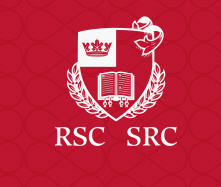
The Royal Society of Canada (RSC) and its Members have elected this year’s new Fellows and named the incoming class of the RSC College. Ubaka Ogbogu

Ogbogu’s work has contributed to Canadian and international science policy in diverse areas including stem cell research ethics, reproductive technologiesand gene therapies.
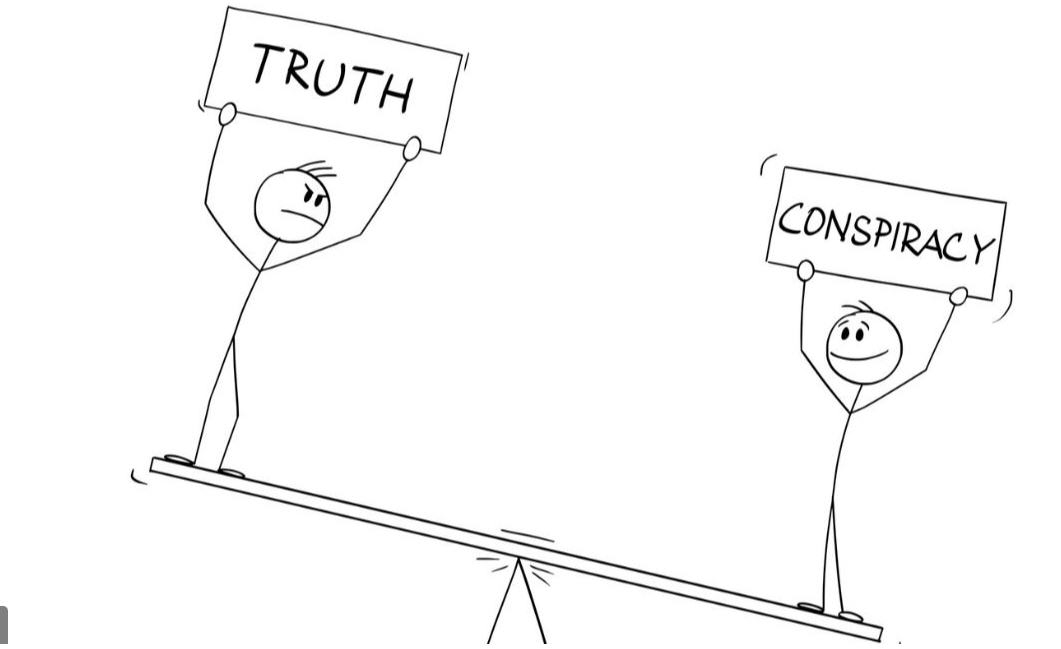
Caulfield, “…false balance is increasingly driven by social media echo chambers, the fragmentation of the news media and the ideologically motivated embrace of fringe ideas.”

Caulfield: 'We have to teach kids about misinformation early and often.'
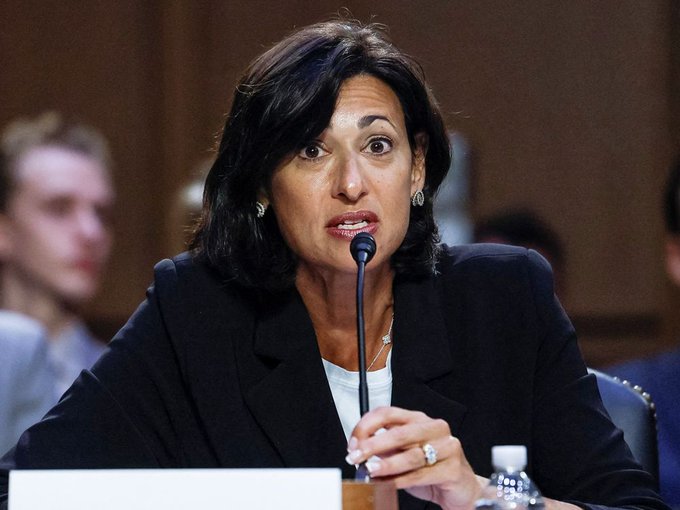
Caulfield: “I think [complacency] has made misinformation and ideological spin more persuasive. The personal risk/benefit analysis has shifted.”
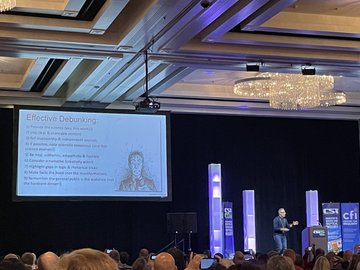
Caulfield: "Thanks to all my friends and colleagues at #CSICon in Vegas. Honoured to be part of this terrific community!"

Timothy Caulfield speaks at the annual CSICon amoung others such as Neil deGrasse Tyson and Penn and Teller.

Zenone: "...always surprising how much misinformation can proliferate in such a short amount of time."

Yes, the rage, the hate, and the fearmongering are big themes. It is exhausting to watch. Can the algorithms respond?

Monkeypox conspiracy theories spread like wildfire on TikTok. “The studies have shown that those algorithms do push information,” Timothy Caulfield says.

Our new study: "Misinformation spreads so quickly that public health officials should be monitoring social media platforms in real time to debunk bogus claims, a new study suggests"

Caulfied: "she's basically embracing the stars of [the #antivaxx] movement. These are individuals who are well-known anti-vaxxers who spread harmful misinformation."

Caulfield: "...these conspiracy theories cluster. They’re so consistent: the rage, the conspiracy ideation — this idea that they have access to special knowledge..."

Caulfield: Misinformation "emerges incredibly quickly and does damage very, very quickly..."

Zenone, "distorted, untrue portrayals of global and public health infrastructure and motives."

Caulfield: “I watched hundreds of videos, and it's exhausting to see the rage and the consistency of the messaging...”

Caulfield: “It’s playing to parental guilt and the desire for parents to have healthy children and do whatever they can for their kids. There’s a huge market based on exactly that.”

"... his candidacy has encouraged the news media to examine his longtime spread of misinformation, including what University of Alberta professor Timothy Caulfield called in Scientific American “misleading, science-free and unproven alternative therapies.”"
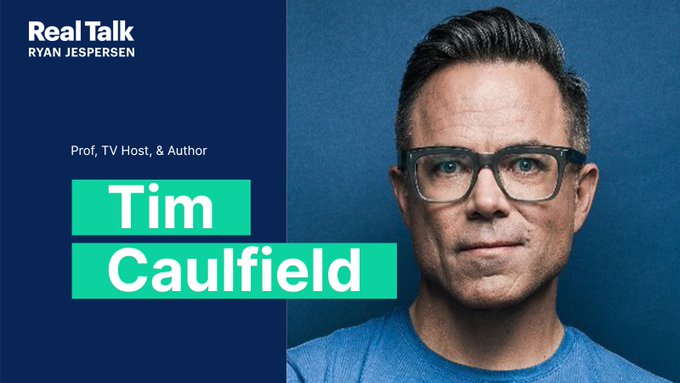
Professor Timothy Caulfield on COVID revisionism and TikTok misinformation.

It was an honour to work with the Stem Cell Network and colleagues Megan Munsie and Krishana Sankar at #TMM2022 last week.

"One anecdote can overwhelm our ability to think scientifically. That one anecdote, story, testimonial, celebrity endorsement, can overwhelm millions of bits of good data." Timothy Caulfield gets real with “science-ploitation” and the rise of misinformation at #PainABWPS2022.

Sneak peek! Next week on the Unleashed Podcast, Canadian author Timothy Caulfield shares the best ways to debunk information. Listen to the full episode on October 20th.

Caulfield: “The lack of insight into our history, the lack of insight into the value of vaccinations and the lack of insight into how vaccine policies work and why those policies exist — it’s stunning.”

"...ultimately most of the [unvaccinated] have chosen not get vaccinated despite recommendations from public health experts based on scientific evidence."

Caulfield: "This really highlights how powerful misinformation can be. It can really have an impact in a way that can be dangerous."

Caulfield: 1) love decision and highlights lies can (sometimes) have consequences; and 2) don't buy the "silencing" rhetoric. This is the marketplace of ideas working!

Caulfield: Her “stunning” comments showed a total lack of understanding of public health policy.

Caulfield: “She’s created this really problematic false dichotomy … the belief that alternative medicine is about prevention and ‘western medicine’ is not, and that’s just wrong.”

“Teaching children to pause and think” (strategies like #StopNowAndPlan can help)

Caulfield: “There’s never any magical way towards a healthy lifestyle."

Stem Cell Network panel on Misinformation.

Timothy Caulfield kicked-off BIOTECanada's BIONATION2022 with a powerful and dynamic presentation on the impact of misinformation in society. His is a message that cannot be delivered too often.

In a sea of #Misinformation crowded #SocialMedia landscape, how can we leverage social media for #Science? Join us for a free webinar during #ScienceLiteracyWeek ft. an all-star lineup of #Scientists who have taken social media by storm. Register here.

The amazing Timothy Caulfield sat down with us to discuss believing BS, the dangers of Gwyneth Paltrow, and this year's CSICon 2022 at the Flamingo Vegas.

University of Toronto "Infodemic! Is Misinformation Killing Us?" September 22, 2022

Caulfield: "What they're really selling is an idea. They're selling sort of a gestalt. They're selling a vibe. They're not selling reality."

(22:48) The porous regulations that allow vitamin supplements to be sold and how Mel Gibson played a key role in this system, with health policy expert Timothy Caulfield.

Caulfield: “Misinformation kills people. That’s how serious this topic is.”

Caulfield: "We don’t need to legitimize pseudoscience, we need more good science.”

“Debunking Works, More Please!” In this presentation, Professor Caulfield will explore what the most recent evidence tells us about the nature and source of the current infodemic. He will also provide recommendations about how we can (and must) respond.

Zubin Master: “…many thought stem cells were better than surgery or the standard of care.” [Nope.]

On Tim's episode of the Nike Trained podcast, he talks about misinformation in the wellness industry, how to spot it and what we can do about it.
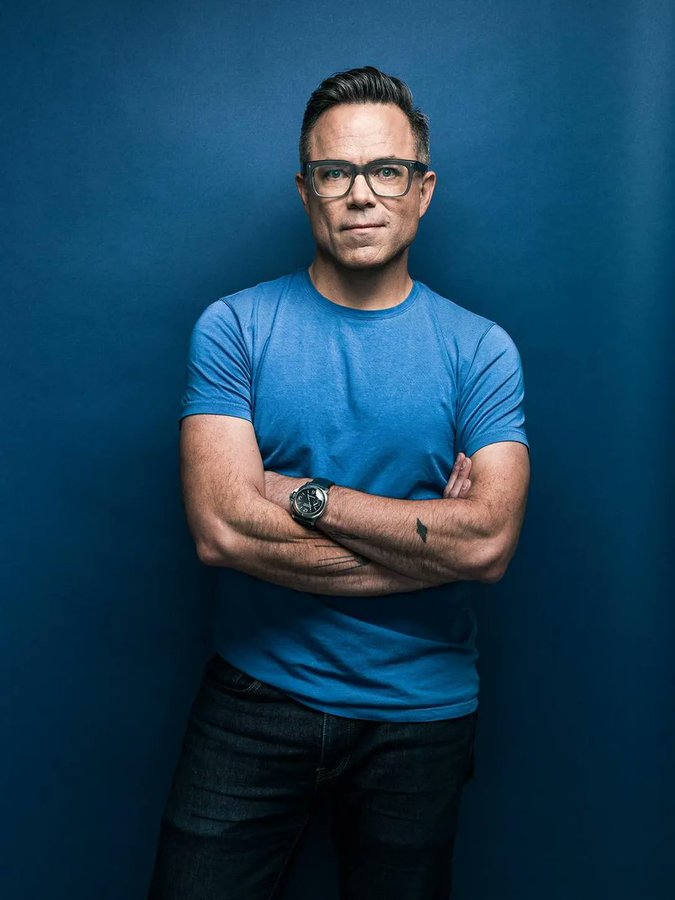
$130 million was wasted on ivermectin prescriptions by private insurers alone in one year in the U.S. That’s doctors prescribing ivermectin for COVID with no evidence to support it. Completely driven by misinformation.
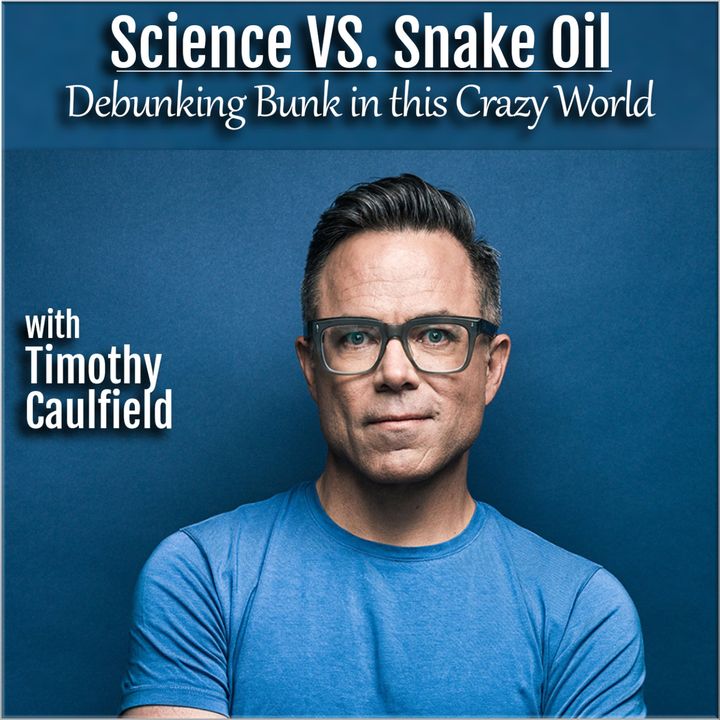
Timothy Caulfield joins Seth Andrews for a compelling and fun conversation about information and misinformation in the media age
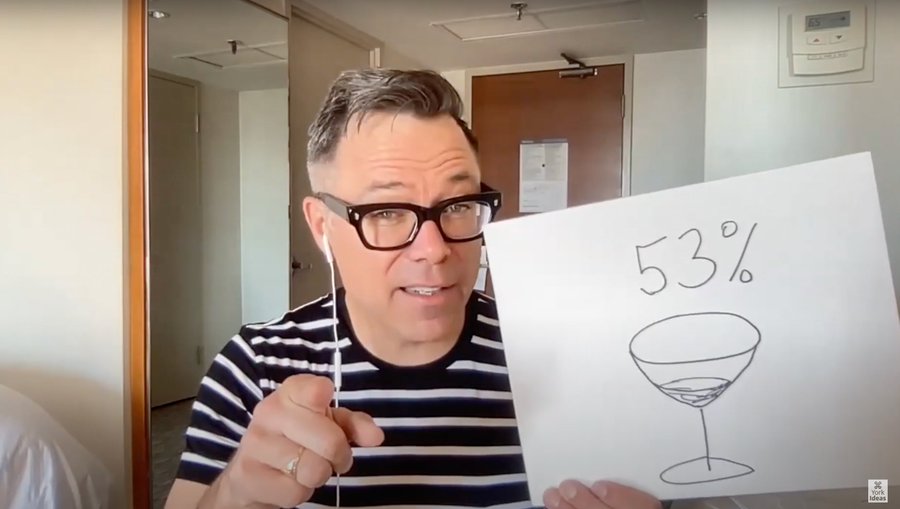
Coffee, good or bad? 8 glasses of water? How to park? Wine? Exercise? (Always yes.)

Caulfield: Powerful personal anecdote, testimonial or narrative could overwhelm people’s ability to think scientifically. ... “those elements have made it a very consumable and powerful way to spread misinformation.”

How many cups of coffee should I drink? Are work meetings really worth the time? Do I really have to floss? Award-winning public-health expert Timothy Caulfield tackles our daily dilemmas - from the moment we wake up to when we go to sleep - and the innumerable cultural, social and psychological forces shaping the decisions we make.
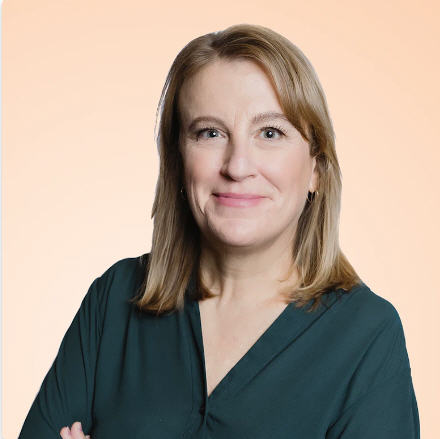
The left want a conspiracy theory too! What the heck are the Klondike Papers? Soon: on @CBCSask with @SLangeneggerCBC to explore the rise of conspiracy theories in Canada – on the political right AND left cc @WhitfieldJanani
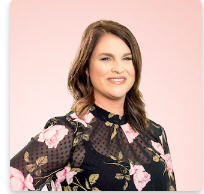
Soon: on Ottawa Morning to talk about how Canadians have embraced conspiracy theories. The consequences? It is killing people, justifying hate and discrimination, and perverting our democratic process.

Kelly speaks with Timothy Caulfield, Canada Research Chair in health law and policy, based at the University of Alberta, who specializes in misinformation.

“I think what a lot of these polls reflect is a normalization and almost an institutionalization of conspiracy theories...”

The grant will support research into legal, ethical and social implications surrounding regenerative medicine therapies

Caulfield: "It’s always really important to lead with the headline and the headline is that anyone can get monkeypox." "...make sure that messaging doesn’t stigmatize..."

Seems everyone wants to live forever and look good doing it. The anti-aging industry is worth around $10 billion a year. How much of it actually works? Find out in A User’s Guide to Cheating Death.

Caulfield: “The disease is primarily spread through close contact...". Accurate information is key! Please, #ScienceUpFirst.

Big right-wing, conservative political movements have extensive involvement from MDs flagged for spreading medical misinformation.

The University of Alberta banner is flying at half-mast from June 27–30, 2022 in remembrance of Dr. Frederick Otto.

Caulfield: "The discrimination and stigmatization, not only do they hurt those communities, they hurt our ability to fight the disease..."
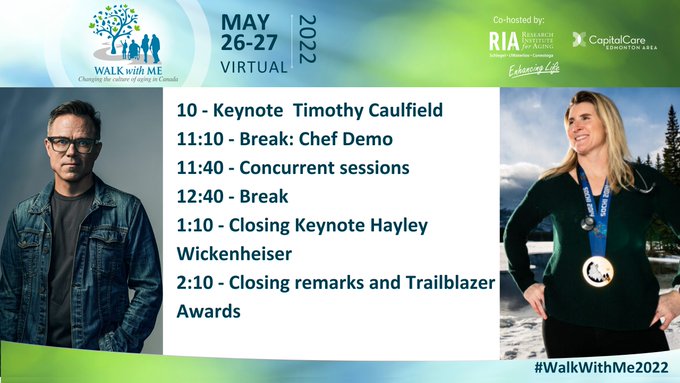
It's day 2 of #WalkWithMe2022, and we have many more insightful and engaging sessions to make you change the way you think about aging. The day kicks off with keynote speaker Timothy Caulfield right now!

Canadian scientist and public health expert Timothy Caulfield will explore ways to reduce individual stress in an anxiety-filled world, while former NHS team leader Wendy Mitchell will debunk some of the myths around dementia.
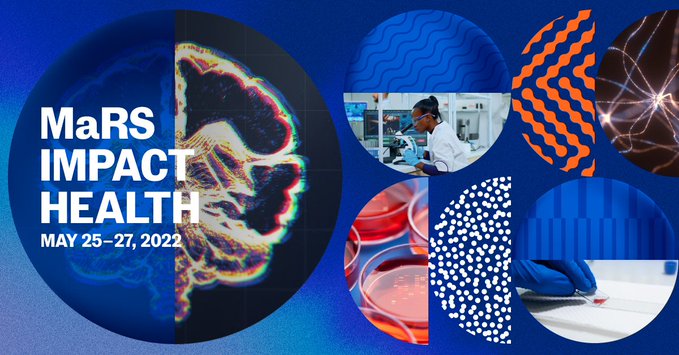
Meet the brilliant minds on the frontlines of Canada’s healthcare revolution.

Caulfield: “Having an ideological position against vaccines, that’s not a religious position.”

Thought Leader Timothy Caulfield presents at the Executive Leadership Forum next month! Caulfield debunks myths and assumptions about innovation in the health sector for the benefit of the public and decision-makers.

The project is the recipient of just over $700,000 in funding from Stem Cell Network (SCN) as part of a $19.5 million investment from the non-profit supporting 31 research projects involving regenerative medicine with either a clinical, ethical or legal focus. Zarzeczny’s project is a collaboration with Canada Research Chair in Health Law and Policy professor Timothy Caulfield and Dr. Ubaka Ogbogu from the University of Alberta, as well as international partners from a variety of countries, including Australia, U.K., South Africa and France, offering expertise in law, science communication and medicine.

Caulfield: "I know that the pandemic is still touching people's lives. I lost my father-in-law just over two weeks ago from COVID."

Caulfield: "This is nothing more than fearmongering. There is nothing to support these really strong assertions."

Caulfield: "completely misleading..." And "a bit of a paradox because Nuremberg was used against a far-right regime, and here you have the alt-right rolling out that language."

Malone, McCullough, Pierre Kory, et al. "Their rhetoric at these events frequently leans ideologic rather than scientific." Caulfield: Health misinformation increasingly about ideology.
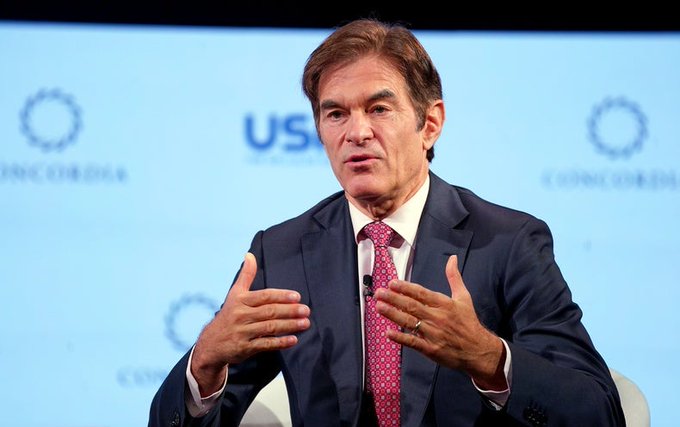
His brand of misinformation has already tarnished medicine. In the halls of Congress, he’d do much worse.
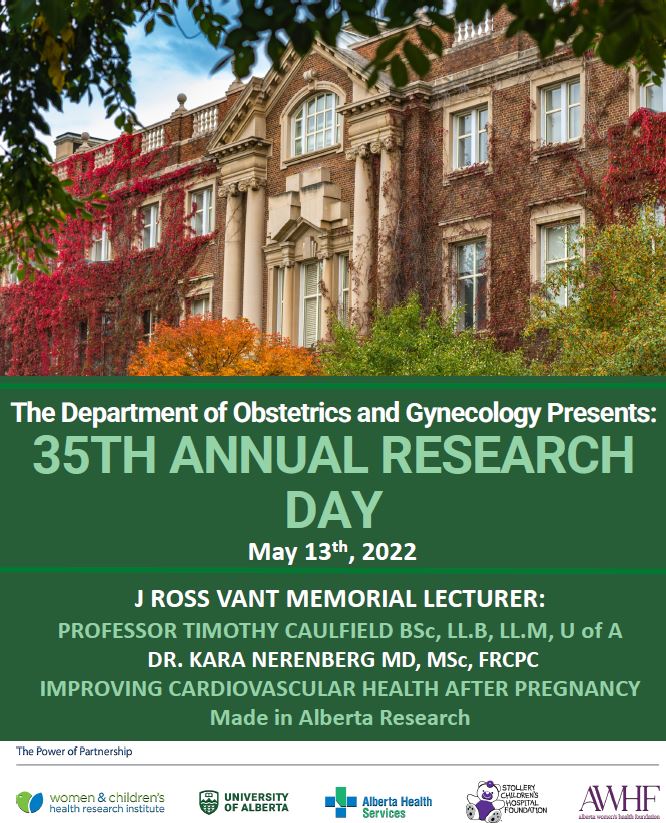
Battling Bunk: Evidence-Based Strategies to Counter Misinformation

Partners in research Ubaka Ogbogu, Amy Zarzeczny, and Timothy Caulfield received over $700k to investigate regulatory and social license for cutting-edge regenerative therapies.
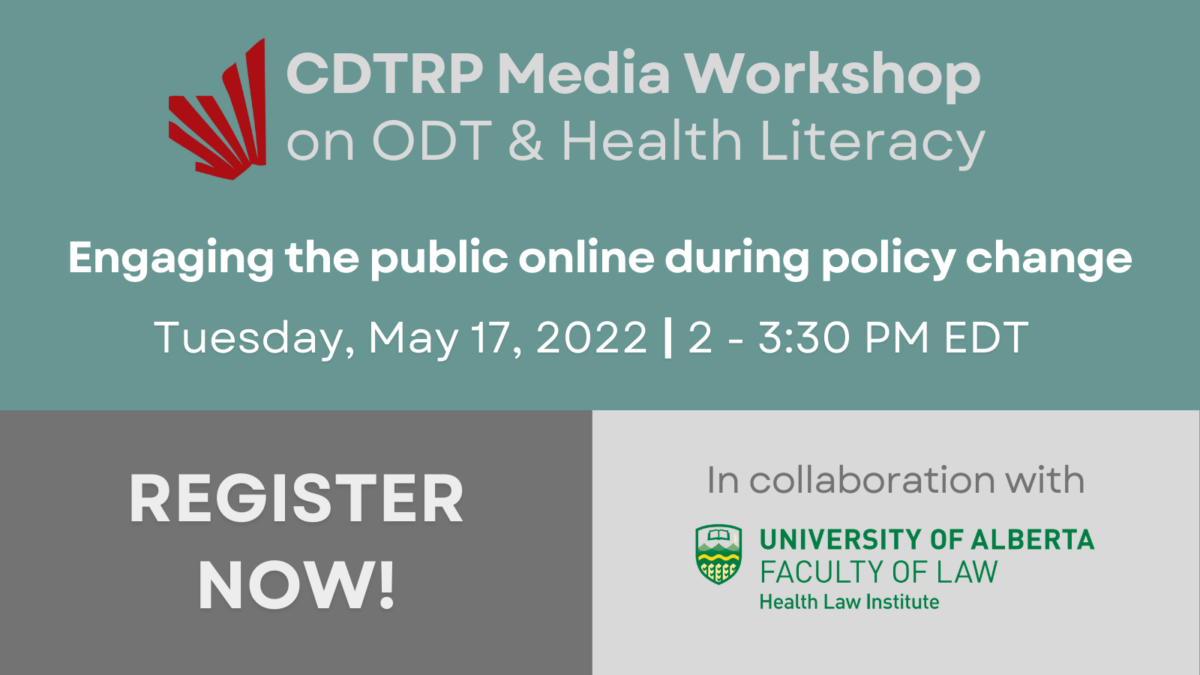
The CDTRP, in collaboration with the Health Law Institute from the University of Alberta, is happy to announce the second Media Workshop on Organ Donation and Transplantation (ODT) and Health Literacy on May 17, 2022.
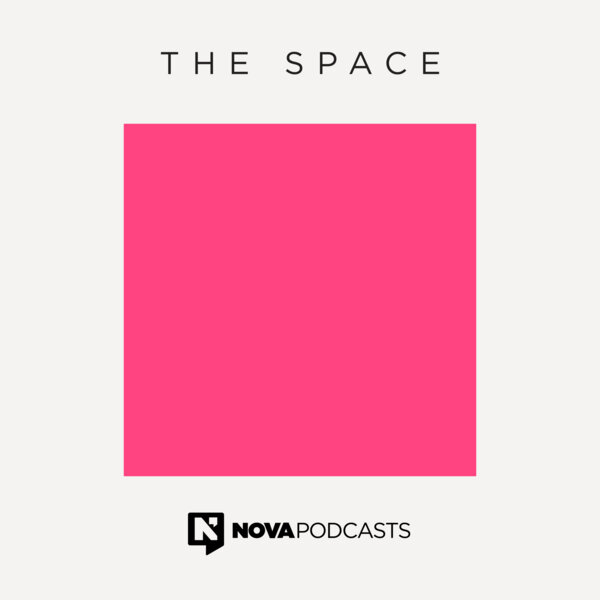
Fun take on using advice from Timothy Caulfield, author of Relax: A User’s Guide To Life In The Age Of Anxiety, we’re going to teach you how to be busy without having a mental breakdown.
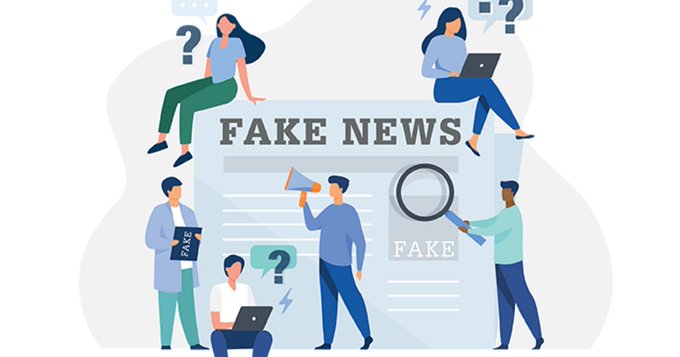
Timothy Caulfield notes he enjoyed this discussion! Cover lots, including how scientific uncertainty and ideology used to push bunk.

Caulfield: "The conceptual inconsistency would be laughable if the issues weren't so crucially important..."
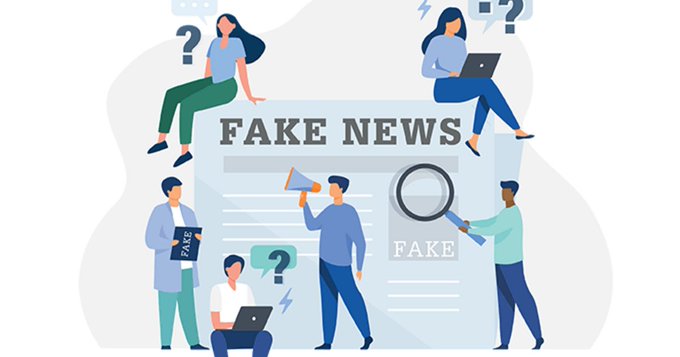
Caulfield: "...we’re starting to get a lot of revisionist history of what happened at the height of the pandemic... That is all nonsense. The misinformation was pretty clear..."

“Trust in scientific institutions has taken a huge hit,” says Timothy Caulfield, LLM, research director of the Health Law Institute at the University of Alberta, Canada.

Marco Zenone: Great to see our study investigating how CBD sellers advertise their products online featured here. @jeremycsnyder @ValorieCrooks
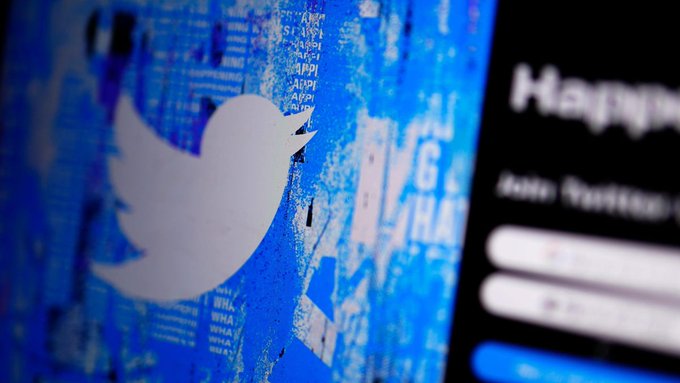
Caulfield: Elon Musk noise on psychiatric meds "can have an impact on public perception of pharmaceuticals"

University of Alberta professor Timothy Caulfield looks at the powerful influence that celebrities like Dr. Mehmet Oz have on shaping our health landscape.

Key: > vaccination and want people comfortable with their choice. But does framing as "traditional" vaccine legitimize misinformation about mRNA vaccines?

Caulfield: “Celebrity wellness hype contributes to our ‘culture of untruth’ by both inviting an erosion of critical thinking and promoting what is popular rather than what is true.”

Caulfield: "I call this ‘scienceploitation,’ where someone takes real, exciting science and uses it to market bunk.”
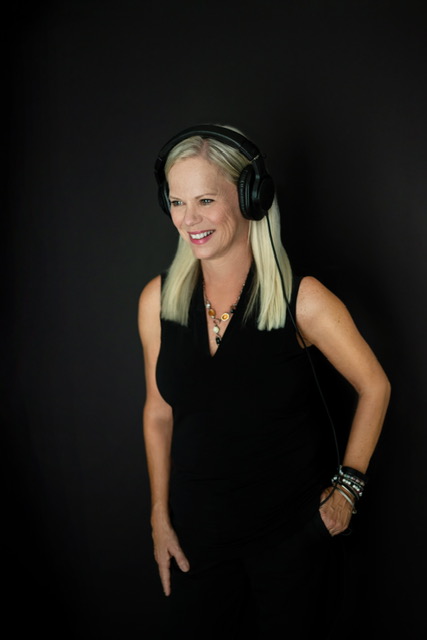
Kathy Buckworth will host Timothy Caulfield on Go To Grandma on April 30 @ 7:30am Why do some people see science as opinion, not fact? Why do scammers scam?

Caulfield: “more exploitive noise (wrapped in bogus ’empowerment’ rhetoric).”

400+ science-based articles debunking different forms of pseudoscience.

The Canadian Donation and Transplantation Research Program is hosting a Media Workshop on ODT and Health Literacy. Professor Caulfield's talk is on Media Perspective.

Health Quackery Exhibit McGill Library. The Turret. Health Quackery Exhibit

Local 37 brings Timothy Caulfield, author or Relax Dammit! via Zoom.
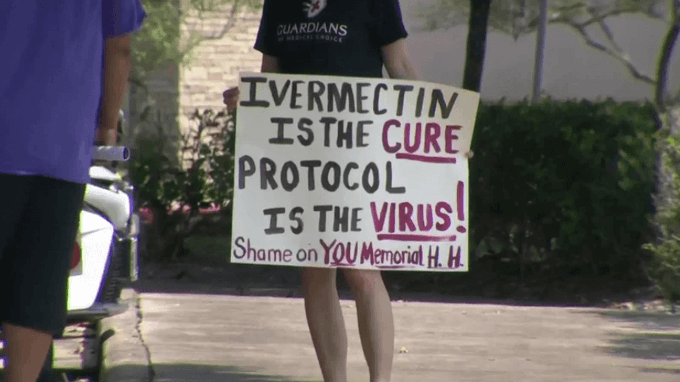
Caulfield, "Ivermectin very quickly became not about science but about ideology and in-group signaling."
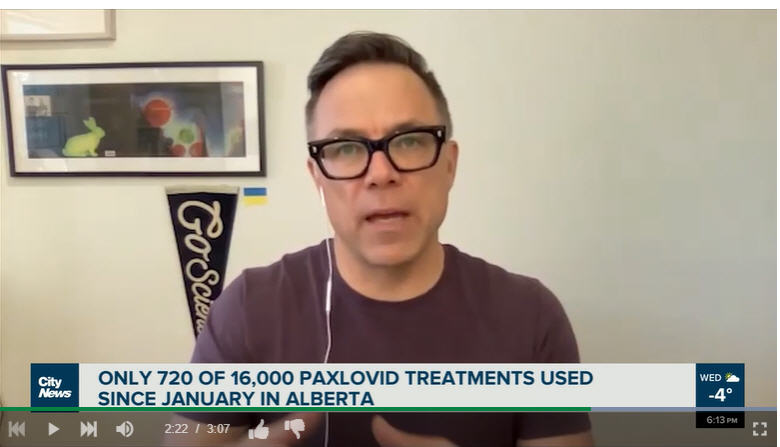
Caulfield: "It's not about science anymore, #ivermectin has become an ideological flag."

Caulfield: "By not acknowledging what's going on, I think you invite the public to not acknowledge it, too...."
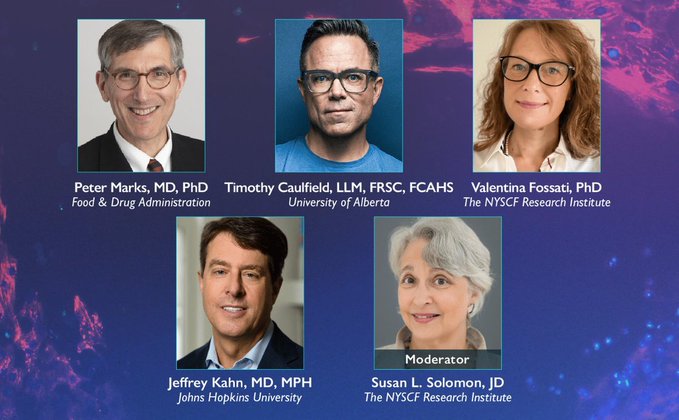
How to accelerate legitimate stem cell therapies while protecting patients from fraudulent clinics?

Come learn about the roots of misinformation and how healthcare professionals can fight back and build public trust. 1100-1145 Timothy Caulfield, Infodemic! Is Misinformation Killing Us?
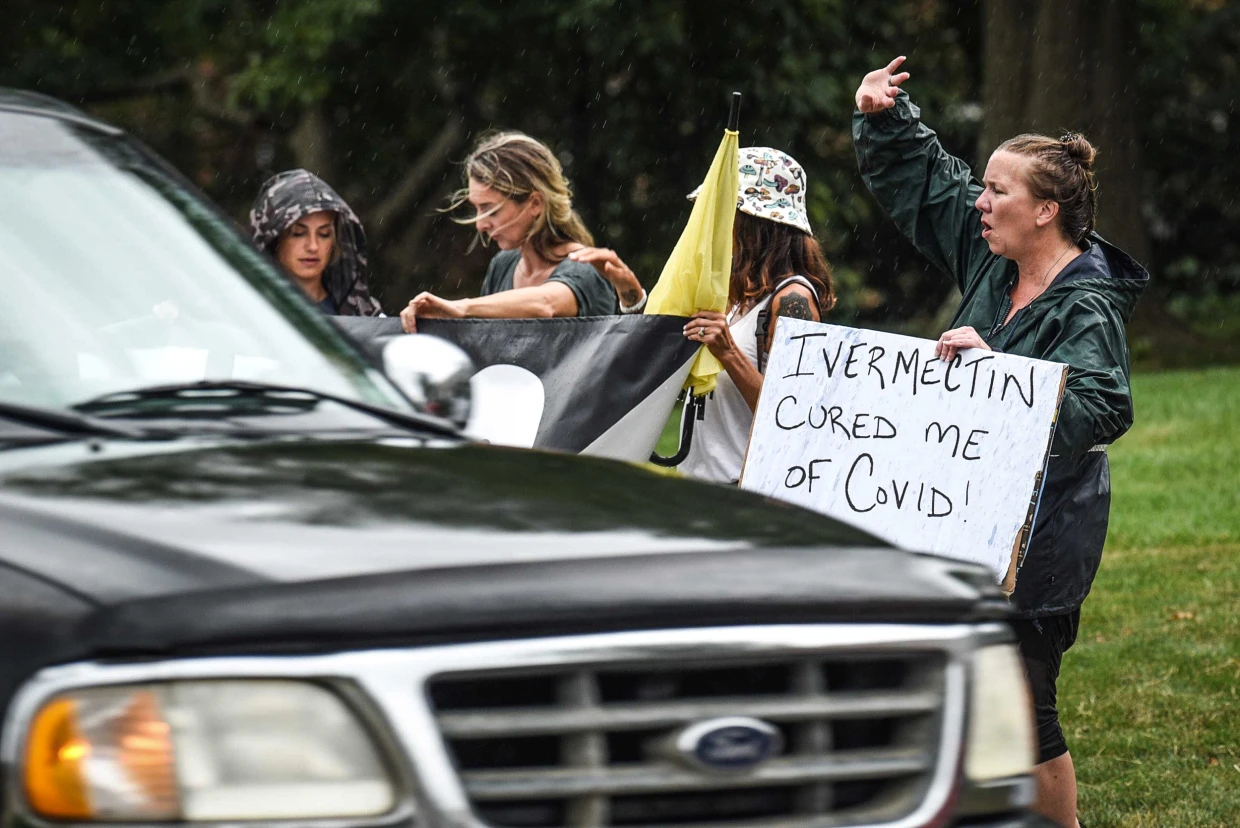
There has never been good clinical evidence to support the use of this drug. But the debate over its use is really about ideology and in-group signaling — not science.
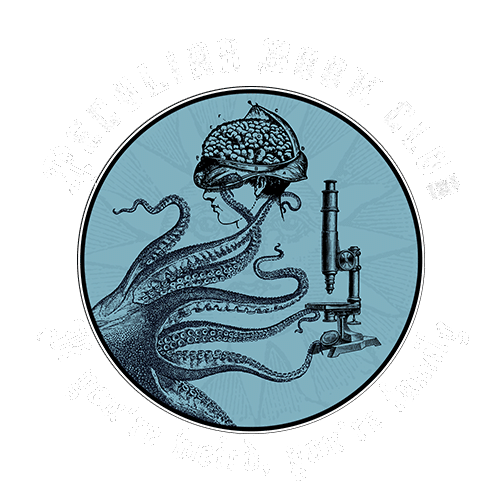
Timothy Caulfield will appear in Season 3 on December 1, 2022

Aarti Pole speaks to Timothy Caulfield about whether the public should prepare for the return of restrictions, as provinces begin seeing a surge with the 6th wave of COVID-19.

The Jill Bennett Show

Is it misinformation or disinformation? Timothy Caulfield answers all of your most pressing social media navigation questions in this post-COVID digital age.

Timothy Caulfield Top Podcast Episodes

Caulfield: Within days of the invasion, antivaxxers in my feed were supporting #Putin.

One key point: institutions need to support healthcare professionals who are fighting bunk on social media!

FRENCH VERSION https://ubc.ca1.qualtrics.com/jfe/form/SV_ePpjrq2mDwUqRnM

The HLI needs participants to complete a short anonymous survey about alternative healthcare, and the factors that encourage people to use it. This work is being carried out by researchers from our team and the University of British Columbia's School of Nursing. English and French versions are available here: ENGLISH VERSION: https://ubc.ca1.qualtrics.com/jfe/form/SV_9FdcETwxlFcwPIO
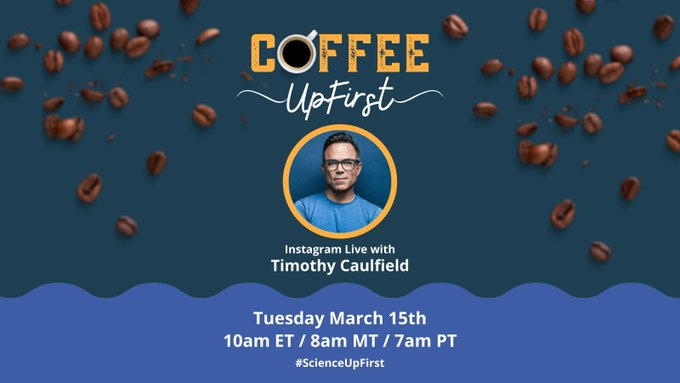
Science Up First presents Instagram Live with Timothy Caulfield.

Great chat with Daryl McIntyre on 630 CHED about the science and divisiveness of masks.

Center for Inquiry on TikTok with Timothy Caulfield. Timothy Caulfield on #misinformation #disinformation #fakenewsbuster #skepticthinker #debunktok

The mask issue will likely continue to divide. The data is messy (though no doubt a valuable public health tool!). This invites ideological spin. Soon: talking with Daryl McIntyre on 630 CHED about masks and more...

Caulfield: "the science doesn't really give us a bright line as to when 'OK, now we can stop.' The data is messy ... that creates the opportunity to politicize the message."

Alessandro Marcon and Vardit Ravitsky

Caulfield: "when the misinformation is coming from a trusted source, such as a doctor or scientist the effects can be 'so damaging.'"

Caulfield: “There is no bright line saying, ‘Now is the time to remove #mask mandates.’”

"Last night, we had Tim Caulfield on Skeptical Inquirer Presents for an awesome talk on the battle against the infodemic and to get the Balles Prize in Critical Thinking."

This Thursday! Yep, gonna talk polarization, ideology, and impact of celebrity noise (that's you #JoeRogan, #AaronRodgers, et al.).

Caulfield's first tip: Watch the use of anecdotes to support misinformation. You. Need. Science.

Caulfield: “Often these fringe perspectives that aren’t rooted in the body of evidence actually get more air time than they are warranted. There is a huge problem with false balance."

The Morning Edition - Sask with Stefani Langenegger Is it time to learn to learn with COVID? We speak to Timothy Caulfield about "learning to live with COVID" in the age of misinformation. He is Canada Research Chair and professor in health law and policy at the University of Alberta.

The spread of misinformation seems to intensify with each passing week. From social media to cable news to popular podcasts, science-free bunk is everywhere. The ongoing “infodemic” is doing tangible harm to public health, public discourse, and public trust. How did we get here and what can we do about it? On Thursday, March 3 at 7:00 p.m. ET, Timothy Caulfield returns to plan the next phase of the battle against bunk on the next Skeptical Inquirer Presents live online event.

Confronting The Madness with Mark Korthuis.
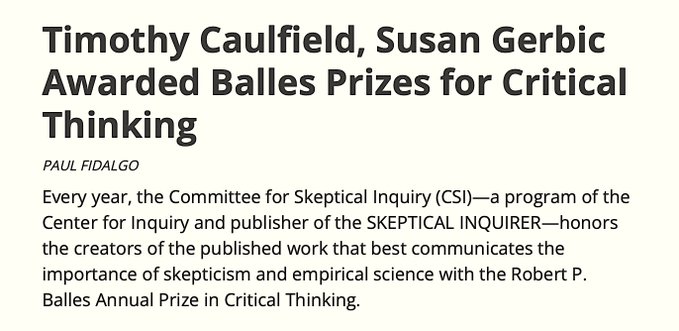
Every year, the Committee for Skeptical Inquiry (CSI)—a program of the Center for Inquiry and publisher of the SKEPTICAL INQUIRER—honors the creators of the published work that best communicates the importance of skepticism and empirical science with the Robert P. Balles Annual Prize in Critical Thinking.

As the Omicron wave subsides and governments ease restrictions, a growing number of Canadians are in favour of a future where we don't tailor our lives to the virus. But is that possible?

As the Omicron wave subsides and governments ease restrictions, a growing number of Canadians are in favour of a future where we don't tailor our lives to the virus. But is that possible?

Caulfield: “It’s a powerful anecdote about the sway of both social media and misinformation...”

Caulfield: Chemophobia is “the narrative that brands like Goop and Honest Company like to sell, and unfortunately, it’s extremely effective.”
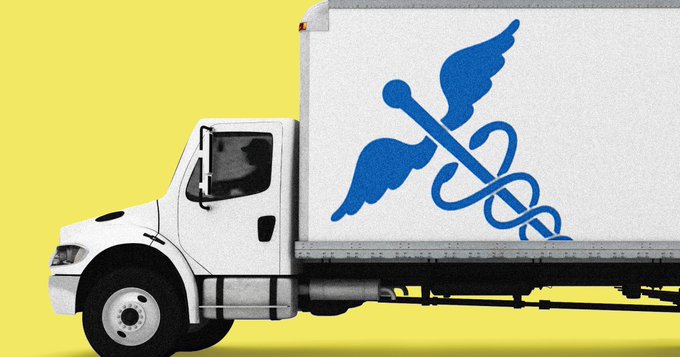
Caulfield: "American disinformation groups are 'trying to exploit the fear and anxiety and frustration that Canadians are feeling.'"
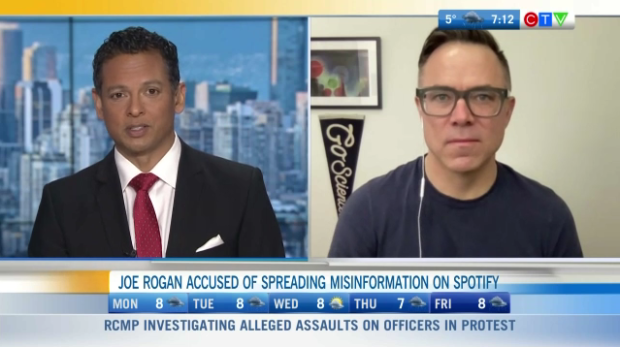
Professor of Law at the University of Alberta, Timothy Caulfield discusses the controversy regarding Joe Rogan and Spotify on CTV Morning Live.
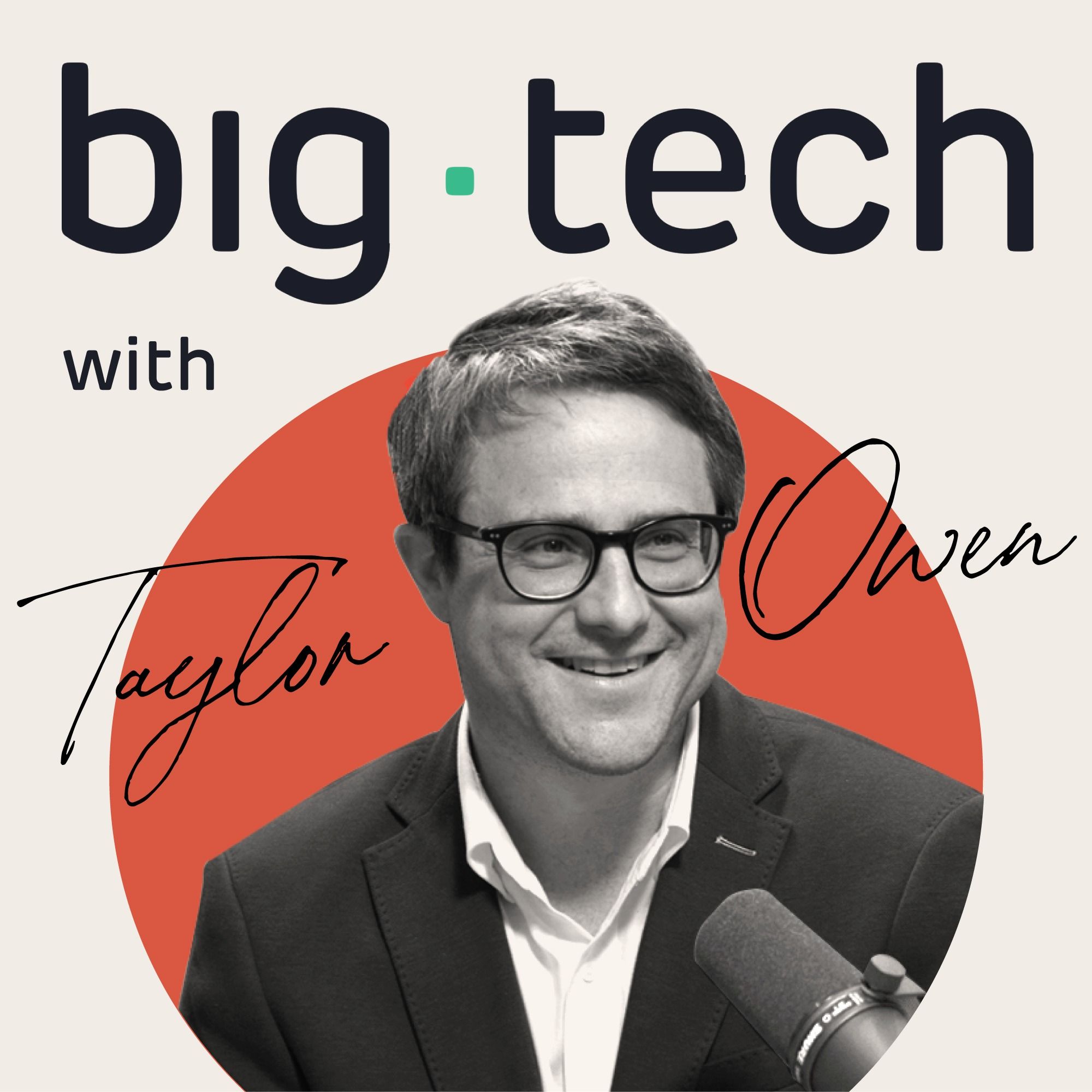
Timothy Caulfield, professor of health law and science policy, joins BigTechPodcast's Taylor Owen to discuss how the Joe Rogan/Spotify COVID misinformation controversy reflects a moment of mistrust in science and the weaponizing of the scientific process.

Timothy Caulfield shares why exercise and fitness are important.

Timothy Caulfield, professor of health law and science policy, joins host Taylor Owen to discuss how the Joe Rogan/Spotify COVID misinformation controversy reflects a moment of deep-seated mistrust in science and the weaponizing of the scientific process.

Lyndsay Duncombe takes CBC The National to see the "Doctors on Tour" and speaks with Charles Hoffe and Stephen Malthouse about their anti-vax roadshow. With excellent commentary by Alastair McAlpine and Timothy Caulfield. The College of Physicians and Surgeons of BC declined an interview.

Caulfield: "We know this is dangerous. We know that misinformation can have an impact on beliefs and behaviours."

Caulfield: "when you're a close friend to someone you know and you've shared life experiences with them, I think you can have a greater impact..."

Caulfield: "driven by the controversies surrounding the protests we are seeing...not by the science and sensible public health decision-making"?

Tedros Adhanom Ghebreyesus: "It's premature for any country either to surrender or to declare victory." Timothy Caulfield: "It means that we're constantly going to have to be vigilant."

Caulfield: "For him to use the language of battling misinformation to try to discredit the work of a legitimate scientist, it is frustrating."
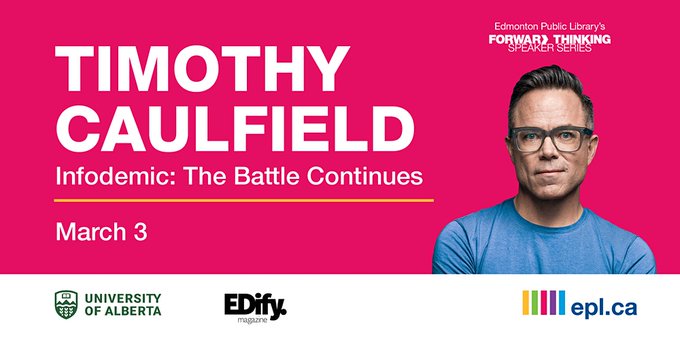
Timothy Caulfield will discuss how conspiracy theories and harmful misinformation are defining characteristics of the COVID-19 pandemic.

Caulfield: Vaccination = altruism. "To not get vaccinated based on misinformation and ideological spin, and to spread misinformation that hurts others, is, well, morally wrong.”

Caulfield: "worried that Mr. Rogan would 'falsely balance' scientifically supported views and those that are discredited but popular."

Murdoch's latest article in the Globe and Mail focuses on how Omicron will provide little immunity, leading to a crisis of repeated infection unless we change our behaviour.

No doubt misinformation playing big role. Also, extreme elements weaponizing scientific uncertainty and (understandable) frustration.

Term "wellness" has been captured by those promoting bunk for bucks. Caulfield: “If you’re not trying to improve yourself, you’re living wrong. It’s a horrible message...”

Timothy Caulfield said the tweets have a "threatening" tone and that the misinformation in the thread can be quite harmful to the public.

Concerned researchers and experts from CoVaRR-Net, their response to the misinformation filled comment in Globe and Mail by Doidge.

Caulfield: “Antivaxxers are gravitating to veganism as a justification..."

"We have Canada Research Chair of Health Law and Policy at the University of Alberta, Timothy Caulfield, to discuss the infamous Spotify letter urging a crackdown on misinformation about COVID19, with particular focus on The Joe Rogan Experience."

Timothy Caulfield's contribution to @CritclThnkr on Pseudoscience and the need to debunk nonsense.
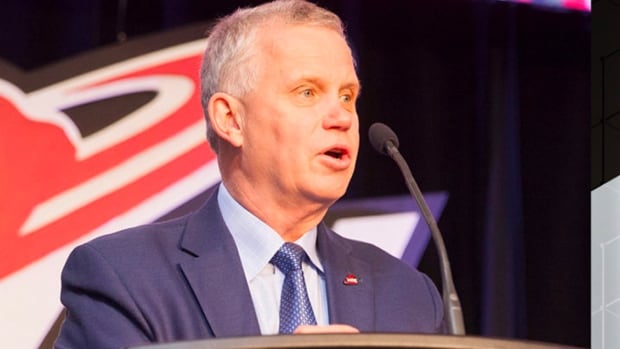
WHL 100% vaccinated. Caulfield: incentives/disincentives/mandates can work.

“My experience from talking with policy makers and science communicators is that this is going to be one of the legacies of the pandemic—a greater appreciation of how important it is to communicate scientific uncertainty.”

Signing open letter calling on Spotify to deal with misinformation put out by Joe Rogan.

Correcting COVID misinformation does not equate to cancel culture.

Can platforms hold podcasters accountable for spreading misinformation?

Will depend on what's happening with COVID and nature of policy. But “there are moments in time when it might be fully appropriate"

Caulfield, "It isn’t noble or brave to spread harmful lies. And it isn’t wrong to try to minimize the impact of those lies."

Bunsen and Beaker had the privilege to talk to so many amazing people on @sciencepawdcast. This song/video is a huge THANK YOU and shout out to everyone who took time to chat in our "Ask An Expert Section."

"...always pause for a moment and ask yourself, ‘Is this accurate? What kind of evidence is being used to support this? Is it just an anecdote?"

Quebec Premier Francois Legault says his province will become the first in Canada to make those who refuse to get vaccinated pay a fee. Should other provinces do the same? Legal experts and listeners weigh in.

Dr. Mehmet Oz is a 'worst-case scenario' when it comes to the type of person who spreads misinformation, says University of Alberta law professor.

Caulfield: If it is a tax/fine that doesn't impact access to healthcare system "it'll probably be less legally problematic, especially if it has appropriate exemptions."

Caulfield: "if it can be shown the mandates are effective, and necessary, and that appropriate accommodations are in place, they might survive a Charter challenge..."

Caulfield: "...they said that about passports, they said that about mandates and a lot of it can be semantics..."

Caulfield: "I think it’s fair to call this a province-wide vaccine mandate." Legally defensible if a "fine/tax", exemptions, and doesn't impact access to healthcare? We tax cigarettes.
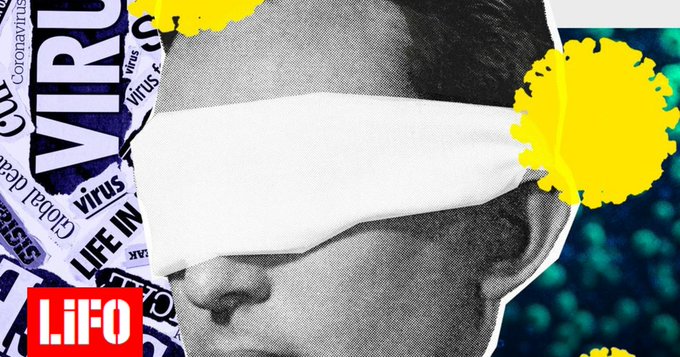
Timothy Caulfield, καλεί την διεθνή επιστημονική κοινότητα να αναλάβει τις ευθύνες της την ώρα που οργιάζει η παραπληροφόρηση και ο κομπογιαννιτισμός σχετικά με την πανδημία...

Book Review: Relax, Dammit! by Timothy Caulfield

An entertaining and practical guide to getting through the day with less stress and better health. By Timothy Caulfield.

The misinformation is ramping up... again. Ignore the noise and #ScienceUpFirst!

Caulfield: “There’s this strange coming together of the wellness community and the far right. And now the wellness industry is an entry point for QAnon.”

"Dogs unleash science facts with their own 'pawdcast'"

Caulfield: “Privacy fearmongering can feed vaccine hesitancy…”

Caulfield: "Debunking does work. It may not feel like it, but we really can make a difference."

It is an ironic strategy as naturopaths reject what the science says about their profession but LOVE to use science-y terminology to make their message sound more persuasive.

630 Ched with Shaye Ganam. Seems appropriate that the year ended with Dr.Oz running for the US Senate. Cuz, of course he is.

The Kelly Cutrara Show.

Caulfield: Hype is a complex phenomenon. "The result of systemic pressures embedded in current incentives associated with biomedical research.”

Health law and science policy professor Timothy Caulfield on the plague of misinformation, on #RealTalkRJ.
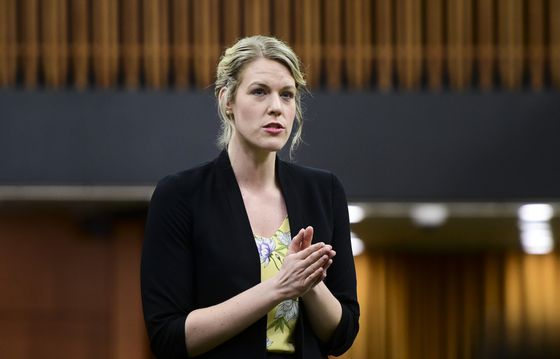
Caulfield: “It does harm because I think it invites people not to get vaccinated and we know that misinformation can result in hesitancy,”

- No evidence vaccines harm fertility or will change your DNA - Vaccines are not "experimental"
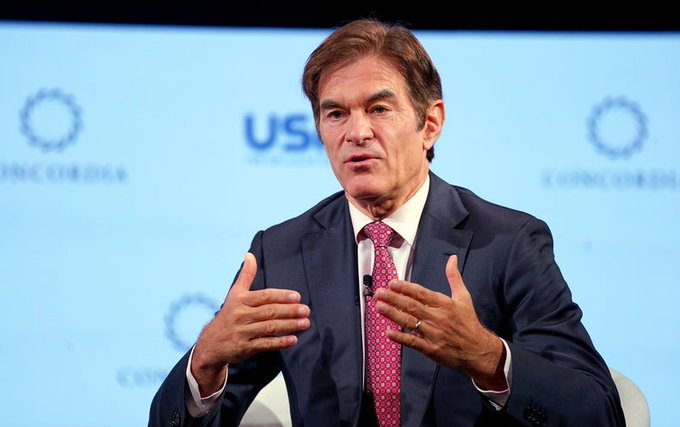
We know, now more than ever, that pop culture can—for better or worse—have a significant impact on health beliefs and behaviors.

"The time to act was yesterday".
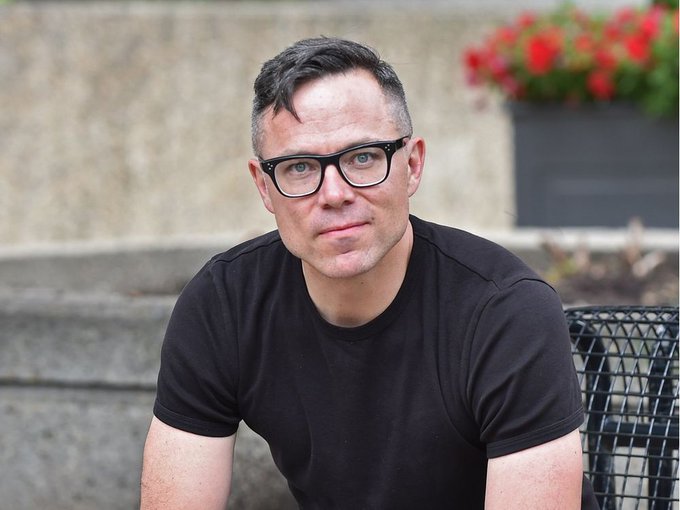
Caulfield: "Debunking really does work, especially if it is done by experts. Your voice really can make a difference."

Risk Communication and Debunking Mis- and Dis-Information

On December 9 @ 12 noon EST A panel exploring the impact of misinformation on vaccination, as well as ways of countering the negative impacts of misinformation in relation to public health. Panelists: Timothy Caulfield, Dr. Rachelle Viader Knowles, Dr. David Price, and Dr. Theresa Tam. Moderator: Sean Caulfield

Two infectious disease experts share their top tips for parents and children. Timothy Caulfield is referenced for more information.

Caulfield: “...a strong singular belief about the vaccine is not a justification from a human-rights perspective for an exemption.”
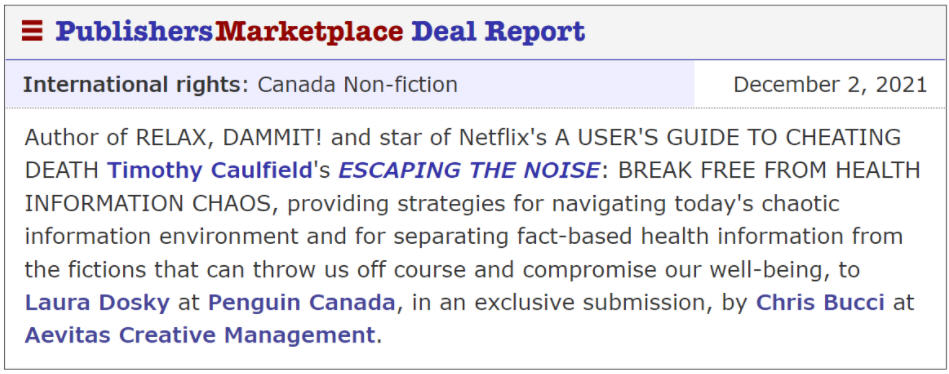
Escaping the Noise: Break Free From Health Information Chaos

Caulfield: "He misrepresents the science. He misrepresents the relevant law. And he misrepresents history." Sum: He's wrong.

"He misrepresents the science, he misrepresents the relevant law and he misrepresents history. And he does it all in a package that tries to portray himself in a kind of a self righteous and noble manner, as if his anti-vax position is brave. And he's doing it on the behalf of Canadians, when in fact, the opposite is true."

"Opening Keynote | Relax Dammit: Healthy and Happy in the Age of Anxiety" December 2, 2021 9:00am-10:00am

How do we counteract misinformation in public health? What does the evidence say and what works? Dec 2, 2021 12:30 PM EST

Fascinating Facts. Adorable Dog Stories. Science Guests that will blow your mind. Brighten your day with a listen, you won't regret it.The Science Pawdcast brings the essence of Dog Twitter to the Podcast format with feedback from Bunsen, the Twitter Science Dog. Knowledge, Intelligence, Silliness and Heartwarming stories, just like Dog Twitter.For Science, Empathy and Cuteness!

December 1 1:30pm-2:30pm
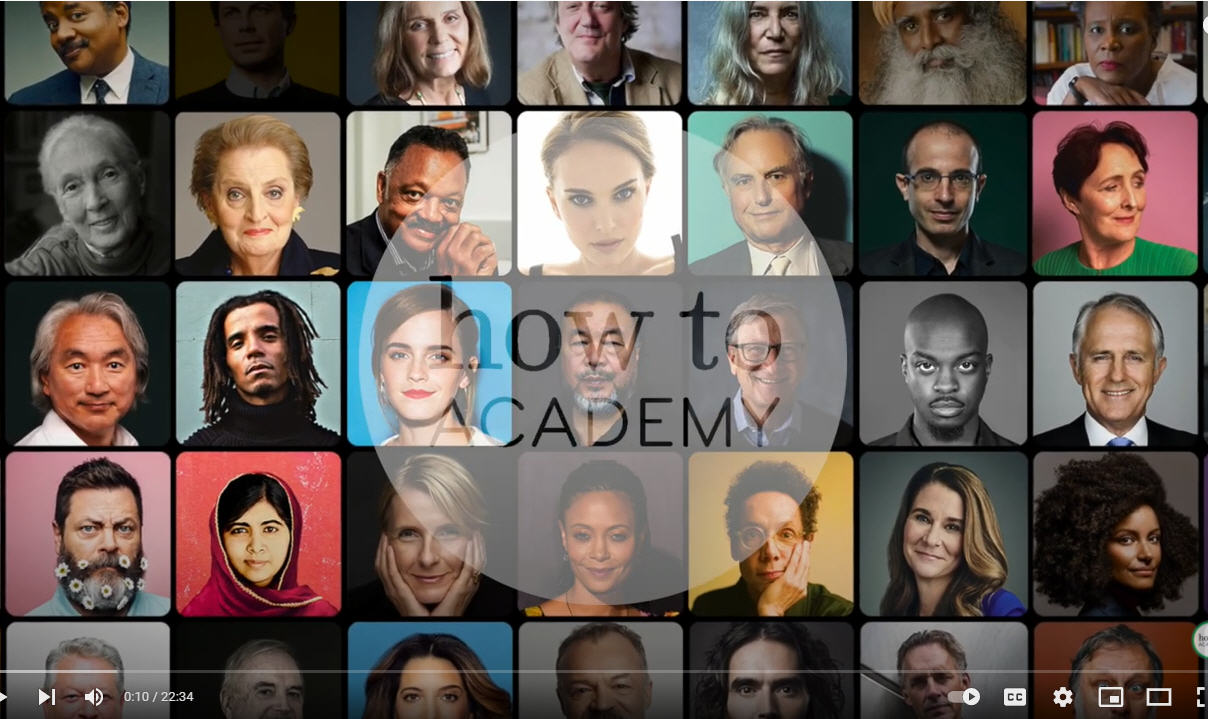
Prof Timothy Caulfield on why we should all relax.
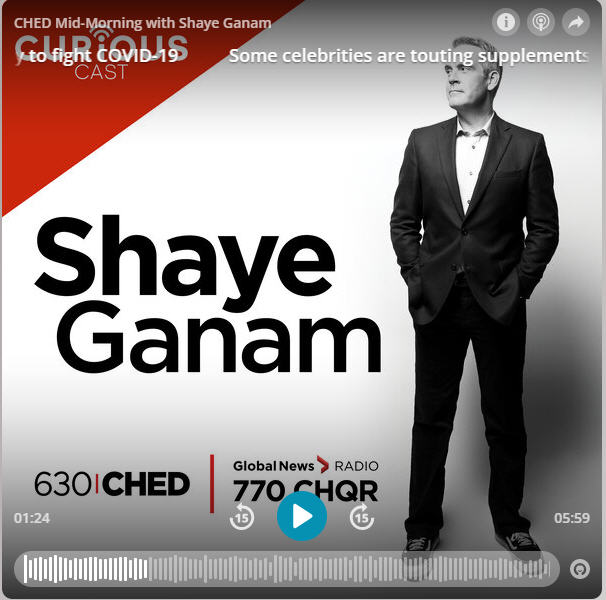
Timothy Caulfield, University of Alberta professor in health law and policy and Canada Research Chair in Health Law and Policy

No, JoeRogan, AaronRodgers, GwynethPaltrow, et al, supplements are not an evidence-based way to treat or prevent COVID19.

Timothy Caulfield along with Marianne Mader, Krishana Sankar, Anthony Morgan, and Jia Hu will present innovative tools to debunk COVID-19 misinformation.
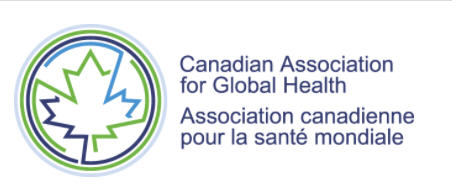
Confirmed plenary speakers for the CCGH 2021 include Timothy Caulfield.

"...very convoluted, sovereign citizen kinds of arguments..." Caulfield: "Misinformation is at the heart of most recent court cases."

“I have a lesion on my left bicep near the shoulder but my grandkids don’t have it. Why? Because we don’t have smallpox any more,” said Mr. Kutcher, who, along with Edmonton researcher Timothy Caulfield, created ScienceUpFirst, a national initiative that works with independent scientists, health care experts and other thinkers to counter misinformation.

Caulfield: "These algorithms ... they create our information universe.” "...tolerating pseudoscience has real consequences and we are seeing that now.”

Homeopathic remedies for kids’ colds and flus are not remedies at all - they’re expensive, useless, sugar and water in misleading packaging. Save your money.

Homeopathy 100% bunk. Scientifically absurd and devoid (or ultra diluted?) of any supportive evidence.

Upcoming Virtual Lecture: November 18, 2021 | 12:30-1:30PM EST

Celebration of Excellence and Engagement 2021 Presented by McGill University

Keynote: Communication in the Era of Misinformation Day 1 November 15, 2021 12:30-1:45pm

Caulfield “...once you start to embrace magical thinking, it becomes easier to embrace other forms of magical thinking.” Give individuals "a path to credible information."

Caulfield: “It’s a science-informed policy decision.” Don't get fooled by false balance or politics.

Virtual Respiratory Care and Education Conference "Infodemic: Is Misinformation Killing Us?"

Caulfield: "Over time, harmless-sounding terms like 'immune-boosting; have normalized misinformation..." When done well, “debunking really does work"!

DLSPH Student-Led Conference

Caulfield: “We had this tolerance of pseudoscience... made room for health approaches that don't have a solid scientific basis and can do real harm.”

Caulfield: Antivaxx quick embrace of experimental therapies, "highlights the degree to which so much of the anti-vax community is really about ideology."

Caulfield: Rights language seductive, "because it makes their position seem righteous and seem brave." Reality: "they’re hurting their community."

Caulfield: “The wellness movement is one of the defining characteristics of health care in this era...” Big issue: legitimization of pseudoscience does REAL harm. Um, #infodemic.

Thursday, November 4th from Noon-3:00pm (Mountain Time) 12:10- 12:55 Keynote: Timothy Caulfield, BSc, LL.B, LL.M Battling the Infodemic in the Age of Misinformation: Yes, Debunking Works

We will discuss the limitations of traditional models of science communication for reaching the public and policy-makers, and what collective intelligence has to offer. We aim to explore some examples of collective intelligence in science communication during the pandemic and learn from their lessons. November 18-19, 2021

The current #tnleg COVID special session is an urgent reminder of why we must confront the rampant misinformation and disinformation surrounding COVID and many other issues. Join Heidi Campbell and experts Timothy Caulfield and Abbie Richards 11/1 at 6pm for this important discussion!

Shaye Ganam speaks with Timothy Caulfield, University of Alberta professor in health law and policy and Canada Research Chair in Health Law and Policy.

Keynote by Timothy Caulfield "Back to the Middle: Exploring science, facts and business in a growing age of unreason" Tuesday November 2 @ 12noon (EDT)
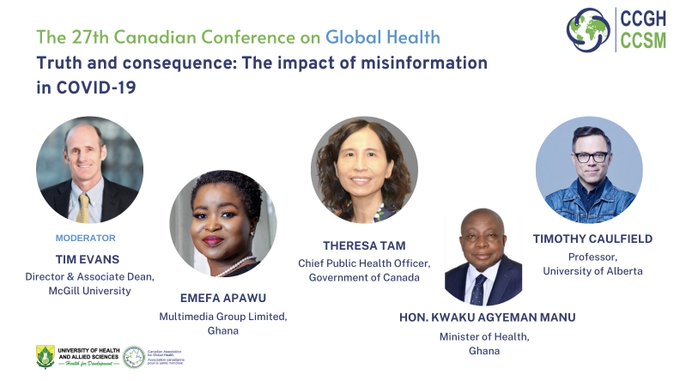
Caulfield will talk about (the much NEEDED!) evidence-informed strategies to counter misinformation.
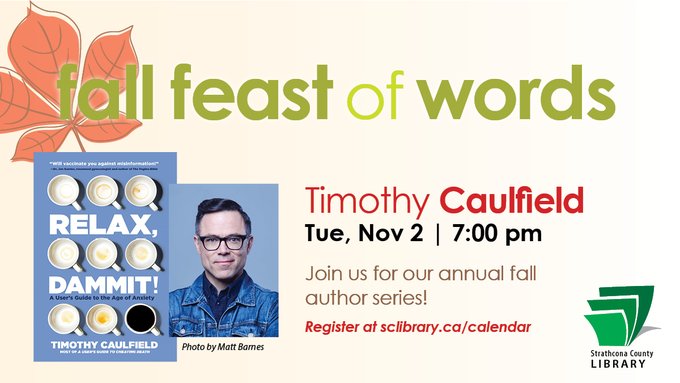
The very popular Timothy Caulfield returns to the library November 2, with his latest book, "Relax, Dammit!" Learn more about this fun but practical guide to stress reduction.

Important first step: listen.

Here’s how to weed out misinformation superspreaders from experts you can trust.

What should you be considering when you see a blog comment, YouTube testimonial, or social-media rant from your loudmouthed uncle? Ask yourself these nine questions to help you figure out what the heck is true.

Misinformation is being spewed, weaponized, and consumed at a deadly rate. Fortunately, there's a way out.

Caulfield: “I truly hope one of the legacies of the pandemic is a greater understanding of the harm that tolerating pseudoscience can do."

Journalist Kiera Butler and University of Alberta professor Tim Caulfield dissect false theories around ivermectin, a drug primarily used to treat parasites in animals, which has been touted without evidence as a miracle cure for COVID-19.

The courts are usually a terrible place to settle science issues. Just injects more confusion and noise. Exhibit A: "Lawsuits in U.S. demand unproven ivermectin for COVID19 patients". No good evidence ivermectin works. Possible harms.

Murdoch, "When these measures work, they immediately become both widely misunderstood and also weaponized by purveyors of misinformation."

Alessandro Marcon, Health Law Institute

"Health policy expert Timothy Caulfield called DTF 'exploitative noise.'"

October 17 16:00-16:45 Lisbon time Timothy Caulfield delivers a keynote lecture on misinformation around the pandemic.

But unlike Carla, most people don’t change their minds overnight on polarizing topics like COVID-19 vaccines. Breaking through to those who hold false beliefs about the vaccine is a long game, Caulfield said, and one that requires patience. But it doesn’t hurt to use tools of misinformation against it either.
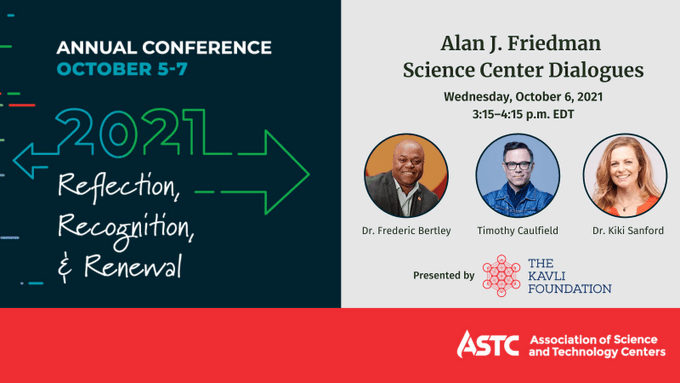
“Addressing Scientific Misinformation and Building Community Capacity for Evidence-Based Decision Making”

Timothy Caulfield gives a talk on how to counter information with evidence-based strategies.
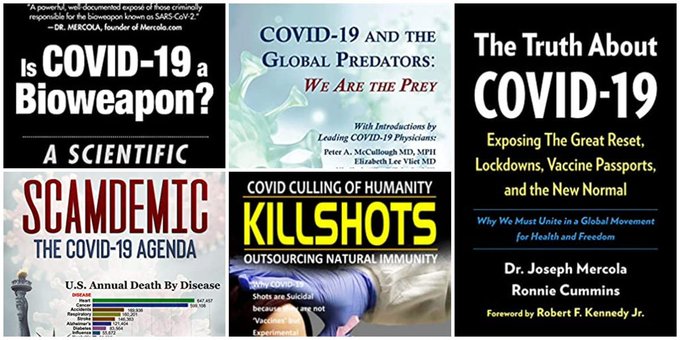
Caulfield: "Companies make decisions about what you see all the time, they're private actors, and they can decide what they're going market..."

The Oilers' antivaxx Josh Archibald a cautionary tale of: - misperception of risk; - harms of antivaxx bunk; and - value getting vaccinated!

Caulfield: "infodemic a defining characteristics of the pandemic and "it's killing people."" Let's give hesitant "a path to credible information." #ScienceUpFirst
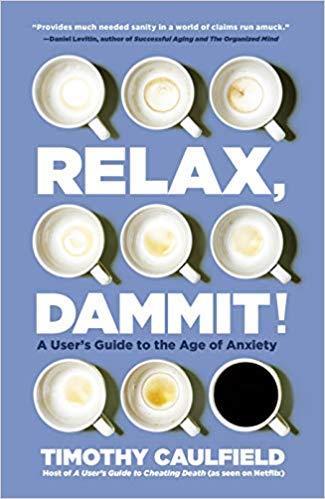
Alberta’s Community Adult Learning Program (CALP) is hosting their second virtual Literacy and Learning Symposium. Timothy Caulfield will be speaking about his book, "Relax Dammit!"

Caulfield: the government strategy "could be seen as the province capitulating to anti-vaccine narratives which falsely cast doubt on the safety of mRNA shots."

Prominent speaker on misinformation, Timothy Caulfield joins Michelle Eliot to discuss how to confront COVID-19 misinformation.

Protect our Province Alberta

Vaccination misinformation, access and hesitancy Today at 4:15

September 22 @ 10:15am

"Part pop-science, part self-help, Your Day. Your Way. is a friendly, funny, fact-based guide to changing how you make decisions..."

We're often told not to believe everything we read online or see on TV—but how do we tell the difference between evidence and pseudoscience? Take our free online Science Literacy course to find out!
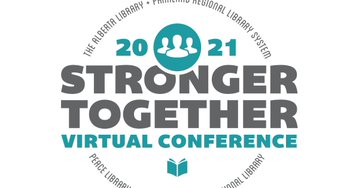
Libraries can play a key role in the battle against misinformation! Live September 23 @ 9am

Doit-on obliger la vaccination : la question dont a débattu le milieu universitaire est maintenant mise à l’épreuve.

Timothy Caulfield on the government initiative, the place of individual rights, and the uncertain future of the pandemic in the U.S.

“There needs to be a more robust response from the science community in the face of pseudoscience and misinformation,” says Timothy Caulfield

Caulfield: "emerging evidence, though partly observational, suggests the passports can both increase vaccination rates and create safer environments."

Timothy Caulfield talking with J'lyn Nye on 630CHED about the continued spread of COVID vaccine misinformation.

You are required to be double vaccinated but your server isn't? Caulfield, "If the goal of the program is to protect Albertans ... it makes no sense at all."

Caulfield, "Deniers must apply "Olympic level mental gymnastics to maintain their worldview.""
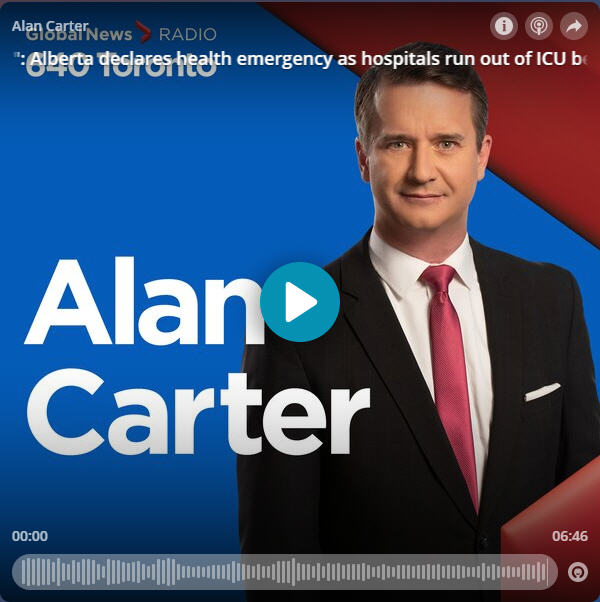
Alan Carter speaks with Timothy Caulfield about how poor public health policies resulted in Alberta's health emergency.

Caulfield: “This is a decision that individuals make, and decisions can have consequences. The whole point is to, in some respects, differentiate between people who are vaccinated and people who aren’t.”
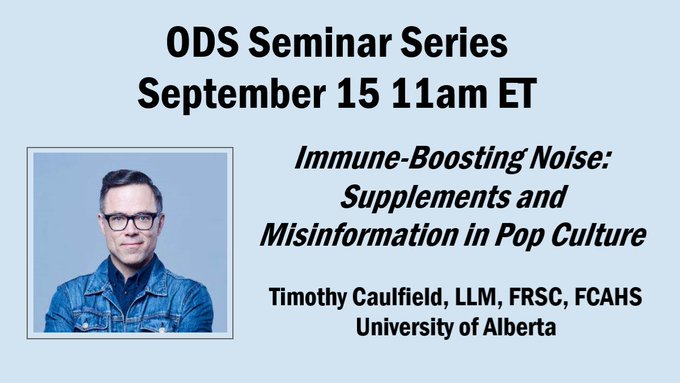
One issue Caulfield will touch on is the overlap with antivaxx noise. "Natural immune boost" code for "not a vaccine."

"...an evidence-based exhibition that addresses the constructive role that art can play in public discourse around life-saving vaccines." Artistic research from a three-year interdisciplinary and collaborative project co-led by Natalie Loveless and Sean Caulfield (University of Alberta) and Steven J. Hoffman (York University).

Feels like tensions continue to rise. But most Canadians DO support public health measures!
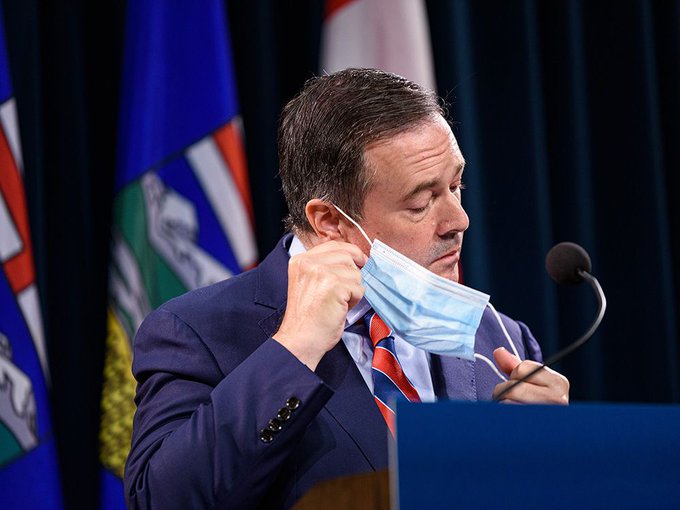
Caulfield, "...incentives work best on individuals that are complacent, undecided, or only somewhat hesitant. They won’t have a big impact on the hardcore deniers."

The Phenomenon of Misinformation takes an in-depth look at the rise of false, inaccurate, and misleading information and conspiracy theories dominating our current cultural and political climate. By examining the agendas and motives behind this threat, this episode defines misinformation versus disinformation, how they spread through social media, and their dangerous effects on the public.

Caulfield: “Find a source that you know your friend is going to respect..." Vohra-Miller: “Most people want time to sit with information without pressure”
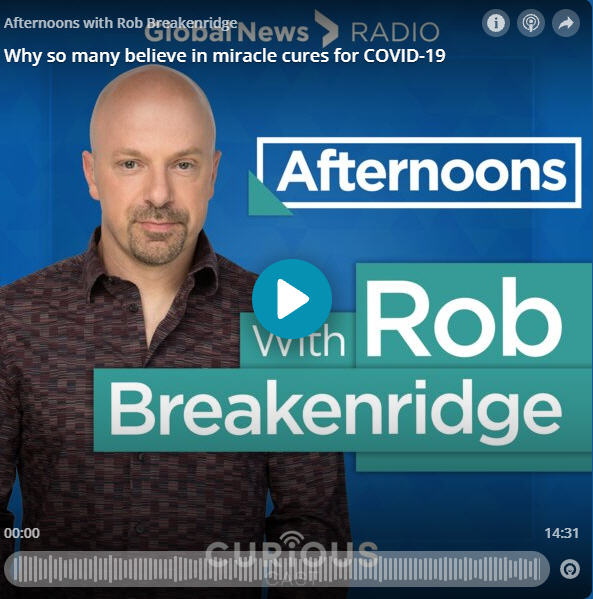
Health Canada, FDA, NIH, CDC, European Medicines Agency, etc., have all recommended AGAINST using Ivermectin in context of COVID.

A celebrity says he took a de-worming drug to treat COVID-19. We talk to the Canada Research Chair in Health Law and Policy at the University of Alberta about why you shouldn't take the celebrity's advice.

An evidence-based exhibition about the constructive role that art can play in public discourse around life-saving vaccines.

How can the research community debunk and stop the spread of misinformation? Hear what @DrLoriBrotto, @katejwahl, and special guest @CaulfieldTim have to say in the latest episode of the @WomensResearch podcast!

"The ScienceUpFirst initiative was created as an antidote."

Timothy Caulfield give a talk about the forces that spin science, including celeb noise, cognitive bias, hype, social media spin, etc.

The conference theme, Improving Mental Health Literacy in a Shifting Landscape, invites educators, school administrators, and clinical professionals from all over the world to increase their mental health knowledge and mobilize implementation of the Mental Health Literacy approach in their districts.

"Despite suggestive labels, there is no way to 'boost' the immune system." Needed: More robust debunking from scientific community!

Are privacy issues significant for a vaccine passport? Caulfield says: "I think the privacy issues are minimal. I think they're greatly overstated." He says equity and access issues pose greater concerns.

"...la campagne LaSciencedAbord. Cette dernière permet à plusieurs scientifiques et bioéthiciens de devenir des superpropagateurs de bonnes informations."

Caulfield, "The fact that there remains so much confusion about one of alt meds biggest "wins", should tell you something about the state of acupuncture and alternative medicine more broadly."

We’ve seen a lot of conspiracy theories around COVID-19, but the latest out of Alberta is one of the easiest to debunk with no legal or scientific backing. Timothy Caulfield says it’s important to debunk everything, ‘even something as absurd as this’

How to deal with online hate. Timothy Caulfield and Jody Vance talk about how vicious and polarized COVID misinformation has become...

Timothy Caulfield talks with Jody Vance on how to support the science fight and support people fighting misinformation.

A User's Guide to Cheating Death host Timothy Caulfield is on Wednesday's RealTalkRJ to explain how harmful misinformation = increased deaths and hospitalizations, plus poor policy.
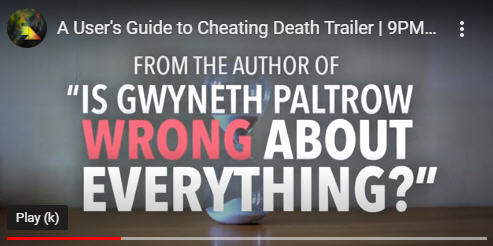
A User's Guide to Cheating Death host Timothy Caulfield is on Wednesday's RealTalkRJ to explain how harmful misinformation = increased deaths and hospitalizations, plus poor policy.

Reflects disregard for children, those ineligible for vaccination and businesses meeting their legal responsibilities, cowrite Prof. Ubaka Ogbogu.
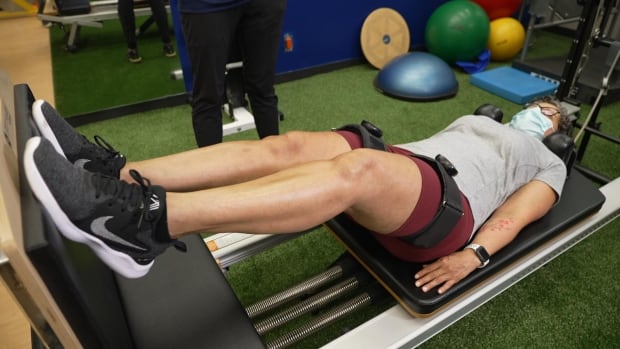
"Often these things that are presented as if they're going to have this huge, huge benefit. But often for the recreational athlete, the benefit might be much, much smaller, if it exists at all."

Alberta’s new COVID-19 policy is reckless and repugnant. "...about 35 per cent of Albertans – more than 1.5 million million people – do not have a single shot of vaccine."
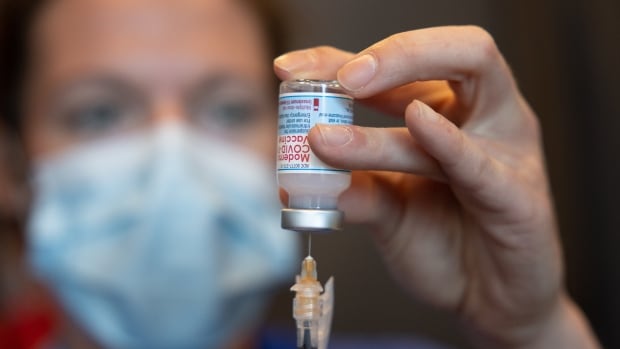
Caulfield, "Vaccination is 'something you do for your community. And I think that's the message this demographic needs to hear'."

Timothy Caulfield talks about misinformation, scicomm, and the value of public engagement. This community key!

Professor and health policy expert Timothy Caulfield joins Tamara Taggart on this week's TELUSTalks. They discuss the importance of fact-checking medical advice from celebrities and social media influencers, and how we can make informed health decisions.

TVO recently caught up with author and science policy expert Timothy Caulfield to get his views on how well — or how poorly — celebrities have been doing at informing their fans about COVID-19.

With Blake Murdoch

Vaccine passports can be designed to address privacy concerns. "...an important option that may be necessary to protect public health given the challenges the variant and anti-vaxxers present for reaching herd immunity..." by Research Associate Blake Murdoch.

Caulfield, "So declaring the pandemic over is going to be an arbitrary cultural moment, as opposed to an actual scientific finish line." Needed: "vaccine distributed equitably across countries."

Caulfield, “I worry that kind of language could fuel complacency and create the perception that it’s completely finished and unfortunately it’s not."

"It’s important to understand what’s at stake. The decision to receive a vaccine is a personal choice, but its impacts are societal." Blake Murdoch

Caulfield, "Premier signaling pandemic over. “From a public health policy perspective I think it could be really damaging.”

Featuring Public Health Expert Timothy Caulfield.

Caulfield: "What I would like to see is a coupling of these positive messages with what we need to do going forward. Let's make sure that we all get vaccinated!"

Chatting with Kristy on CFRA Ottawa about vaccine complacency, hesitancy, the disinformation dozen, and destructive impact of politicizing vaccination.

Caulfield: "it is unfortunate when politicians don't adopt a leadership role when it comes to vaccination."

Caulfield: "Celebs and influencers may hesitate to take a strong stand for fear of alienating a sector of their audience. Unfortunately, vaccines now have an ideological spin."

Caulfield, “What we really want @ScienceUpFirst to be is a tool that everyone can use. Everyone can become a part of the team!"

Caulfield, "The chiropractic community has a long history with antivaxx rhetoric".

We talk everything from antivaxx bunk to the science of parking!

Caulfield, "If you’re open to alternative medicine, you’re also more likely to be attracted to anti-vaccination rhetoric, so the ideas cluster."
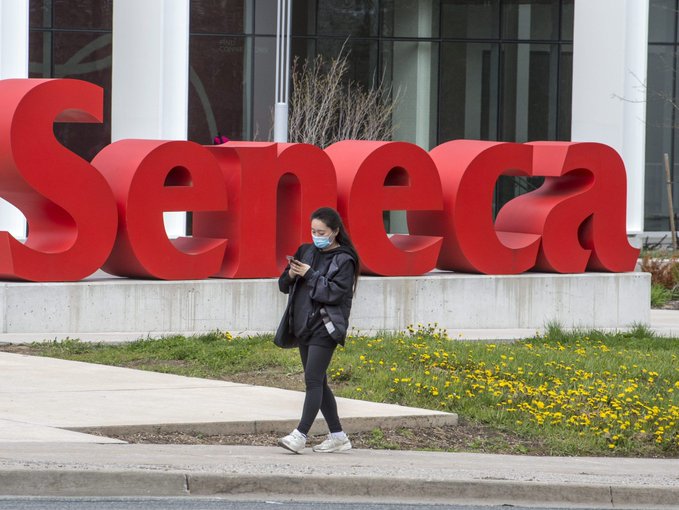
Caulfield, “Perhaps there is hope that carrots are going to win out. But it’s crunch time, and I think we need to think more seriously about sticks."

Caulfield, "Perhaps there is hope that carrots are going to win out. But it’s crunch time, and I think we need to think more seriously about sticks."

Caulfield, "So important to remove barriers, increase access, engage communities, and fight COVID and vaccine misinformation!

Caulfield: Bottom line: ignore all that noise. Drink when thirsty. Thanks evolution!

Caulfield, "We still need to strive to reduce community spread, we still need to get as many people vaccinated as soon as possible so, yes, the rhetoric emanating from the hard-core deniers matters,”

- Pause & think about accuracy - Go beyond the headlines - Sell job? - Testimonials or data? - Use trusted sources

Timothy Caulfield looks at what the research has to say.
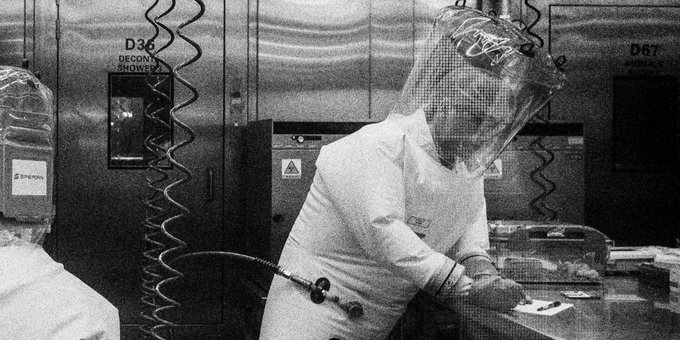
An admission of uncertainty isn't a condemnation of science — in fact, that is how science works.
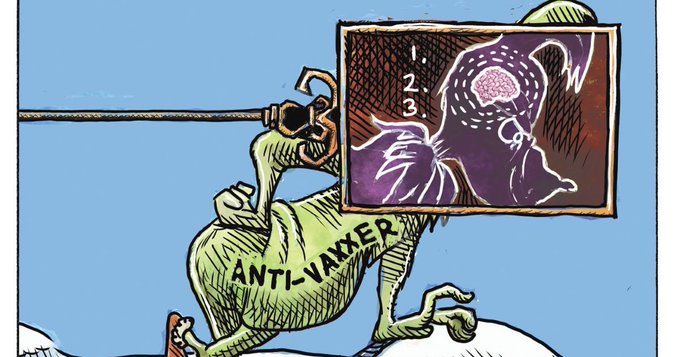
The anti-vaccine movement is a pseudoscientific assault on public health. Highlighting @ScienceUpFirst’s role in correcting health misinformation on social media.

Caulfield, "The more amorphous harm is the "acceptance of something that’s science-free that invites people to believe in magical thinking..."

@GurdeepPandher @CaulfieldTim @Cmdr_Hadfield @RobertThirsk @cblackst @shadkmusic @chiefladybird @BenMulroney @leelagilday @paulshaffer @chantalkreviaz @rufuswainwright @rameshferris

Timothy Caulfield

Caulfield: “I’ve never seen anything like this...”! "With good science, and clear and sound messaging from health experts, we can make progress against the pandemic and infodemic alike." Join #ScienceUpFirst!

Timothy discusses rural urban divide and role of complacency and misinformation. Remove barriers and "make getting a vaccine as easy as possible!" Pls, #ScienceUpFirst!
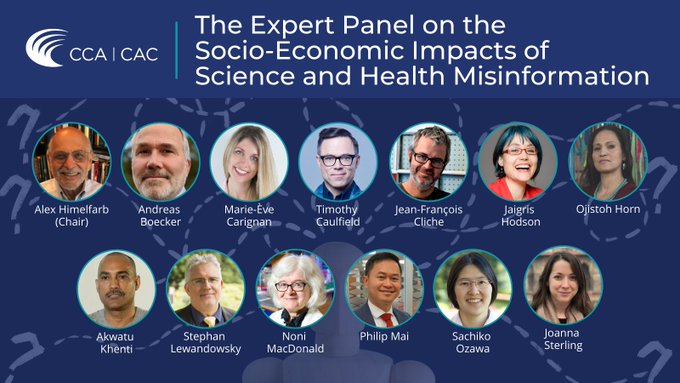
Assessment on the Socio-Economic Impacts of Health and Science Misinformation kicks off today with the first panel meeting. Meet the Panel, chaired by Alex Himelfarb.

Timothy Caulfield, MSRC, MACSS, Titulaire de la chaire de recherche du Canada en droit et politique de la santé, Université de l’Alberta
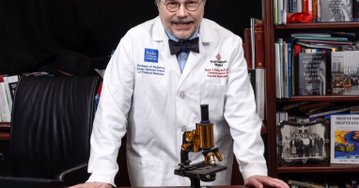
Stea, "As you might know, I am a coalition member of the Canadian anti-misinformation social media campaign, #ScienceUpFirst, which was founded by Professor Timothy Caulfield and Senator Stanley Kutcher."

This episode also comes from Genome BC’s Annual Genomics Forum. This discussion examines the importance of not sensationalizing data and being clear what the science means. Overly emotive clickbait stories do more harm than good. How can you help break the chain of misinformation?

Author and professor Timothy Caulfield is one of the experts part of a public forum on COVID19 myths and science being held on June 22 at the Li Ka Shing Institute of Virology.
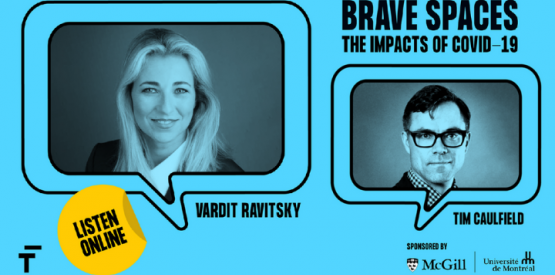
Timothy Caulfield speaks to Vardit Ravitsky about the spread of misinformation on social media during the pandemic, and how we can address this issue through action and policy changes.

Episode 4. Timothy Caulfield, Professor in the Faculty of Law and the School of Public Health, and Research Director of the Health Law Institute at the University of Alberta, speaks to Vardit Ravitsky about the spread of misinformation on social media during the pandemic, and how we can address this issue through action and policy changes.

Again, using twisted "liberty" language to push anti-vaxx agenda. How does Beasley feel about stop signs, food safety, and interference penalties?

Countering vaccine misinformation works! Have those tough discussions. Listen. Be patient. Provide a path to credible info.
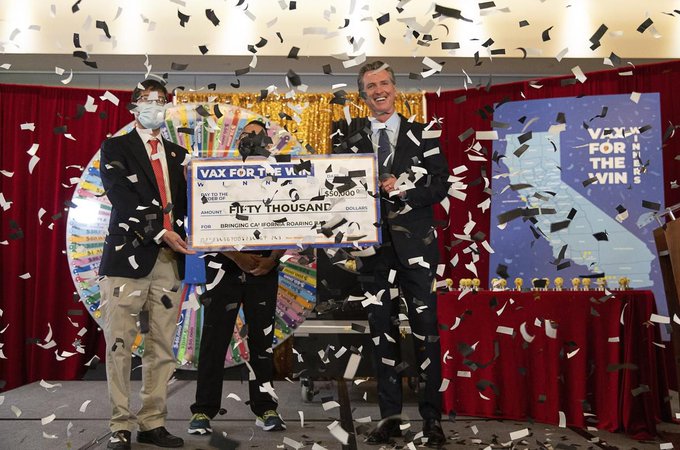
Turns out, experts say vaccine lotteries may actually make quite a bit of sense. (Not to mention, as Timothy Caulfield put it, it's "kitchen sink time.")

Caulfield "Hopeful we can get to 80%, but "it's going to be tough. It's going to require that we use every tool at our disposal"!

UAlbertaLaw Prof. Timothy Caulfield says celebrities and athletes can make a big difference in how people view vaccines and vaccinations.

What do public health officials need to do to convince more Albertans to get vaccinated? Tune in around the 2:22 mark for Timothy Caulfield.

Can you boost your immune system? Tune in around the 13:30 mark for Timothy Caulfield.

Caulfield “For those who are complacent, we need to use a vaccine strategy that gets this on their radar.”

What do we do when MDs or professors spread misinformation about COVID-19 vaccines? Timothy Caulfield weighs in.

Video Chat June 15 1:00 pm ET / 10:00 am PT

Timothy Caulfield is an author and Canada Research Chair in Health Law and Policy, University of Alberta. He spoke at The Walrus Talks at Home: The Future of Speech Online on June 8, 2021. Watch his full talk here.
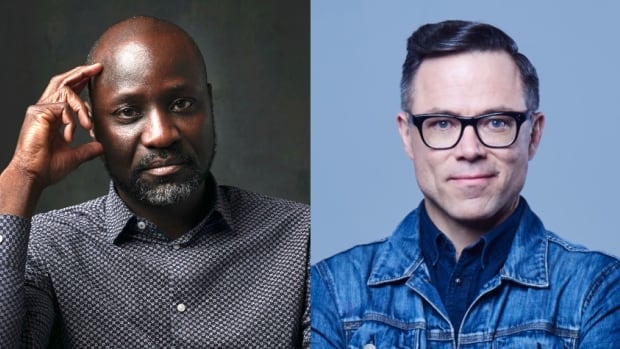
Caulfield won the $1,500 Wilfrid Eggleston Award for Nonfiction for Relax, Dammit!: A User's Guide to the Age of Anxiety.
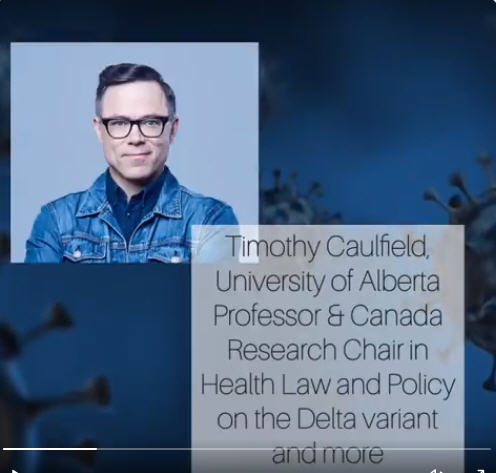
Timothy Caulfield on the Delta Variant.

No one think lotteries will help with antivaxxers. But they might (as some evidence shows) help with complacent or slightly hesitant. Another 2-3% = hugely helpful.

Incentives have a place. “We’re incentivizing it because it’s good for your community.” This crunch time! Let's go!

“Those individuals that might be somewhat hesitant, this might change the calculus" But “you want to make sure you’re incentivizing the right message..."
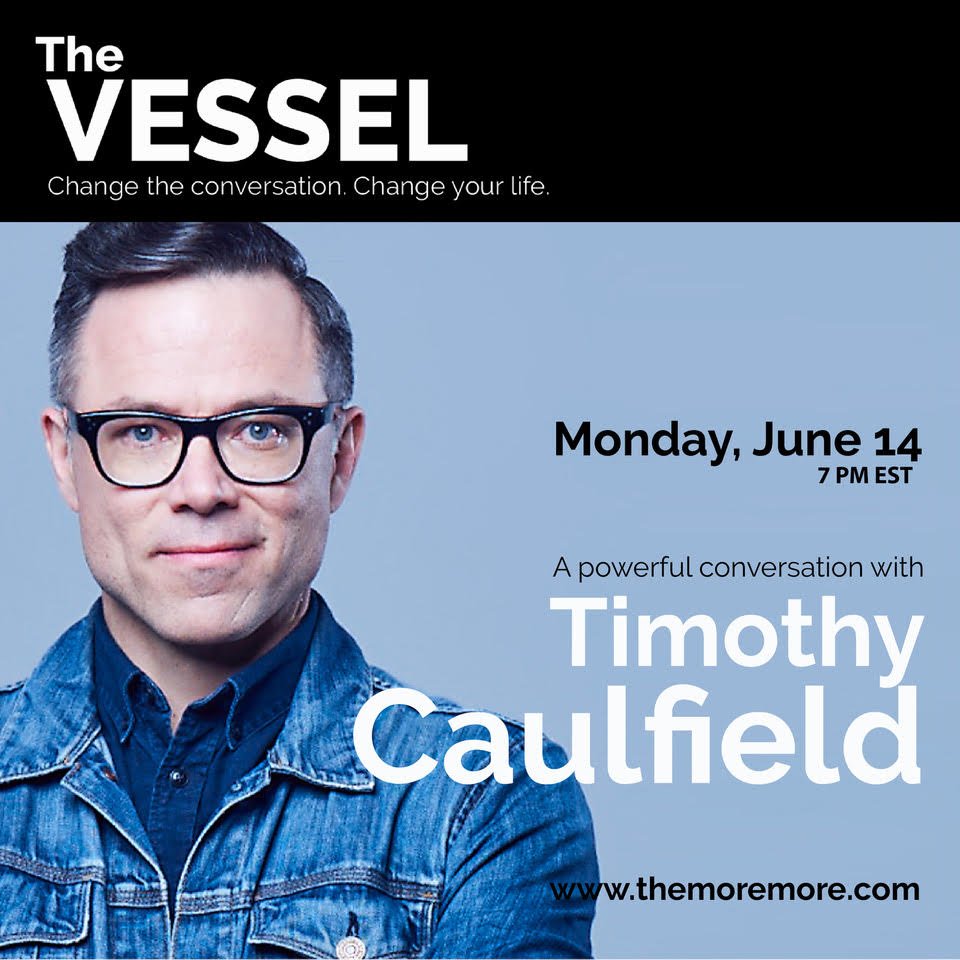
The More More: A powerful conversation with Timothy Caulfield June 14, 7pm EST

“There’s some evidence that for those who are slightly hesitant or complacent, an incentive might work. It might be a helpful strategy...”

“We need to have a degree of provincewide protection in order to justify opening up our economy and reducing our public health restrictions,” Caulfield said.
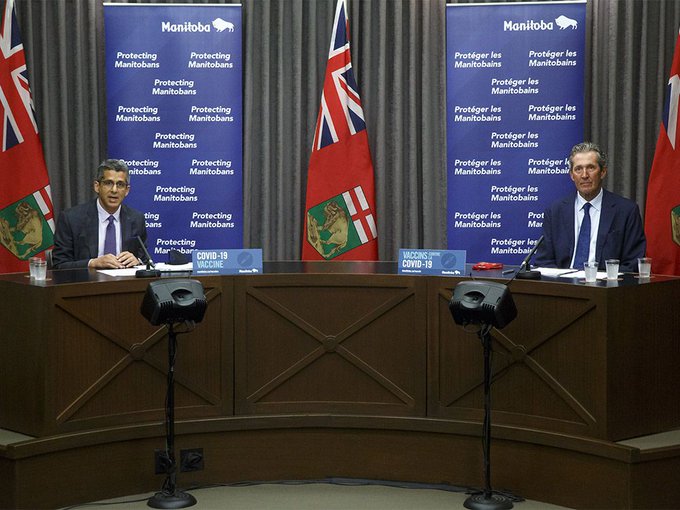
Prof. Timothy Caulfield says research on vaccine incentives is mixed, and the messaging around them needs to be appropriate.

Winner of the Wilfrid Eggleston Award for Nonfiction
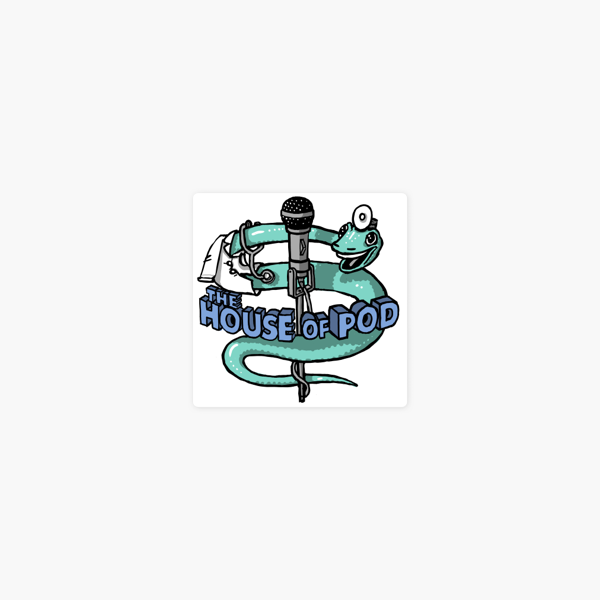
Lizzie and Kaveh talk with Timothy Caufield, professor of health law and science policy, and Tyler Black, psychiatrist/suicidologist about EMDR, debunking science myths, and the difference between the US and Canadian responses to COVID-19.
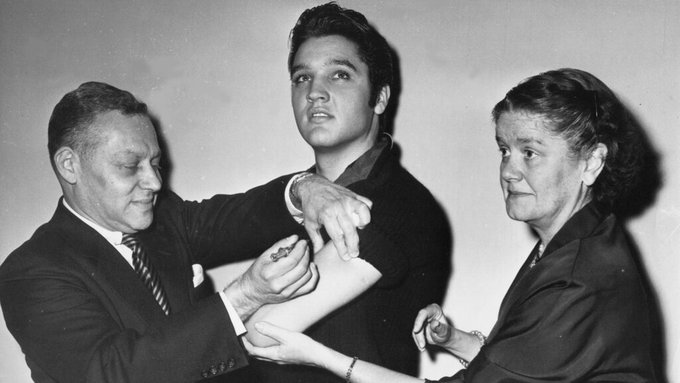
Caulfield suggested that The Rock, Tom Hanks or Beyoncé could be good ambassadors because they are loved and have a neutral place in pop culture.

Post-secondary institutions should be providing students with support and incentives to quit and preparing them for a smoke-free workplace.

A new approach employs "infodemiologists" to fight bad information outbreaks.

9 June 2021 8:00 pm
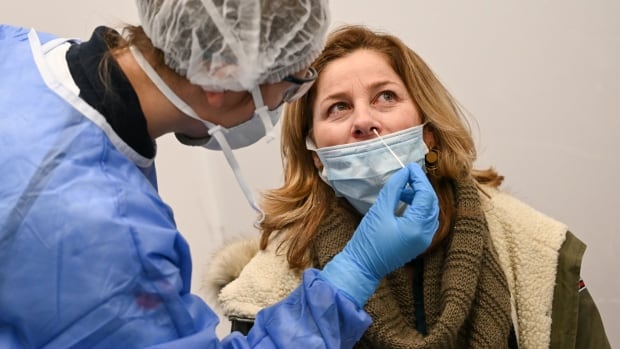
Caulfield "the #PCR bunk "fits so well into the broader conspiracy theory that pandemic is a hoax."

Balancing free expression and navigating harmful content. June 8 5-6 pm MDT

Caulfield: "key will be to frame the explanation in a way that is transparent and retains confidence."

Gonna tackle "Getting to the Truth About Our Health". A great opportunity to chat about a very hot topic!

Join us for this exciting public panel discussion "COVID Science: Cutting Through the Noise". June 22 6-7 pm MDT
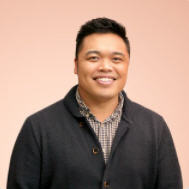
Caulfield speaks with CBC Afternoon Drive host Chris dela Torre about public health measures.

Caulfield said communicating scientific decisions in a pandemic is really hard, but doing it well is also critical.

Caulfield, "Where I think incentives can be helpful is that movable middle — those individuals who are either complacent or haven’t got around to it...” Must be done well.
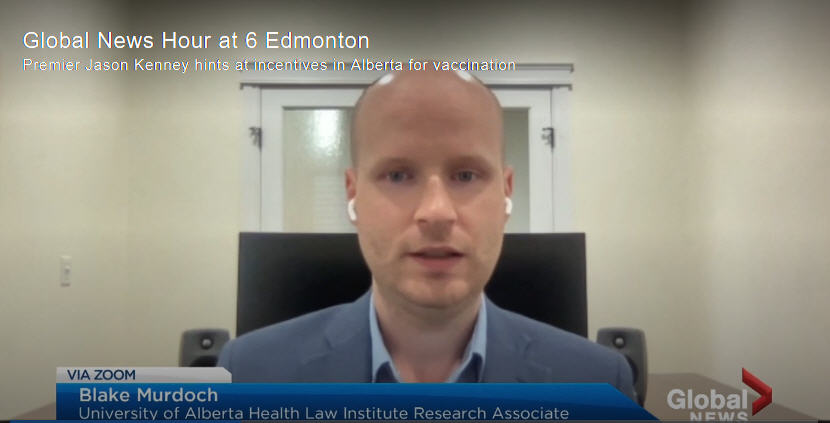
Blake Murdoch, a research associate at the University of Alberta Health Law Institute, said knowing Alberta is going to be reopening without the majority of people fully vaccinated, “we need to accelerate as quickly as possible.”

Tuesday June 1 4:00pm - 4:30pm EDT

Countering misinformation is key, even if it seems fringe-y (no, the vaccines won't change your DNA!).

Debunking by experts is needed, effective, encouraged, appreciated – and, perhaps, an obligation.

June 3 This expert panel will explore the concept of trust and science communication strategies during COVID 19.
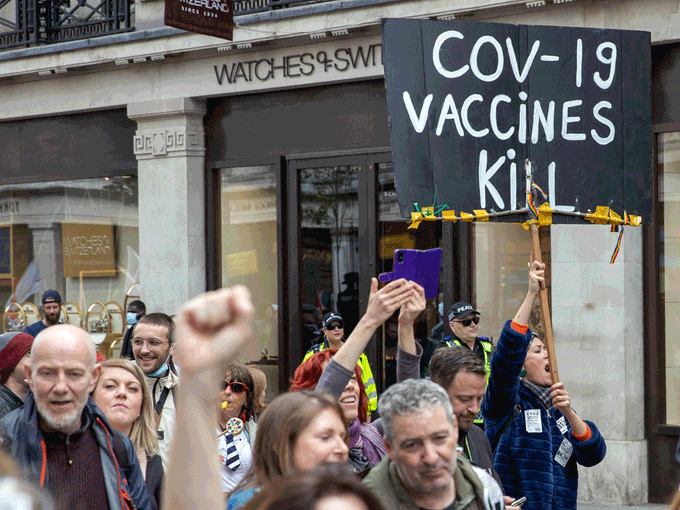
Caulfield: "The spread of misinformation is one of the great challenges of our time"

With consent, "there is a presumption of capacity." Caulfield: "You want kids to get vaccinated not just for herd immunity, but their own health."
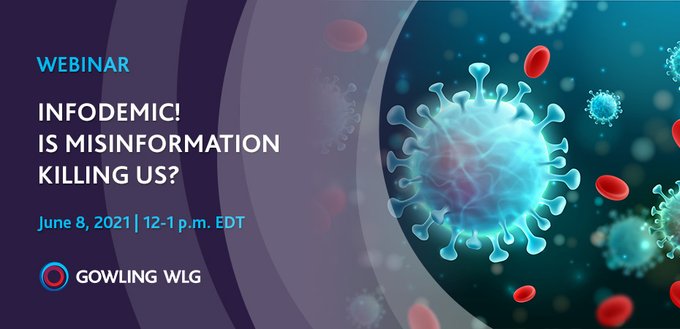
How can we push back against the rising tied of bunk? Are there evidence-informed strategies? (Spoiler: Yep!) RSVP to the live Webinar June 8

"Dealing with hesitancy is going to become increasingly critical as we near herd immunity."

Timothy Caulfield co-founded #ScienceUpFirst — a social media campaign combatting the misinformation infodemic.
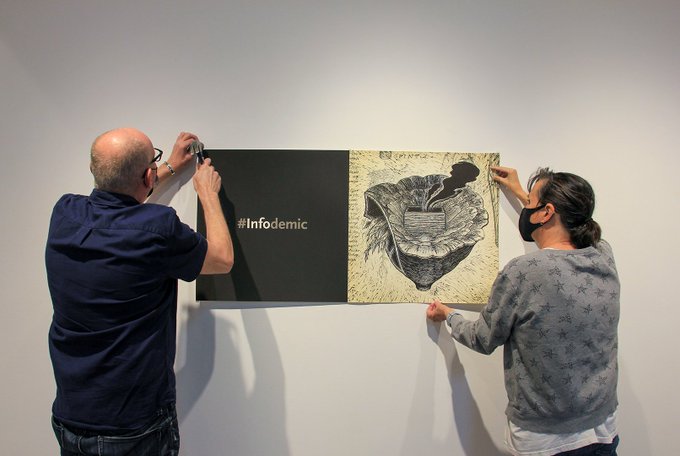
#Think Accuracy

How should universities deal with faculty that spread misinformation? Academic freedom vs. public harm of spreading bunk.

Omar Mosleh appreciated speaking with the bright minds of Timothy Caulfield and Jared Wesley about COVID-19 misinformation and who is most susceptible it.

“...demonstrates how far those who have anti-vaxx views will go."
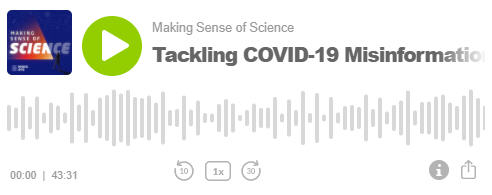
Some of themes: value of emphasizing Big Picture reality (ie, vaccines so impressive!) and hope; backfire effect (overplayed issue?).

"Je crois que c’est surtout lié au fait que certains défient les mesures sanitaires depuis des mois."

Infectious diseases specialist Dr. Fatima Kakkar and health law policy expert Timothy Caulfield answer caller questions about teens and vaccines.

Though Caulfield says the decision about whether to be immunized may ultimately fall to a teen patient, disagreements between parents and their children can arise.

“At the beginning of this pandemic we were celebrating public health officials and now we’re at a very different place."

#iNFODEMIC is an artist's book project made up of text and image pairings that were created out of an interdisciplinary project between Sean Caulfield, Timothy Caulfield, and Sue Coleberg.

Don't let fearmongering win!

Matt Galloway talks about the best ways to increase vaccine uptake with Timothy Caulfield, Canada Research Chair in health law and policy at the University of Alberta.

Social media campaign co-created by U of A’s Timothy Caulfield aims to help people find credible information online.

“Vaccination acceptance rates have gone up slightly or are a little more stable.” But fragile? Perhaps. Vaccine shopping and frustration with science communication.

Keynote Speaker 1:10-1:50 pm In his fun and provocative talk, Timothy Caulfield will examine the social forces that twist science, and how we can all cut through the noise to get to the truth about our health.

"They celebrate the science and make this sort of a joyful event" says Timothy Caulfield.

Overwhelmed by misinformation? So are we. Let’s talk about COVID19 and the anti-science vortex.
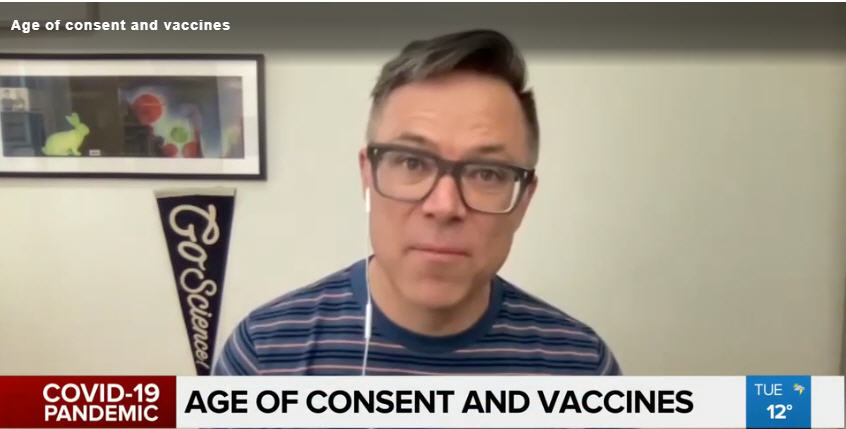
“It’s not a very complex procedure. We’re not talking about open heart surgery here.” Yep. Mature teens can consent. Their consent is both necessary AND sufficient!

Crystal Laders talks with Timothy Caulfield.

“In Alberta if they’re deemed competent – in other words, if they understand the nature of vaccines – their consent is both necessary and sufficient"

"Highlights that their message is just denial. DENIAL. That should be the takeaway from this incredible paradox."
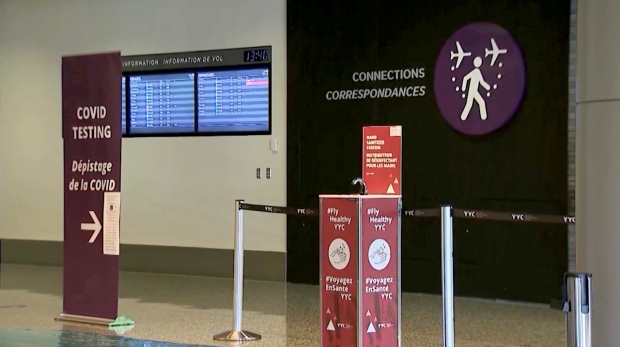
Caulfield, 'Equity, access and data monitoring issues, but also = more vaccinated (always good!). If following relevant local public health rules (no queue jumping!), OK?'

The spread of misinformation has been a defining characteristic of the COVID19 pandemic. How can we counter this “infodemic” with evidence-based communication strategies? Find out on May 13 with Timothy Caulfield.

McGill University in Montreal, Canada is seeking two Postdoctoral Fellows for a one-year period starting in 2021

Science-ing Daily Decisions

Caulfield said as long as people are following the public health rules and queues in those jurisdictions, "my view is a vaccine in the arm is always a good thing."

August 18-20 2021 The conference theme, Improving Mental Health Literacy in a Shifting Landscape, invites educators, school administrators, and clinical professionals from all over the world to increase their mental health knowledge and mobilize implementation of the Mental Health Literacy approach in their districts.

Professor Timothy Caulfield talks disinformation, COVID denial and public health messaging.

Health Resilience in the Age of Fear and Misinformation May 7, 2021 6:00-7:00pm (EDT)

Dr. Cora Constantinescu, pediatric infectious disease doctor and Dr. Timothy Caulfield talk to Judy Aldous on vaccine hesitancy.
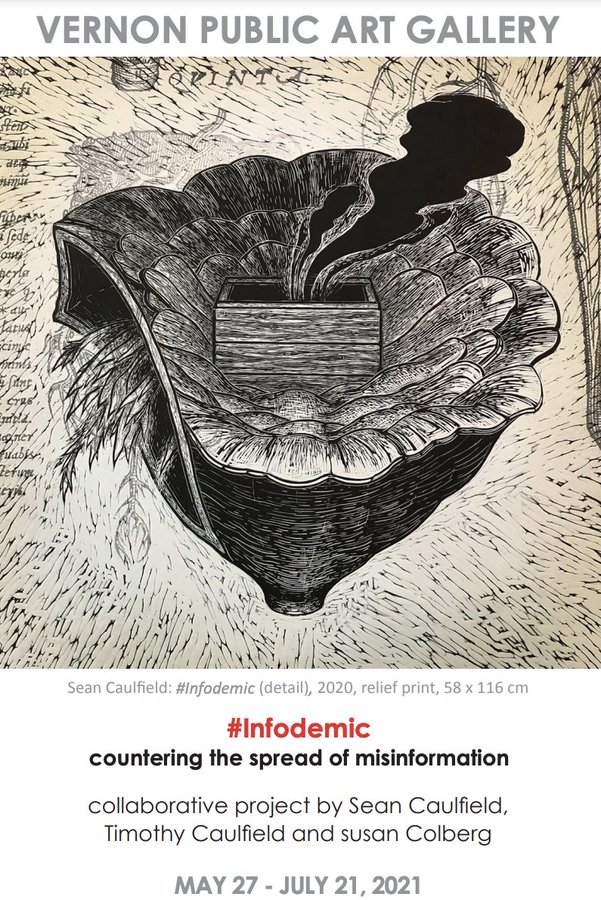
This is amazing work by Sean Caulfield, and graphic artist, Susan Colberg. Vernon Public Art Gallery.

Galloway discusses the political leadership in the crisis with Timothy Caulfield.
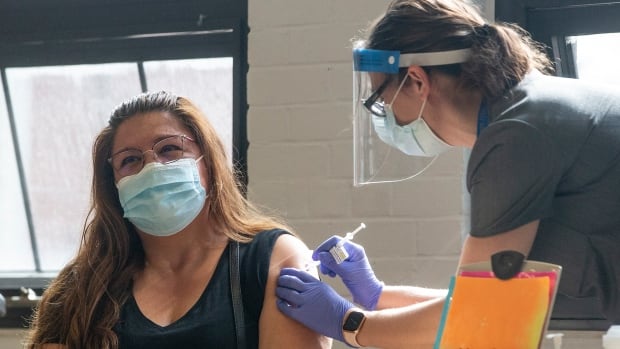
It matters if poor messaging mean 2 or 3% of people don't get the vaccine.

How to get people to actually follow public health rules during a pandemic. We'll hear from the man battling health dis-information, Timothy Caulfield.

Timothy Caulfield uses his typical blend of science and humour to take on the year that was, from viral variants to vaccines
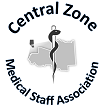
May 11, 2021 7:00pm MST

“I view getting a vaccine as an altruistic act. Something you do for your community,” he said. “I also think the rarity of these risks needs to be put in context. Everything in life has risks.”
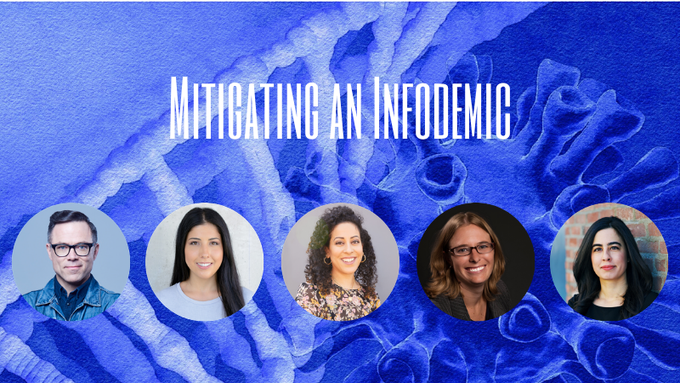
Speakers include Dr. Fauci (yes really!) Dr. Bonnie Henry, Dr. Timothy Caulfield, and many others.

CAPDM Annual Conference May 3, 2021 - May 5, 2021 A Working Summit: Connecting Healthcare Leaders with Rich Content and Actionable Intelligence

If you are Estonian, out May 7th! Loose translation" "Take It Easy!"

Timothy Caulfield is a Book Award Finalist for the Science Writers and Communicators of Canada. Winners will be announced in the summer of 2021. More details at https://sciencewriters.ca/book-awards #SciLit #SciComm #CanLit #SWCC50.

Conceptually incoherent.

“You don’t have to be a hardcore denier to be influenced by this." #Antivaxxer trying to sow doubt. Ignore and #ScienceUpFirst!

"The spread of misinformation does real harm. It is having, for example, an adverse impact on vaccine uptake and on the adoption of preventative public health strategies. It is also fueling fears and polarized public discourse. With ScienceUpFirst, we are countering misinformation on social media with proven strategies: humour, creativity, empathy, and the best available scientific evidence."

With ScienceUpFirst, we are countering misinformation on social media with proven strategies: humour, creativity, empathy, and the best available scientific evidence."

Two new projects to encourage vaccine uptake in Canada. "With #ScienceUpFirst, we are countering misinformation on social media with proven strategies: humour, creativity, empathy, and the best available scientific evidence."

Steered by University of Alberta Law Professor Timothy Caulfield, ScienceUpFirst will now receive $1.75 million in federal funding through the Immunization Partnership Fund to encourage vaccine acceptance and uptake.

Umbilical cord blood is special. Some companies are cranking up the hype machine to convince you they should freeze it for a fee. Marcon, Murdoch, and Caulfield's new study, 'Peddling promise? An analysis of private umbilical cord blood banking company websites in Canada' is referenced.

So efficient. So effective.

"Her comments are not of the flavour one would expect from a politician who is trying to deal with the public health crisis."

"We have to be transparent, we need to be honest about these adverse events, but we also need to be clear about the risk-benefit ratio."

“I don’t think we can teach critical thinking early enough": health researcher Timothy Caulfield says it's crucial to arm teens with science-based COVID-19 information and make them part of the messaging.

"Their actions have a real impact in the context of creating vaccine hesitancy..."
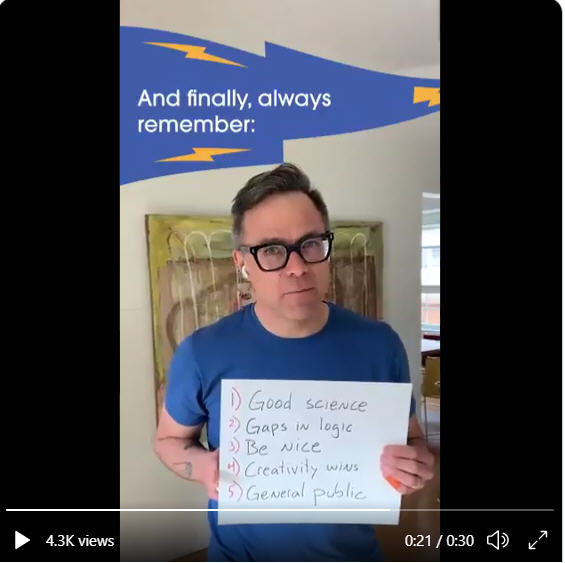
Debunking WORKS! Timothy Caulfield has the low-down on how to stop the spread of dangerous misinformation.
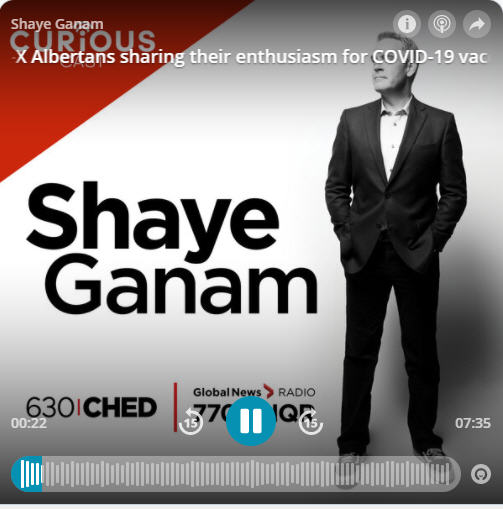
Timothy Caulfield talks with Shaye Ganam.

C’est ce qu’on appelle l’effet de cohorte, explique Timothy Caulfield. Quand on voit nos pairs obtenir [le vaccin], ça aide à normaliser le processus.
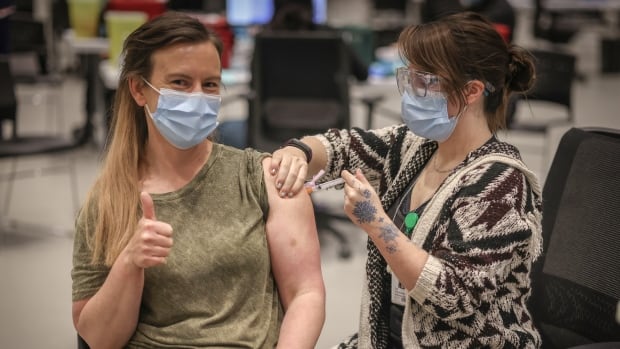
I know many hate "selfie" culture, but I think a constructive trend. Anything to help normalize vaccination!

“I think it is important to normalize getting vaccinated. It is important for individuals to see people like them getting vaccinated, and that can help reduce vaccine hesitancy.” Caulfield

Hosted by 2020 Fellow Vardit Ravitsky with 2020 Fellow Prof. Glenn Cohen and 2013 Fellow Prof. Timothy Caulfield, this workshop will provide Scholars with theoretical and hands-on training on how to effectively engage with the media and communicate expertise to the public in an impactful manner.

Inequity is not inevitable. It is a problem that can be solved. The members of the PETF COVID-19 Impact Committee have signed A Commitment to Action Declaration that highlights the urgent need for change.

Youth are getting vaccine appointments that would have otherwise been a wasted dose.

Battling Pseudoscience in the age of misinformation (Stewart Cameron Lecture)

Sean Caulfield organized a compelling art exhibit on the pandemic. Topics: isolation, misinformation, stigma...

The concern is, if there’s information flowing from the government that can’t be confirmed, we’re going to undermine public trust at the absolute worst time,” says Timothy Caulfield.

Timothy Caulfield on the importance of battling pandemic misinformation.

Wellness gurus use bunk messaging to build their brand.

Dr. Shazma Mithani and Prof. Timothy Caulfield speaking truth (and actual facts) on Real Talk Ryan Jespersen in discussing Kaylor Betts viral video on Covid.

Wednesday, April 21, 2021 at 7:00 PM – 8:00 PM

What makes us believe some messages over others? Alice Fleerackers asks Timothy Caulfield, Jaigris Hodson, and Marcelo Träsel why we trust who we trust—and how our gut instincts can lead us astray.

"It is still the case that the best vaccine for you is the one that has been recommended and is first available to you..."

"We often hear it's a race against the variants, but I think it's also a race against complacency and rage" “Most Canadians have been amazing." We need to engage.

Social Media Conference: Communicating Medicine: Practicing Evidence Based Medicine in an Online World May 14, 2021

Battling pseudoscience in the age of misinformation (Stewart Cameron Lecture).

Mitigating an Infodemic Thursday, May 6, 2021, 9:15 AM - 10:30 AM

Polarization = “more about the camp you’re in, and less about the science."
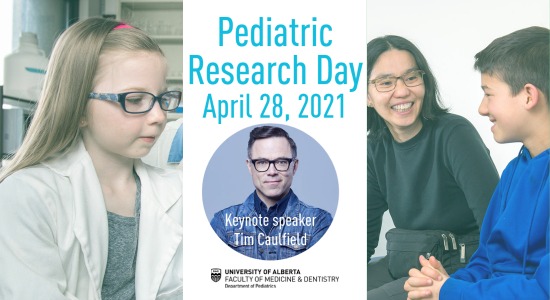
Battling bunk: Evidenced-based strategies to counter misinformation
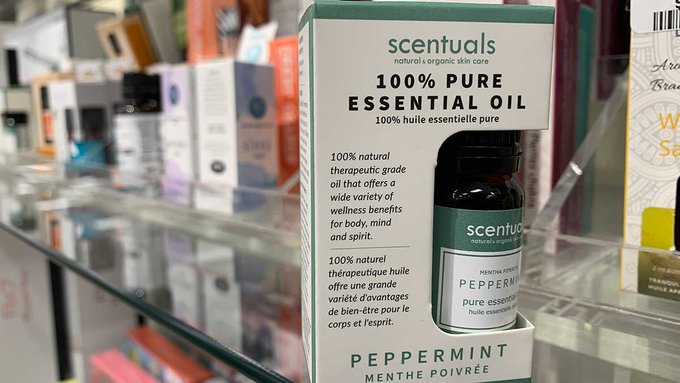
“They use science-y language to back up their claims but there is no real science there,” Caulfield said.

Science-ing Daily Decisions

Timothy Caulfield chats about impact of confused messaging, fear, and misinformation!

Timothy Caulfield speaks to graduate student Morenike in YouAlberta about how to process the overwhelming amount of information we're faced with on social media.

"The numbers of messages that have to be evaluated are just huge so I think that is one of the great challenges of social media: how can you meaningfully monitor all of these posts, but we know we need to," said Caulfield. "The challenge is there but the harm is real."

In the first-ever video chat for On the Mic with Mike, Dr. Strong meets with Professor Timothy Caulfield, Canada Research Chair in Health Law and Policy from the University of Alberta. Together, they discuss the importance of fighting misinformation, building public trust in science, and finding good mentors.

2021 Online Convention Wednesday May 5, 2021 9:30 a.m. to 10:20 a.m.

Talking about RelaxDammit, misinformation, and our daily decisions!

The Social chat with Timothy Caulfield about the confusing science behind our every day decisions - and why we just need to "Relax, Dammit."

"Health claims for food products are great marketing tools. Better-for-you food bunk does not seem to be making us healthier. But it does ring the cash register."

Health policy expert and author Timothy Caulfield walks us through a less stressful way forward in ‘Relax, Dammit’.

What we need is good science and compassion everywhere, especially in the context of conventional care.

Now that we are dealing with technologies that can improve themselves much faster than a human could, we risk falling very behind, very quickly.

April 9 @ 7:00 pm - 8:00 pm EDT This event is virtual with dinner for pickup/delivery

Free Half-Day Online Educational Event Thursday March 25th 11:00 a.m. - 2:00 p.m. EST

As comforting as it would be for Karl Popper’s demarcation criterion to resolve the question of separating science and pseudoscience, it doesn't work. So why does the falsifiability standard remain so popular?

Relax, Dammit! in Romanian!!!

5 RELAX, DAMMIT! A USER'S GUIDE TO THE AGE OF ANXIETY

Championing evidence-based public health: #ScienceUpFirst initiative.

"There is a very real need to ensure that reliable, evidence-based information is as available, plentiful and accessible as misinformation, and that it travels as quickly online."
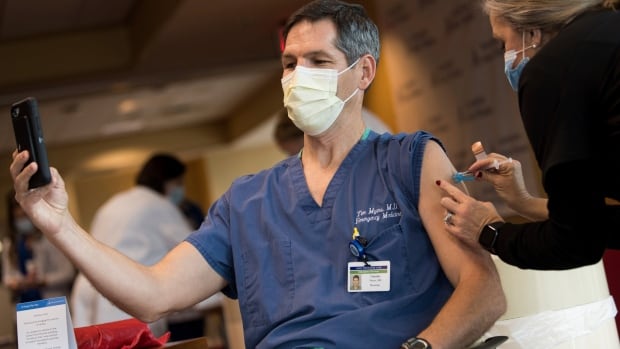
"A selfie is a little story," Caulfield said. "It's a little story about you getting vaccinated, you're celebrating the science, you're celebrating this moment and you're normalizing the behaviour.

Podcast with Lilian McBride. 'Today's episode features Timothy Caulfield's 2015 book "Is Gwyneth Paltrow Wrong About Everything?" '

May 14 @ 2:30 - 3:00 p.m. Misinformation During the COVID-19 Pandemic

Timothy Caulfeild (Canada Research Chair in Health Law and Policy) joined the Arlene Bynon Show on Canada Talks to discuss the damage done by vaccine misinformation.

Trend "has been driven by many things, including cost, environmental concerns &, paradoxically, the public health push to get more people to wash their hands"

EPISODE #9: DIGGING DEEP WITH MARK SUTCLIFFE PODCAST October 30, 2020

The #ScienceUpFirst project began when public health scholar Timothy Caulfield and Senator Stanley Kutcher recruited a national coalition of scientists, communicators and health experts to empower Canadians to work together against misinformation about COVID-19 and COVID-19 vaccines.

...try not to let the uncertainty kerfuffle distract you from the big picture.

Relax, Dammit! Thursday, March 11 @ 7 p.m. EST

Today March 10 1:30-4:30 pm

Free Saturday Morning Webinar. Will talk about the spread of misinformation and what the evidence says about how best to counter! March 13 @ 11:00am EST
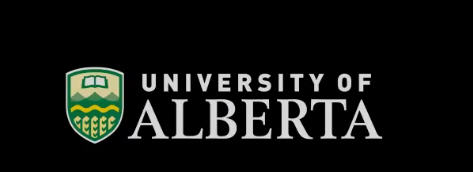
Can you really eat something off the floor if it's only been there for five seconds or less? Timothy Caulfield looks at what the science has to say about the five-second rule.

"Parents don't have a right to neglect their children, and that's what this case is really about."

Professor Timothy Caulfield says in order to achieve herd immunity against COVID19, a large majority of the population will need to get a vaccine.

How Gwyneth Paltrow et al exploits the pandemic for profit. Professor Caulfield's book 'Is Gwyneth Paltrow Wrong About Everything' is noted.
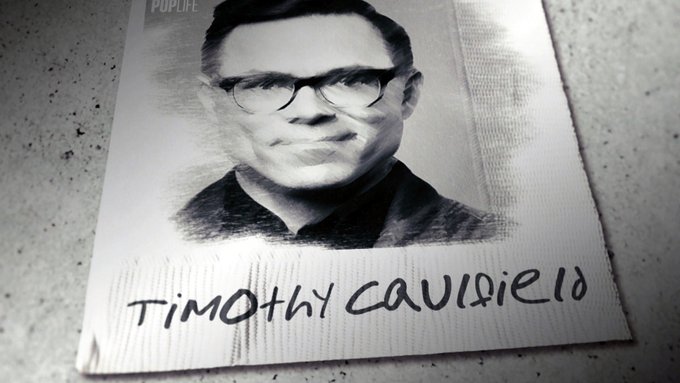
Author Timothy Caulfield talks about his book "Relax, Dammit!" with Richard Crouse on Pop Life CTV.
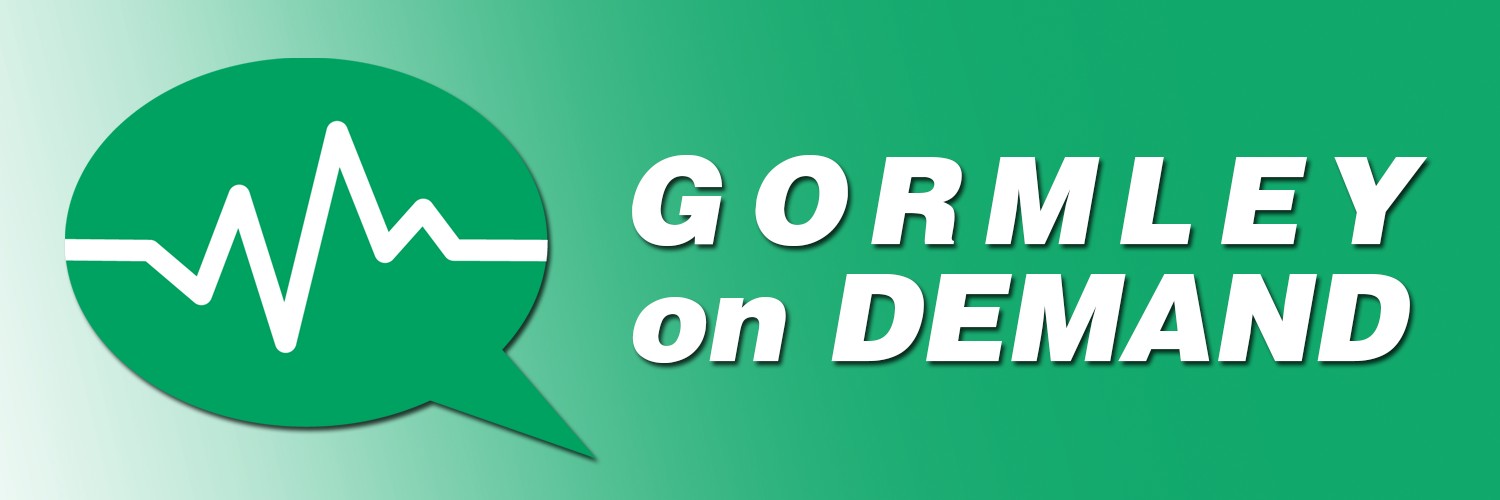
Caulfield, 'We answer important questions like: toilet seat up or down; how much coffee is enough; and does Gwyneth hate me??'

Dr. Sirota talks with Professor Caulfield on many subjects.

Timothy Caulfield describes the ultimate instagram immunebooster post (picture of a beautiful person on a beach in yoga gear with a smoothie in one hand and supplements in other...)

Tune in to the 16:00 mark for the interview with Timothy Caulfield.

Event today! "Interview with Timothy Caulfield" "...there is plenty of research showing that debunking — countering misinformation with facts — does work." Q: Do you get hate mail from Gwyneth Paltrow fans? A: Yup

"Federal guidelines should be more accurate" Blake Murdoch.

Wow. You must be thirsty! No magic to how much you need to drink. Trust your kidneys. Don't get fooled by Big Hydration! #ScienceUpFirst #WellnessWednesday

Timothy Caulfield will be speaking at the 6th Annual Women’s Health Research Symposium March 3, 2021

One lucky WOS reader will win these 3 books (ARV $57) thanks to our sponsors. US, 18+. Ends March 18, 2021 11:59pm EST. Good luck!
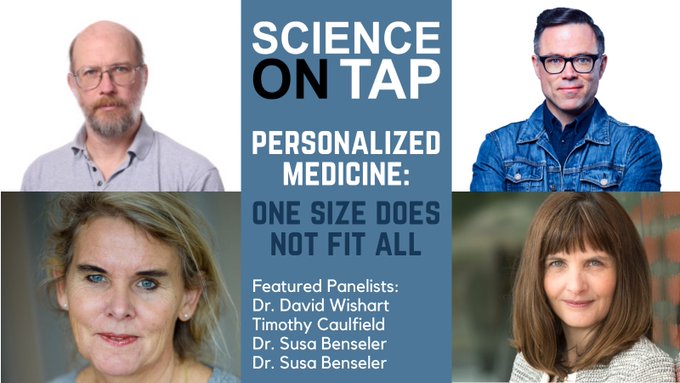
Our next TWOSEscitap will feature a panel of experts discussing the benefits, risks, and ethical considerations of personalized medicine, plus how it is being used today. Bring your questions and join in this casual scientific conversation! March 23, 2021
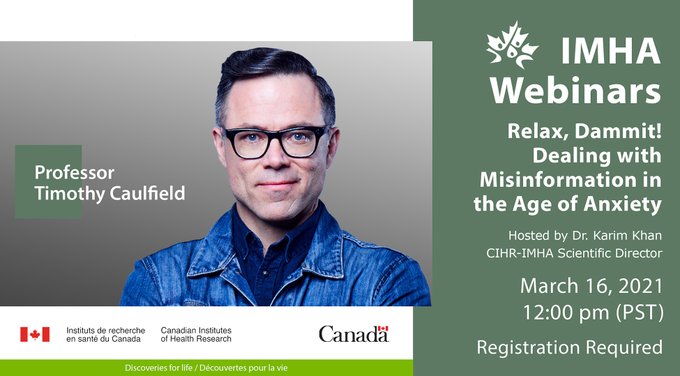
New Webinar! Join IMHA and renowned author, Professor Timothy Caulfield for "Relax, Dammit! Dealing with Misinformation in the Age of Anxiety". March 16 @ 12pm (PST)

A fun (well, he'll try!) analysis of our daily decisions (coffee, breakfast, parking, binge watching, wine, etc) and the forces that twist the relevant evidence. Today March 2 @7pm

Notons par ailleurs que sur Twitter, le canadien Timothy Caulfield, professeur de droit et de sciences politiques a retrouvé une “pépite” concernant le chiropracteur Will Core que recommande Gwyneth Paltrow.

Timothy Caulfield comments on the need for public health officials to adapt their #COVID19 messaging to ensure more people are adhering to the rules.

Timothy Caulfield talks to Shelagh Rogers about his new book, Relax, Dammit! A User’s Guide to the Age of Anxiety. Ranting? Standing desks? Breakfast? What does science say?

“It's an opportunity to explore all the social forces that twist what we hear and impact our decision-making..."
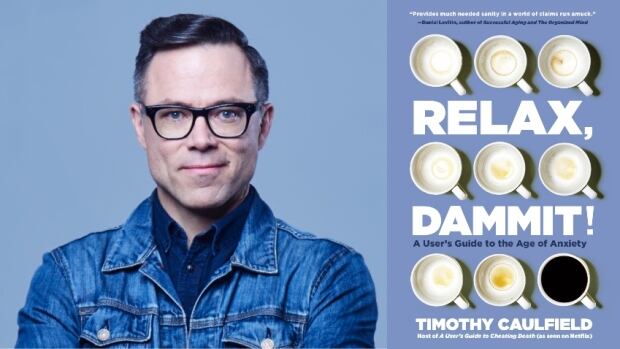
Relax Dammit! explores modern life and the habits and decisions we make.

Tune in around the 23:25 mark for Professor Caulfield.

The Full Show: Cracking down on Vaccine misinformation, and looking to the economic recovery. Cue to 20 minute mark for Timothy Caulfield and Charles Adler talk.

Timothy Caulfield on his latest book, Relax, Dammit!

Professor Timothy Caulfield says listen, be empathetic and direct them to reliable sources.

Paltrow's COVID "advisor" is Will Cole, "a quack" who has pushed #antivaxx misinformation.

“We absolutely need these voices out there. And we’re increasingly asking them to be out there. We need to support them.”

Join us for a Coffee and a Keynote Hot beverage on March 13th to explore how misinformation spreads (and the harms of it) with Timothy Caulfield, hosted by Dr. Alec Couros. Register, grab a warm drink and tune in at 11am ET / 8am PT
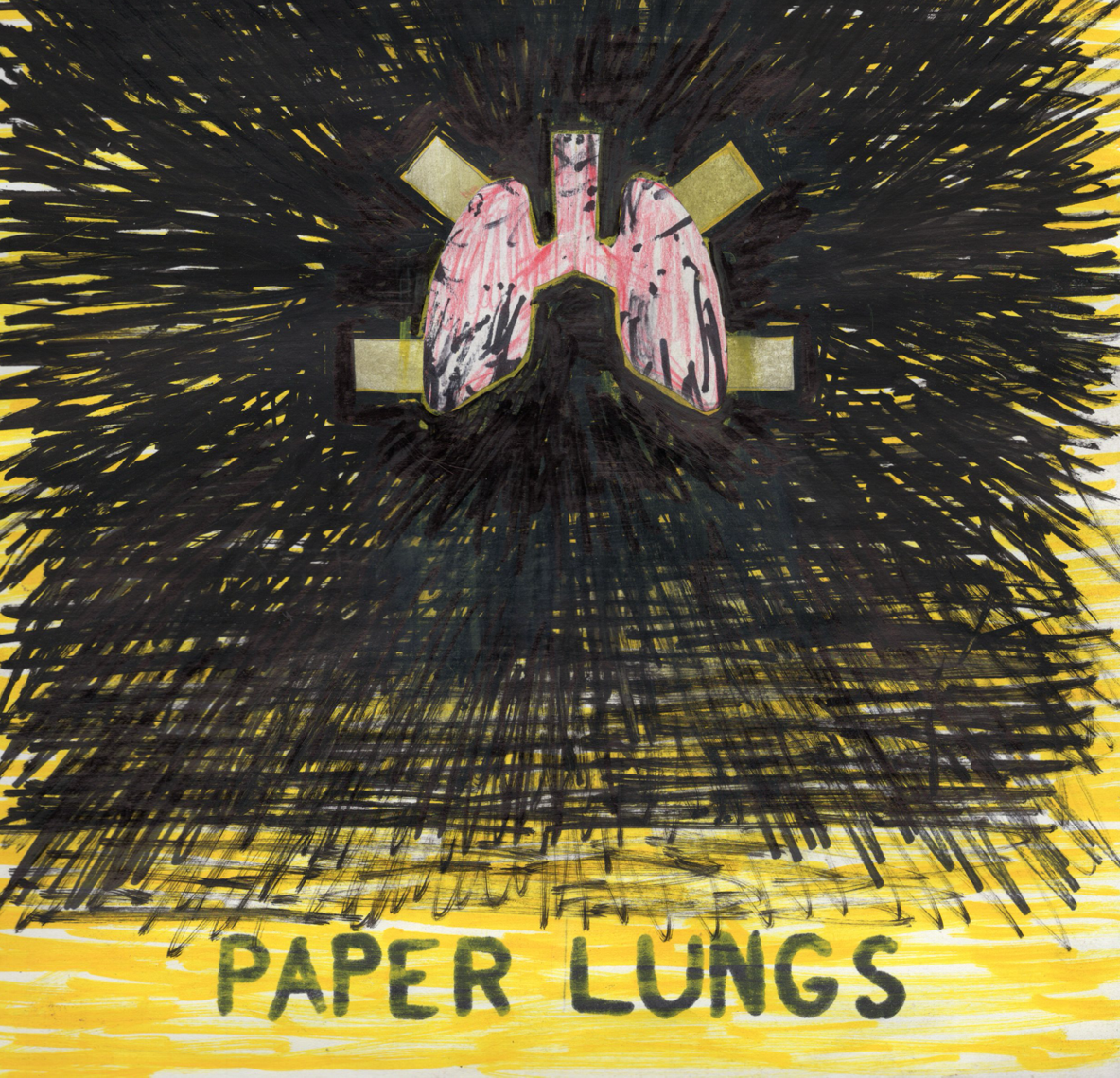
The COVID-19 pandemic has impacted every facet of Canadian society. First and foremost, it has resulted in the tragic loss of life for thousands of Canadians, leaving family, friends and communities to grieve their passing, as well as significantly affected the health of thousands more. Beyond this, it has had an enormous impact on Canada’s economy, political institutions, social programs, education at all levels, as well as the arts and cultural sector, to note just some of the wide-ranging effects of this pandemic.

February 19, 2021: Restrictions and Vaccines will see us Through COVID-19 Safely

Alberta Construction Safety Association March 15-19, 2021 Virtual Event
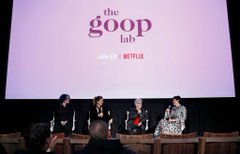
"...trying to leverage the pandemic in order to sell products, to further a brand, or even to sell a kind of an ideological position [about health]"
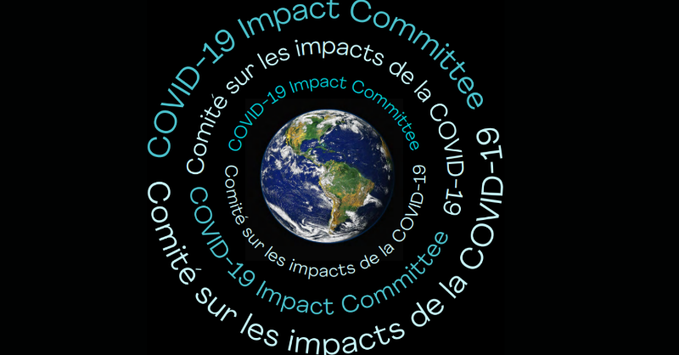
Between June - August 2020, our #COVID19 Impact Committee published 16 articles in @LP_LaPresse and the @TorontoStar. This compendium chronicles the unfolding pandemic through the eyes of the committee’s outstanding research and leadership in this public discussion.

Let's focus on the good science and evidence-informed policy! #ScienceUpFirst!

Will explore connection between stress and misinformation. Also, why debunking works and is needed! Feb 18 3:00 - 4:30 (CT)

"#Misinformation is a dire, imminent threat to the lives of all Canadians and is proven to be one of the factors fueling #COVID19 infections, and dissuading Canadians from getting vaccinated."

Featuring award winning academic, author, and TV host Timothy Caulfield, called the ’Canadian nemesis of pseudoscience’ by The Globe and Mail.

"While the fight to promote facts isn’t going to be easy, we mustn’t surrender to misinformation."

How can we judge whether a source of health or science information is reliable? As Caulfield puts it, “as a fact-checker, your job is not to resolve debates based on new evidence, but to accurately summarize the state of research and the consensus of experts in a given area, taking into account majority and significant minority views

Is breakfast the most important meal of the day? Do I really have to floss? Public health expert Timothy Caulfield joins us for a liberating, scientifically informed guide to overcoming the anxiety of modern life. Event Feb 21 @ 6:30 GMT
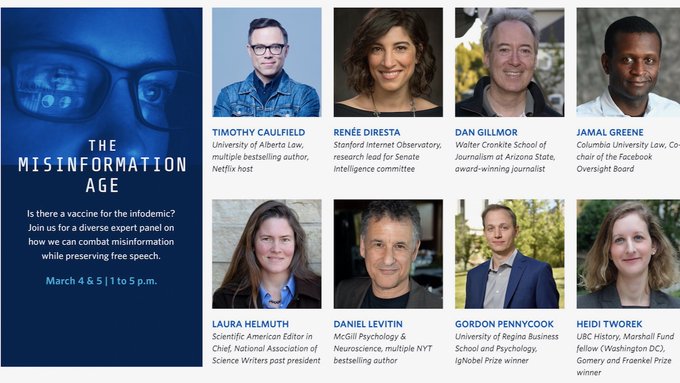
We have an incredible #misinformation event coming up on Zoom, March 4th and 5th, open to the public. Look at this amazing lineup!

Speaker: Timothy Caulfield, Canada Research Chair in Health Law and Policy, Professor - Faculty of Law and School of Public Health, and Research Director - Health Law Institute, University of Alberta; Host and Co-Producer, A User's Guide to Cheating Death TV Series on Netflix; Bestselling Author

I sat down with best-selling author Timothy Caulfield to talk about his latest book Relax, Damit: A Users Guide to the Age of Anxiety. In this conversation we managed to cover everything from foreplay to how we can get people to wear masks to help stop the spread of COVID-19.

In Relax, Dammit!, health expert Timothy Caulfield looks at a regular day in modern life and the habits and decisions we make. He digs into the science behind many of our mindless day-to-day tasks and argues that many of the things we think make our lives easier, more convenient and more manageable, actually don't. He also argues that there is a way for us to become more relaxed, more at ease and less busy.

A video of a Calgary officer shaking hands with a speaker at an anti-mask rally this weekend, has drawn outrage online.

"It's not going to fix everything, and we're talking about moving the needle. But when you're talking about something as problematic and as important as the spread of misinformation, moving the needle matters," Caulfield told CBC's Radio Active.

The tolerance of pseudo-science and unproven therapies [is what] got us to where we are.

Let's be positive about #vaccines (this is like moon landing!) AND honest about uncertainties.
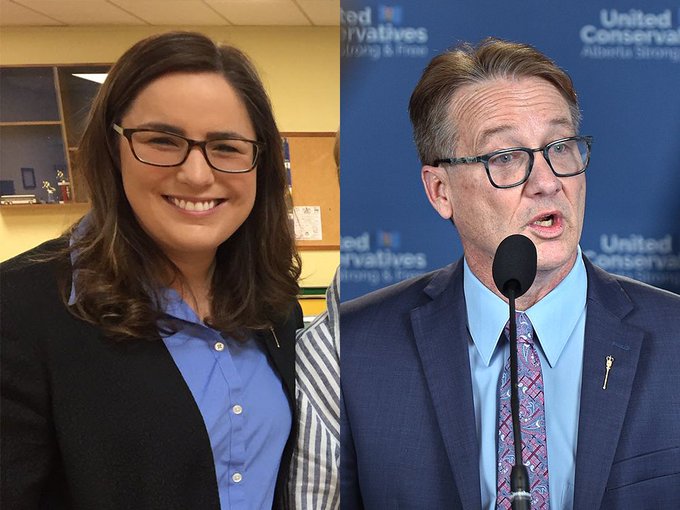
David Staples and I don't always agree (!), but he raises challenging issue. Debate key. Few thoughts: Generally NOT a "free speech" issues; Science must be accurate (obviously); False balance can do harm
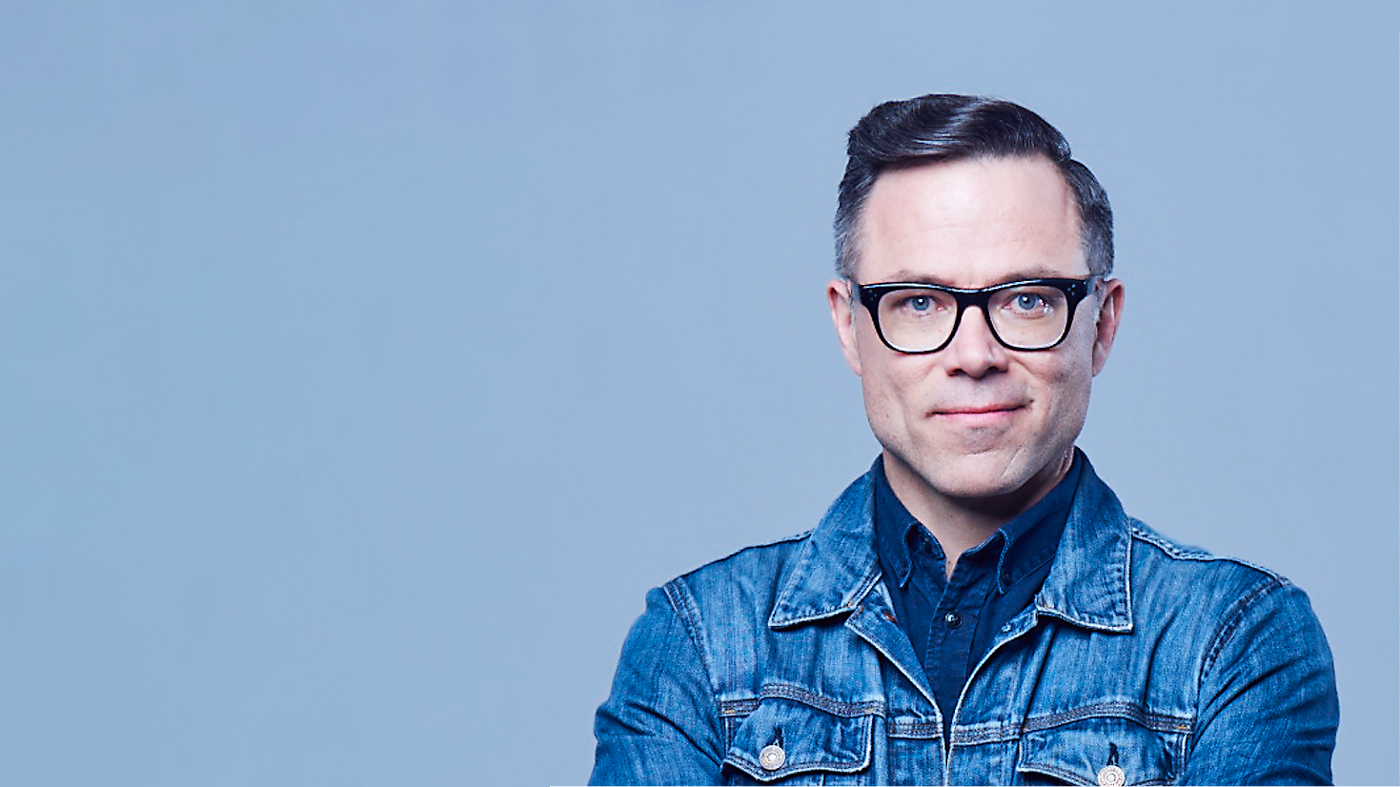
How do you respond to a deluge of COVID fake news on social media? Science Up First is fighting back with a tsunami of irrefutable science.

Timothy Caulfield has returned to discuss his new book and how media has been influencing our behaviors, “How News Can Confuse”.
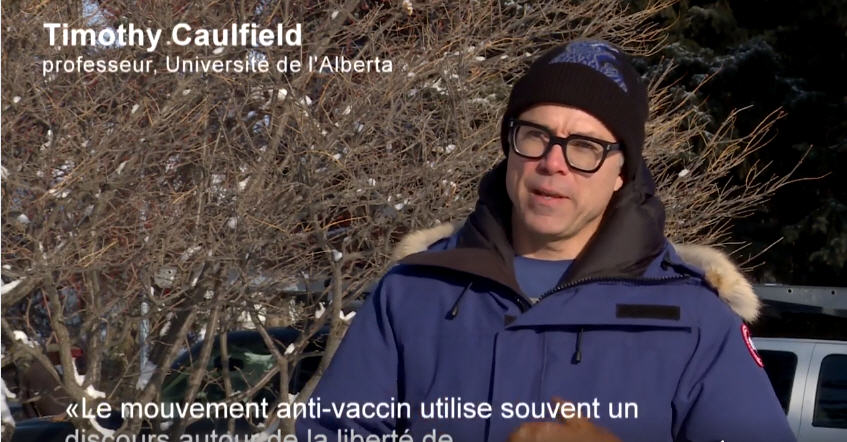
Ceux qui suivent les séances de question-réponse de Jason Kenney sur Facebook auront peut-être remarqué qu'il n'hésite pas à démentir certaines théories du complot sur la COVID-19 et la vaccination.

Shift by Alberta Innovates checked in with Timothy Caulfield about the battle against science misinformation around COVID-19, the new vaccines and his new initiative #ScienceUpFirst!

Murdoch “People want to have some idea. They need to have some sense of when, in a systematic way, they are going to be able to get vaccinated..."

D’autres experts pensent qu’il vaut mieux ignorer ce noyau dur et se concentrer sur ceux qui se trouvent au milieu.
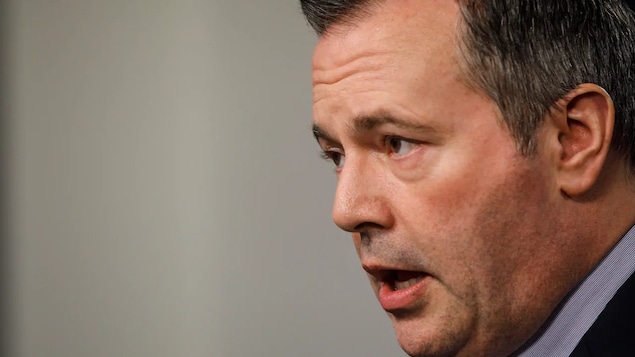
Caulfield: "I am happy that he is exposing them, but he needs to send a clear message that it is wrong to spread disinformation."

Great discussion! #GoScience!

A fun discussion with Andrew Phung about dealing with #misinformation. What's the best strategy? (Spoiler: humour and kindness can't hurt!) Tuesday, Feb. 9, 2 - 3 p.m.
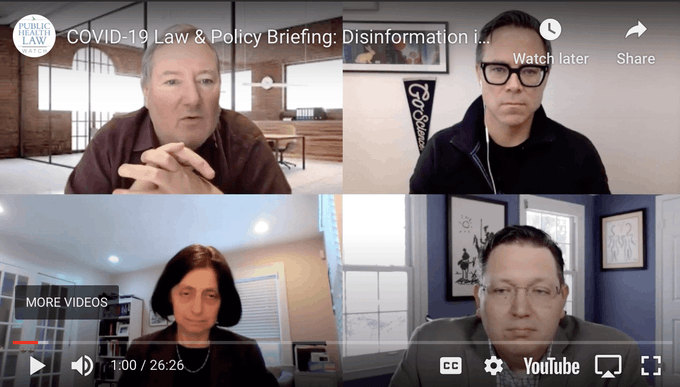
In this briefing, experts seek a return to truth.

Caulfield, "We absolutely need these voices out there. And we’re increasingly asking them to be out there. We need to support them.”
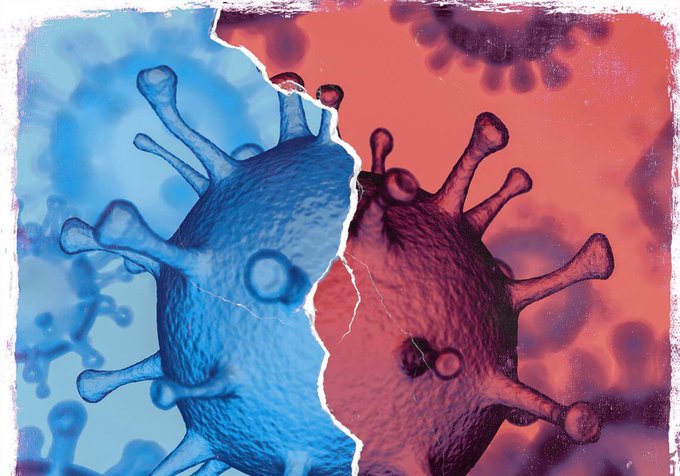
"When a belief becomes linked to personal identity, it can become very resistant to change." #ScienceUpFirst

Disinformation and the Politicization of Public Health

Join us for an important conversation about parents, science, and navigating misinformation during this time of COVID!

"There is almost always a more science-informed path forward."

“The good news is he’s clearly frustrated by conspiracy theories ..." But denouncement must "be crystal clear." #ScienceUpFirst!
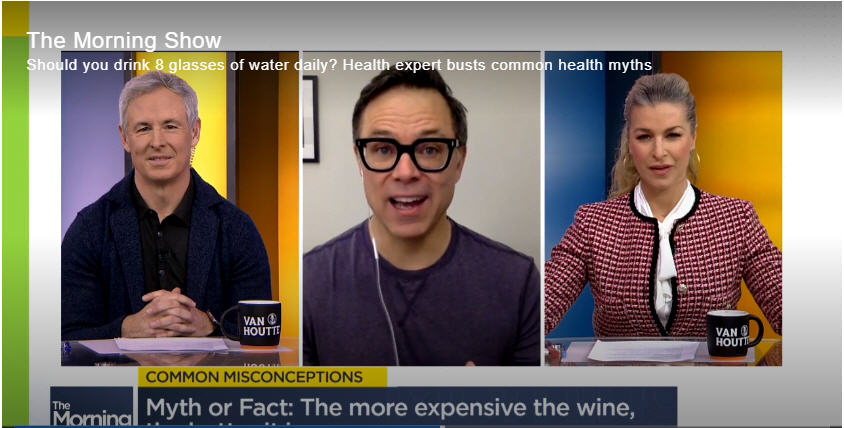
Toilet seat up or down? Nap a good idea? Expensive wine better? 5 second rule? Really fun discussion about 'Relax Dammit' with Carolyn MacKenzie and Jeff McArthur on The Morning Show.
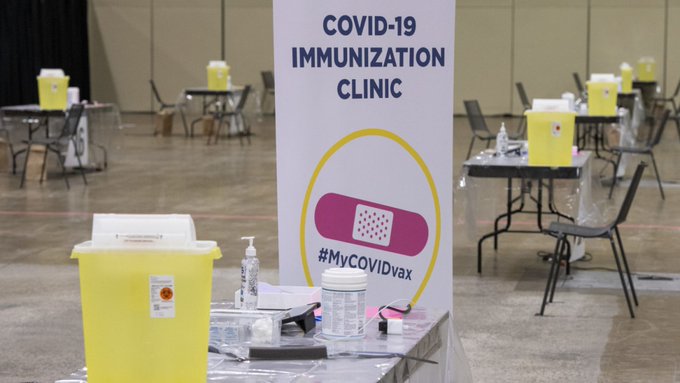
A team of experts plan to battle science disinformation head on. Timothy Caulfield is interviewed in this podcast about a new group aiming to meet misinformation where it lives.

Award winning academic, author, and TV host Timothy Caulfield will take you through the nature of the “infodemic” of misinformation, with COVID-19 as a prime example. Health Resilience in the Age of Fear and Misinformation. Takes place Feb. 18.

Timothy Caulfield, for his efforts debunking the “infodemic” of dangerous, pseudo-medical misinformation about COVID-19.

Timothy Caulfield is keynote speaker for The Canadian Organization of Medical Physicists 12th Annual Winter School Feb 1-4

The Morning Show: Timothy Caulfield busts some of the biggest health myths

The past 12 months have seen a flood of scientific misinformation on social media. Some of it is lies for profit. Some of it is hoaxes for engagement. Some of it is unintentionally wrong—but it all gets attention. Timothy Caulfield explains on The Big Story.

On this episode, Bill talks with author Timothy Caulfield about his new book "Your Day, Your Way - The Fact And Fiction Behind Your Daily Decisions".

RSVP for a chat hosted by Erica Ehm with guests Dr. Christine Chambers, Pr. Timothy Caulfield, and Jack Hourigan! Get the facts to keep your kids safe and healthy during #COVID19! When: Thursday Feb 4, 8pm (ET)

This initiative emerged from conversations between Senator Stan Kutcher of Nova Scotia and Professor Timothy Caulfield, who assembled a growing team of experts.

“There’s a lot of research that shows that what gets shared the most are extreme views, and the middle is lost,” says Timothy Caulfield, research chair of Canada and professor of law and research director of the Health Law Institute at the University of Alberta.

"Anxious, stressed or depressed? Here are ten books to help"

Debunking Works (Let's Get to It!) February 1 @ 7:00pm

Initiative countering online COVID-19 misinformation with facts and research.

Discussing Disinformation in the Pandemic February 4 @ noon
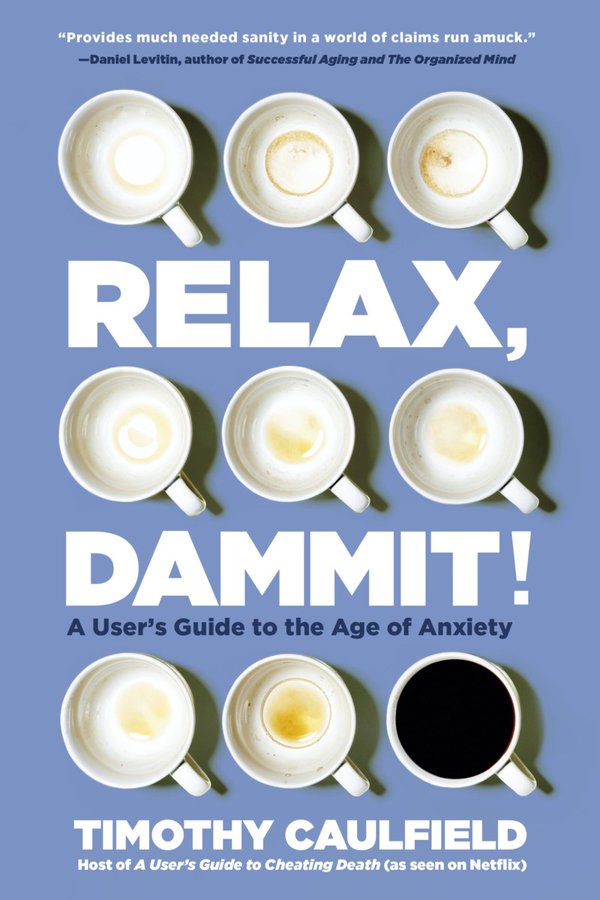
Timothy Caulfield and Mark Henick will touch on themes in Tim's new book and talk about the social forces that play on fear and anxiety...

University of Alberta professor Timothy Caulfield is one of founders of a new online campaign called #ScienceUpFirst, combating misinformation about COVID-19

Rob Breakenridge talks to Timothy Caulfield, co-founder - Science Up First campaign
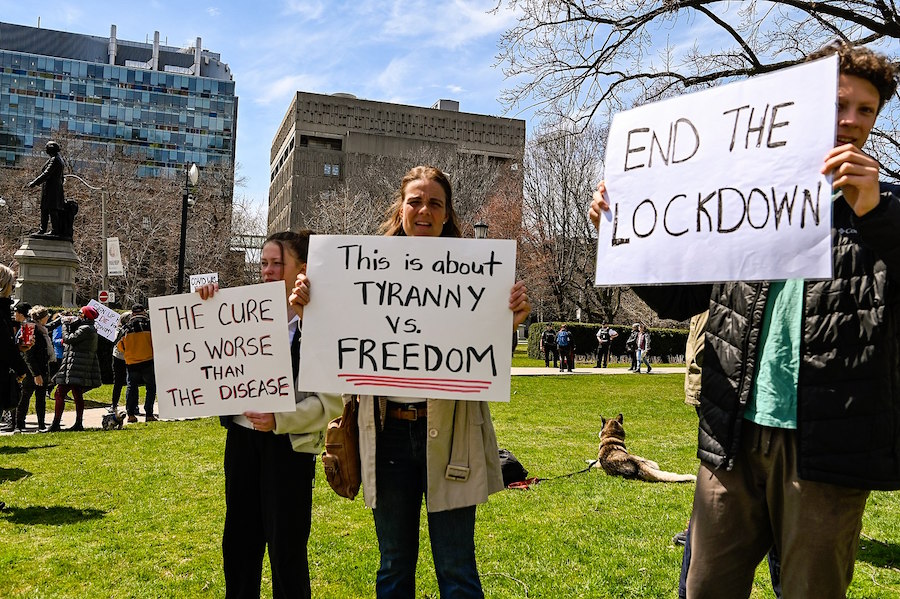
“The information that we have now on the adverse impact of misinformation is overwhelming,” Caulfield says.

Combatting COVID-19 misinformation online. A new coalition wants to put #scienceupfirst in the face of myths and conspiracies.
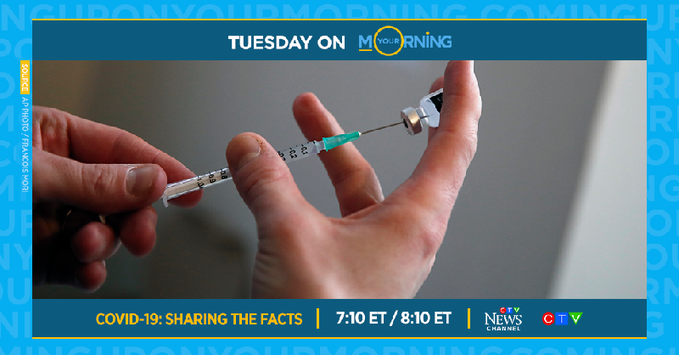
Led by Professor Timothy Caulfield, #ScienceUpFirst will use research to determine the best ways to stop the spread of misinformation during the pandemic.

At 8:40am (9:35 on audio file) Timothy Caulfield has the details on a new initiative "ScienceUpFirst" which aims to help stop the spread of COVID19 misinformation.
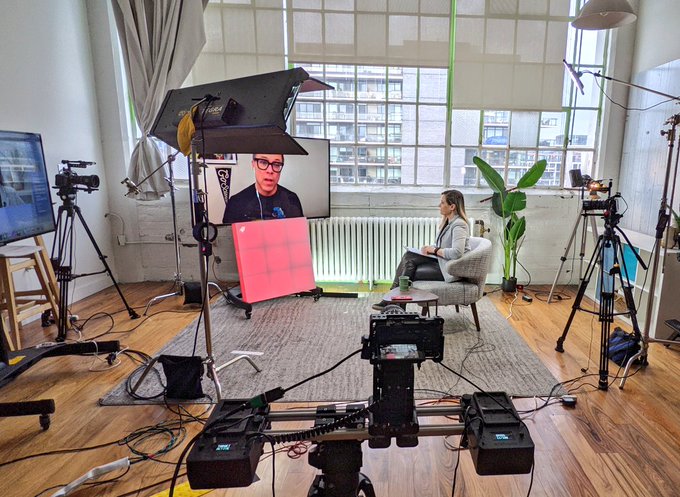
Timothy Caulfield joins me to talk about why misinformation is an imminent threat, especially during COVID-19. We also discuss why so many people believe conspiracy theories and how #ScienceUpFirst wants to change that.

“There’s been misinformation about all kinds of things that you can do to treat COVID with crazy treatments like cow urine and bleach,” said Prof. Timothy Caulfield, Canadian research chair in health law and policy at the University of Alberta.

#ScienceUpFirst is a social media movement developed by a team of independent scientists, health care providers and science communicators to stop the spread of misinformation around COVID-19. Our goal is to put science first and we need your help!
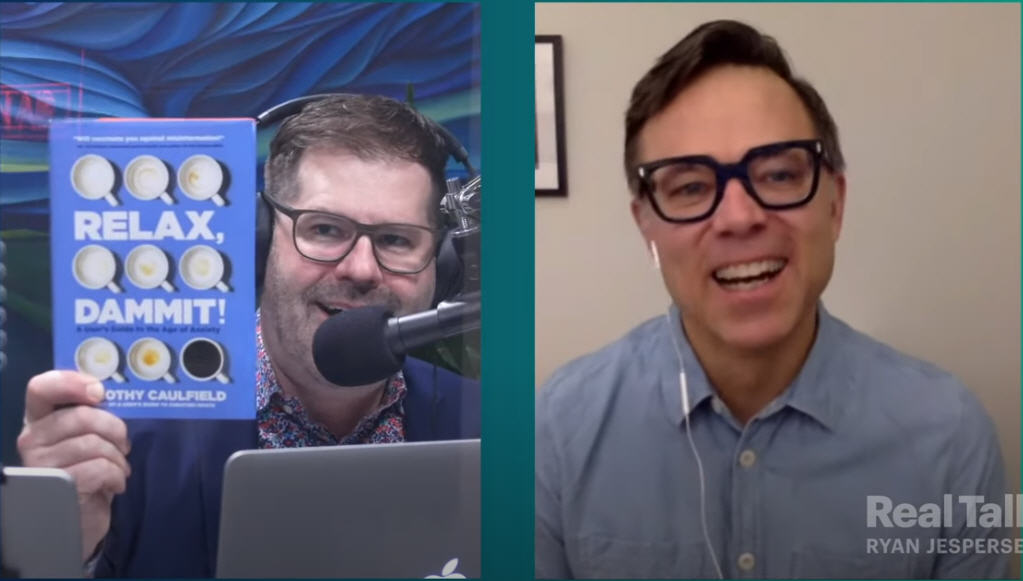
"Be nice! Be humble. Be empathetic. But it can be really hard...people are dying. This is not a little issue."

Caulfield says the abundance of misinformation is one of the biggest problems of the pandemic.

There is a growing body of evidence that tells us that the constant bombardment of information that flows from our phones is stressing us out.

UAlbertaLaw health law prof Timothy Caulfield and Senator Stan Kutcher attack COVID-19 infodemic with #ScienceUpFirst, a new and disruptive campaign to flood social media w facts

Caulfield is spearheading the #ScienceUpFirst movement.

"Misinformation is a dire, imminent threat to the lives of all Canadians and is proven to be one of the factors fueling COVID-19 infections, and dissuading Canadians from getting vaccinated," says Caulfield.

The campaign team says in a news release that it emerged from conversations between Nova Scotia Sen. Stan Kutcher and Timothy Caulfield, Canadian research chair in health law and policy at the University of Alberta.
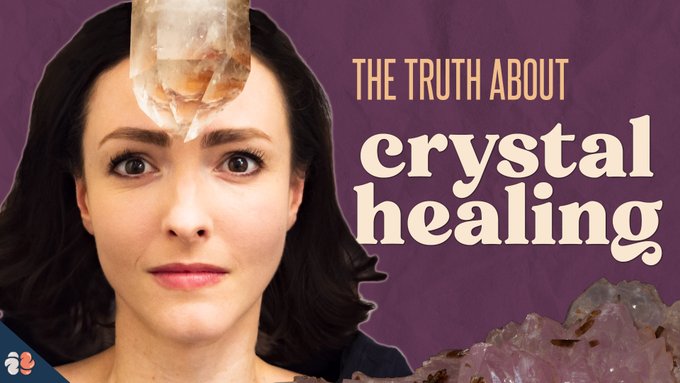
Earlier this month, Vanessa Hill started living in an Airbnb containing 50+ crystals and books on crystal healing. Her endeavour to understand *why* people believe turned into a 16 minute video that, she thinks, "might be the best Brain Craft episode I've ever made." Caulfield notes it's important to talk honestly about the science and not shame people who are interested in this stuff.

Caulfield is spearheading the #ScienceUpFirst movement.

The campaign team says in a news release that it emerged from conversations between Nova Scotia Sen. Stan Kutcher and Timothy Caulfield, Canadian research chair in health law and policy at the University of Alberta.

On Sunday Feb 21 @ 6:30 GMT - Is breakfast the most important meal of the day? Do I really have to floss? Public health expert Timothy Caulfield joins us for a liberating, scientifically informed guide to overcoming the anxiety of modern life.

on MSN Timothy Caulfield talks about his new book YOUR DAY, YOUR WAY where he "examines all the decisions we make throughout the day and determines how many of them are guided by science versus misinformation."

On the blog today, we're highlighting a few of our speakers who offer expertise on living well and developing resilience to help strengthen overall health and wellness.

Relax, Dammit, Caulfield's new book, examines all the decisions we make throughout the day and determines how many of them are guided by science versus misinformation. We spoke to the author about science, stress, and decision-making.

Fighting Misinformation: Debunking Works, If Done Well! Speaker: Timothy Caulfield Today! January 21, 2021 @ 4pm

While "healthfully is important, it's dangerous to give people false hope that certain supplements will ward off the virus".
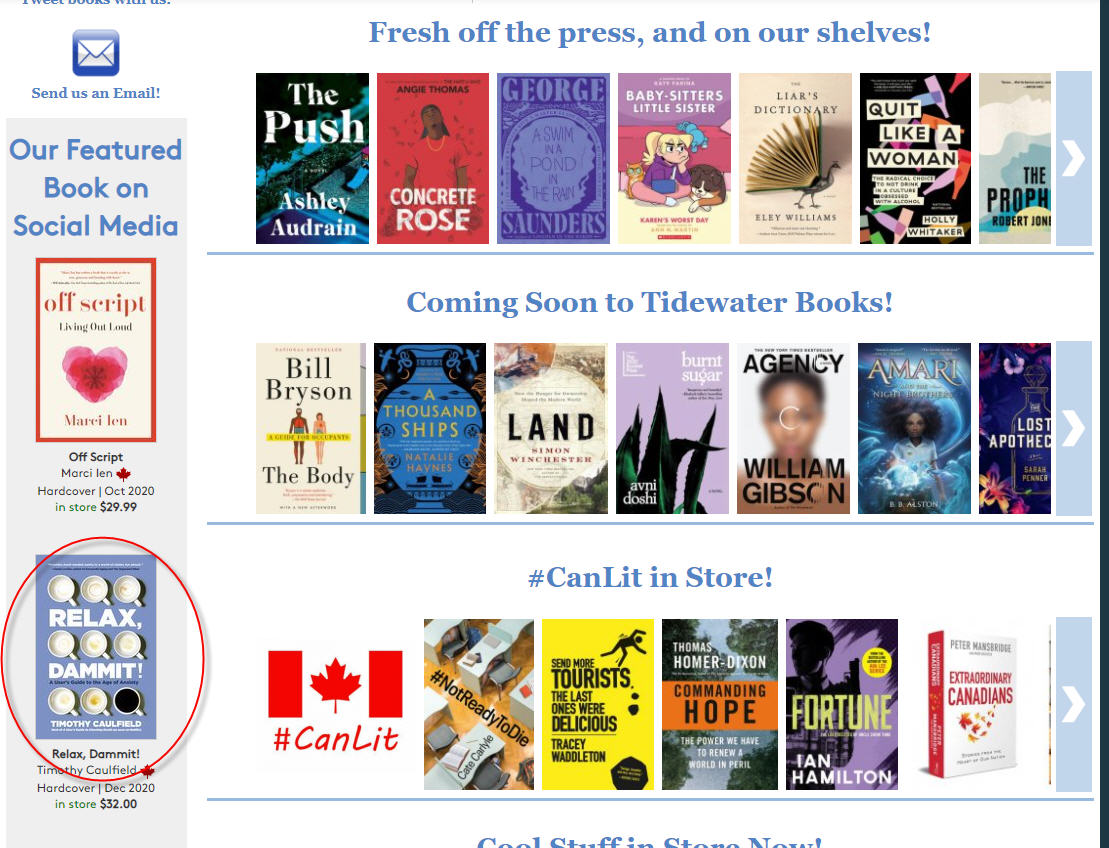
Just 'Relax, Dammit!: A User's Guide to the Age of Anxiety' is the #CanLit in-store we need today! lol @PenguinCanada #IReadCanadian #ShopSmall #BuyLocal Open/Curbside pick-up/In-town delivery/We ship

Caulfield, “While we all realized that #misinformation was going to be a big issue, we should have taken it even more seriously from the very start—even stuff that seemed absurd.”

Featuring Timothy Caulfield, award winning author, professor of health law & science policy, speaker and TV host. Takes place Feb. 18.

Planta: "It’s a fascinating book, as well as sometimes worrying. And it’s entertaining throughout."

On Feb 2nd Rotman Professor Julie McCarthy will speak with Timothy Caulfield about his new book Relax, Dammit!: A User's Guide to the Age of Anxiety"
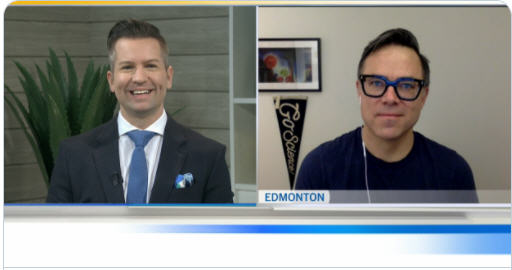
Is Blue Monday really the saddest day of the year? Timothy Caulfield gives us the facts.
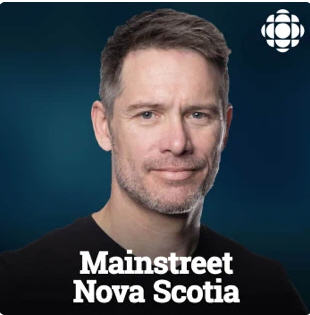
Timothy Caulfield talking with Jeff Douglas on @Mainstreethfx about this complex issue.
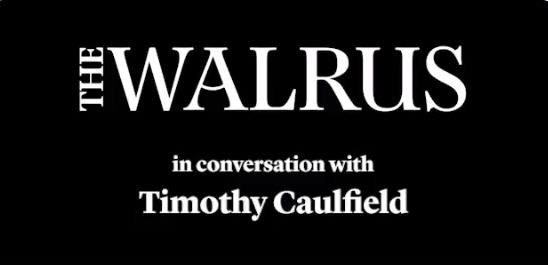
Did you know research shows that 80% of people check their phones within five minutes of waking up? Timothy Caulfield looks at the science behind this and other decisions we make every day.

"...it is one of the most practical science popularization books I have read..." Or, in Romanian: "...e una dintre cele mai practice cărți de popularizare a științei din cîte am citit..."

Blake Murdoch, Research Associate with the HLI is featured.

Demolished records for the best-attended webinar ever from UAlberta's Alumni Relations. The fascinating hour-long event is available to hear until February 11.

Science communicators discuss the issue of misinformation on social media

January 16 Timothy Caulfield presents Keynote "The Weird and the Wonderful of COVID-19"

“There is so much misinformation that is out there.”

Edmonton author Timothy Caulfield wants readers to consider science in everyday life decisions, from anxiety-inducing choices around toothpaste and washing hands to screen time, sleep and sex.
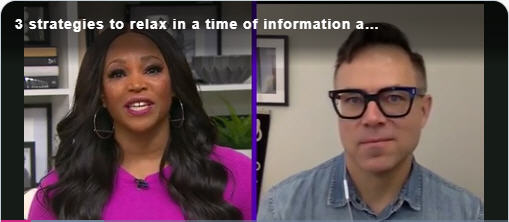
Timothy Caulfield chats with Tracy Moore on Cityline.
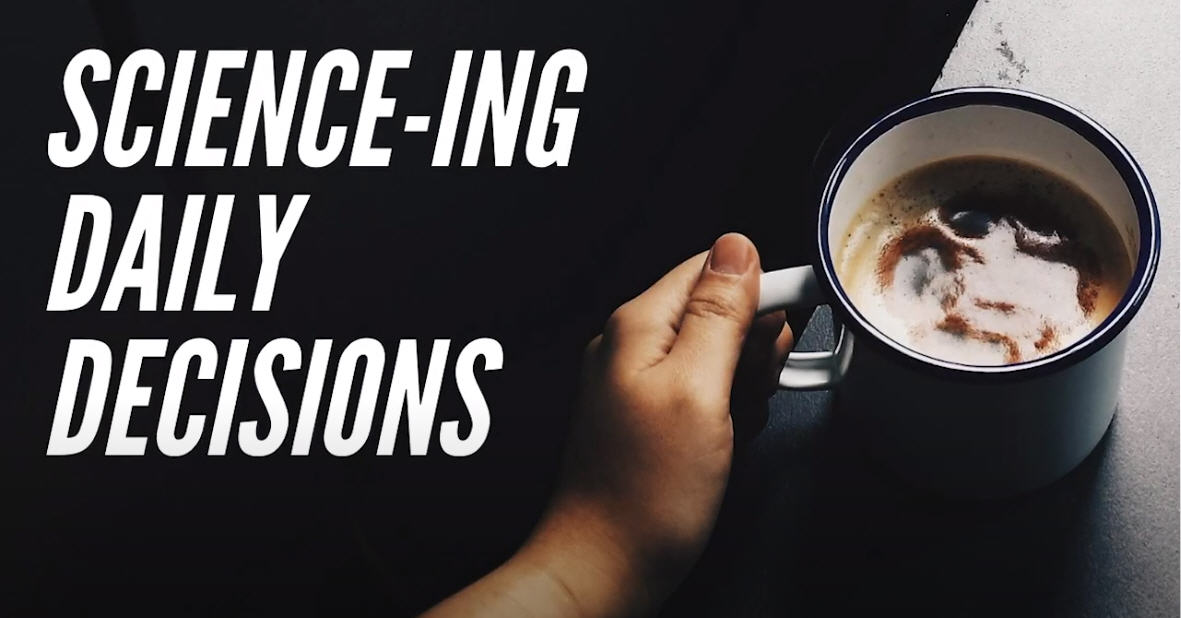
Is coffee good for you, bad for you, or what? University of Alberta health law and policy expert Timothy Caulfield weighs in based on the evidence

TODAY Health law and policy professor Timothy Caulfield takes readers through an average day to show how evidence can allay our fears and inform our decisions.

Most things, it turns out. But science rarely shapes our decision making the way fear does

The pressure on researchers to produce results with social and economic impact could be driving hype in biomedical research, says Timothy Caulfield, who studies research ethics and public representations of science at the University of Alberta, Canada.
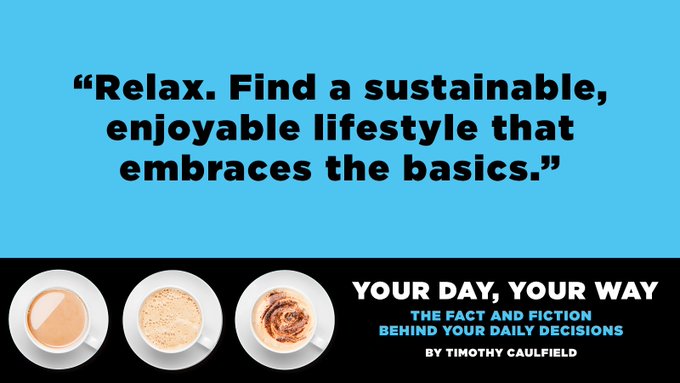
"Your Day, Your Way!" "...the book is a friendly, funny, fact-based guide to changing how you make decisions..."

Timothy Caulfield notes evidence shows a correlation between the pandemic and misinformation

Timothy Caulfield warns COVID-19 misinformation is having direct impact on vaccination hesitancy – Nov 18, 2020

Timothy Caulfield joined Arlene Bynon to discuss how years of unaddressed misinformation online was a factor in the chaos in Washington and the storming of the US Capitol

January 13 Live 9am EST
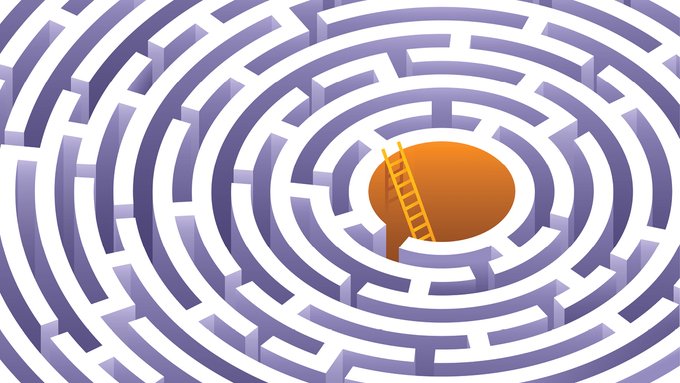
With his new book, Relax, Dammit!, the health and science myth buster wants to make our many daily decisions—around food, sex, coffee and kids—a little less scary and a lot more sane.

Relax, Dammit: A user’s Guide to the Age of Anxiety, Timothy Caulfield
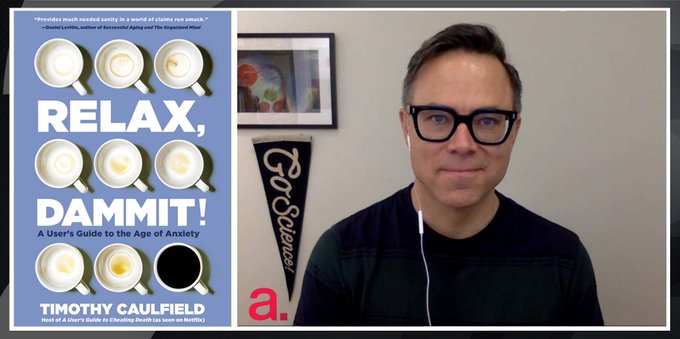
Everything you thought you knew about what brings stress into your life... you may not actually know.
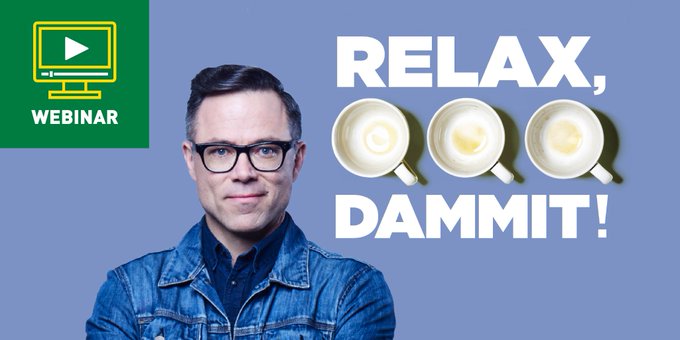
January 12, 2021 7:00 PM - 8:00 PM

Health law expert will separate science-based health claims from phony ‘truisms’ in webinar on January 12.

Talking COVID-19, Vaccines and Public Health Policy. Tune in around 10:30 mark.

In new book, Relax!, Caulfield notes "the good stuff is drowned out by a torrent of fake news, conspiracy theories & celebrity quacks, so we overthink even the smallest decisions."

"Caulfield goes beyond clichés by taking us through a hypothetical day and the dozens of decisions we make..."

A review of Timothy Caulfield’s new book, Your Day, Your Way.
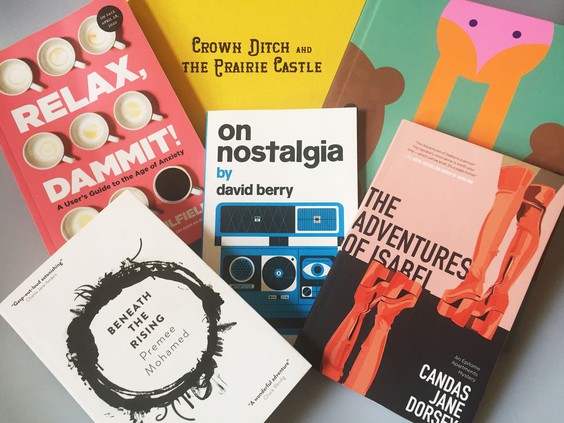
Say what you will about 2020, it was a captivating year for books by local authors — even if, like Timothy Caulfield’s myth-busting Relax, Dammit!: A Field Guide to the Age of Anxiety — one’s release date got bumped forward a month or six.

Timothy Caulfield poses for a photo at his Edmonton home, Wednesday April 1, 2020. Caufield received over $300,000 in grants to track misinformation and conspiracy theories surrounding COVID-19. PHOTO BY DAVID BLOOM /Postmedia

The Science of Celebrity or is Gwyneth Paltrow Wrong About Everything? by Timothy Caulfield
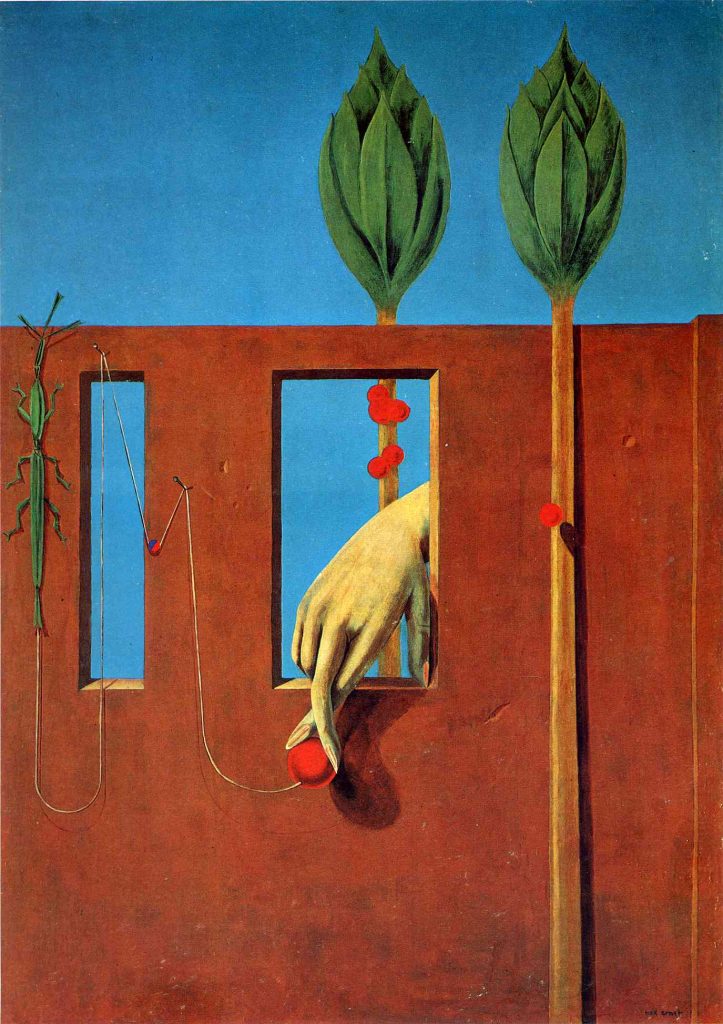
Timothy Caulfield has collaborated on two studies that document the exploitation of this wish. An analysis of internet content about immune boosting strategies found it was quite common to suggest that such strategies could actually help one avoid COVID-19. In another analysis, he and his colleagues looked at immune boosting posts on Instagram. They found that all of them were promoting commercial interests.

Timothy Caulfield's 'Relax: A User's Guide to Life in the Age of Anxiety'
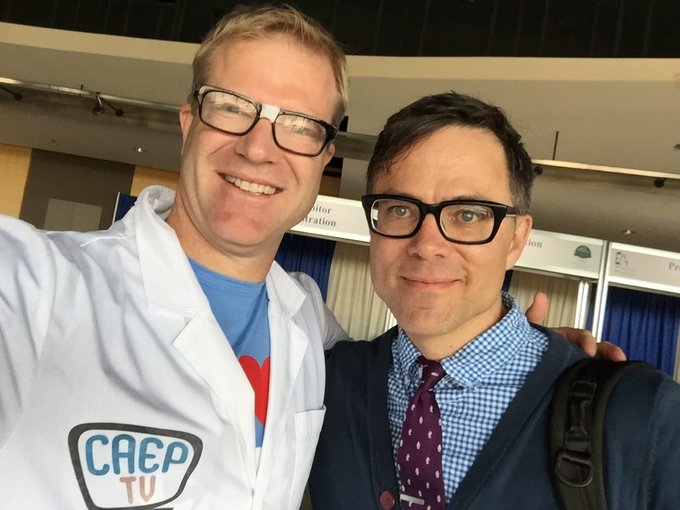
December 21, 2020

An Alberta government ad is meant to show how easily COVID can be transmitted. Timothy Caulfield talks with Adrienne Pan.

Tim came on the SGEM and discussed his new book called Relax, Dammit! A User’s Guide to the Age of Anxiety. Listen to the podcast to hear us discuss his new book, skepticism, and science communication in general.
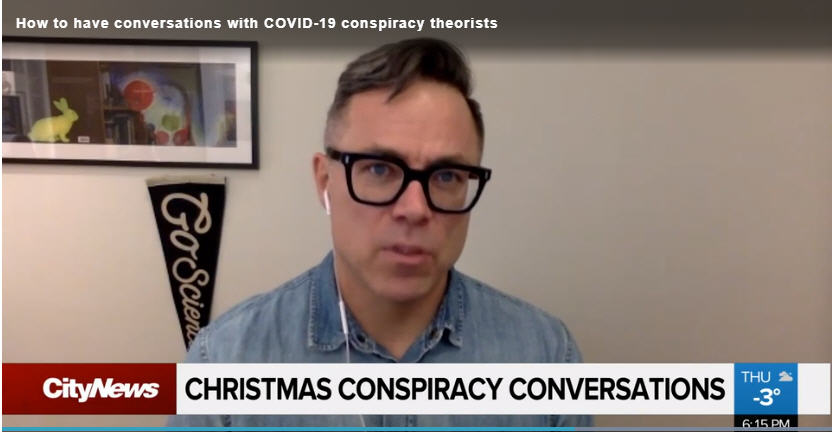
Timothy Caulfield with the University of Alberta said protests defying COVID-19 restrictions have been a common scene in the province but conspiracy theorists are everywhere.

Once a person feels part of a community or a movement, the adherence to a science-free, health misinformation position may begin to feel brave.

"I’ve been fascinated with misinformation and the way science and research are twisted in pop culture. I wanted to get a sense of how those forces impacted our daily decisions."

5. A myth-busting expert battled the ‘infodemic’. Health law and policy expert Timothy Caulfield is well known for his unceasing efforts to counter health misinformation and pseudoscientific claims for purported miracle cures. This year he received new funding for a project to assess how false cures and conspiracy theories spread online, and recommend ways to contain potentially harmful bunk—helping people think before they click.

Featuring ‘Your Day, Your Way,’ by Timothy Caulfield
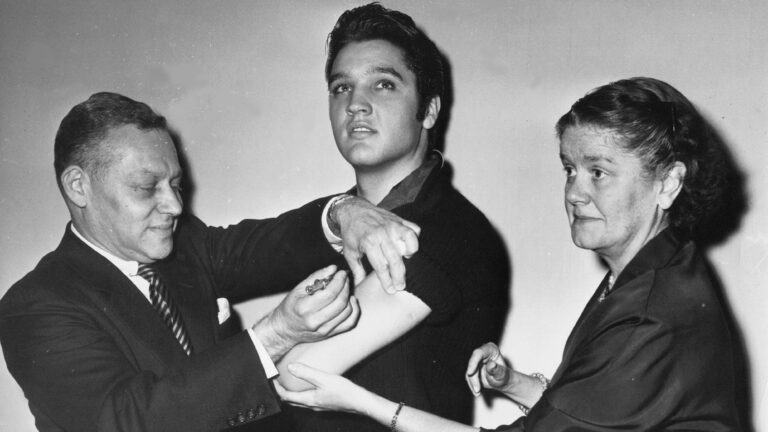
“I think it’s going to be harder to have an Elvis Presley moment with Covid,” said Timothy Caulfield, a health policy professor at the University of Alberta in Canada. Caulfield suggested The Rock, Tom Hanks, or Beyoncé might make good ambassadors because they are beloved and hold a neutral place in pop culture.

Timothy Caulfield on overcoming the anxiety of everyday life. Interview starts at 31:40

“The amount of misinformation right now is simply unbelievable,” says Timothy Caulfield, Canada’s pre-eminent bad science debunker.

Caulfield says that thanks in part to anti-vaccine groups and influencers, “there’s absolutely no doubt misinformation is having an impact on public discourse about vaccines and on the growth of vaccination hesitancy.”

Timothy Caulfield unpacks the cause of our everyday anxiety, and what we can do about it

Timothy Caulfield amoung others discuss the COVID-19 vaccination.

Charles Adler talks with Timothy Caulfield on how to relax during the pandemic and everyday life.

Timothy Caulfied speaks with Stephen Quinn about the best way to get people who are unsure -- not against -- vaccination to take the needle.

“The public, for the very first time, is watching the science unfold." Timothy Caulfield

Timothy Caulfied, the Canada Research Chair in health law and policy at the University of Alberta who has spoken extensively about misinformation in medicine, said such a policy creates “challenging communications issues, even if the policy makes sense.”

Frank Morano talks with Timothy Caulfield on vaccine hesitancy starting at 25:18 on December 11 show.

“The public, for the very first time, is watching the science unfold,” said Timothy Caulfield, Canada Research Chair in Health Law and Policy. “Science is messy. It’s hard. It’s slow. It’s a real challenge…and the public is watching that.”

Talks with Timothy Caulfield on his new book and vaccine hesitancy
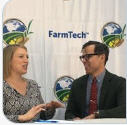
If you’re feeling rather exhausted, anxious, and a little overwhelmed, author Timothy Caulfield might know why.

On December 17, Timothy Caulfield on the Infodemic: Debunking Works, So Let’s Get to It!

Global News Weekend host Aalia Adam speaks with Health Policy Expert Timothy Caulfield about his new book ‘Relax Dammit: A User’s Guide to the Age of Anxiety.’

We talk to researcher and author Tim Caulfield about his new book "Relax, Dammit! A User's Guide to the Age of Anxiety."

"Battling this infodemic in the time of COVID"

This fall, Timothy Caulfield, Canadian health law and science professor and best-selling author, addressed America’s family physicians about the rise in misinformation and the need to “move the needle” in slowing its spread.

Nous sommes ravis d'avoir Timothy Caulfield comme orateurs de marque aujourd'hui.
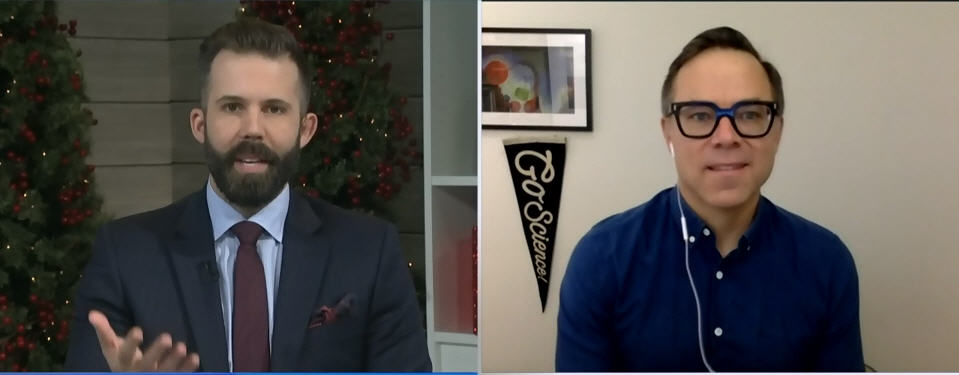
Really enjoyed this chat on CTV News Edmonton! Talked about my new book (#RelaxDammit!) & vaccine misinformation! Misinformation & twisted facts influence decisions big & small. #CriticalThinking so key!

University of Alberta health law professor Timothy Caulfield says many of the decisions we believe are healthy and safe just simply aren't. He joined Erin Chalmers on the morning news to talk about his new book "Relax, Dammit: A User's Guide to the Age of Anxiety."

The year 2020 has provided us with many things to rant about. Infuriating conspiracy theories. Tone-deaf responses to social justice issues. The U.S. presidential election. A pandemic. Tiger King’s Carole Baskin. (Seriously, she’s on Dancing with the Stars?)

Tune in around the 12:10 mark for Professor Caulfield.

Timothy Caulfield’s ‘Relax, Dammit!’ shares research-based insight on how to lead a healthier life, and make better decisions.

Webinar December 17, 2020 click here to register

“Remember that it’s very difficult to change (people’s) minds. Focus your conversations on what the consensus is, what the science says, and what we can do as a community,” said Timothy Caulfield, the Canada Research Chair in health law and policy at the University of Alberta.

Tracy Brunet and Timothy Caulfield chat about his new book "Relax Dammit! A User's Guide to the Age of Anxiety"

The #ISNWCN plenary lecturers receive worldwide acclaim for their influence in health and medical research. Highly-cited authors, a Nobel-prize winner, and an award-winning documentary TV show host (Timothy Caulfield). These experts will offer insights into innovative and thought-provoking topics.
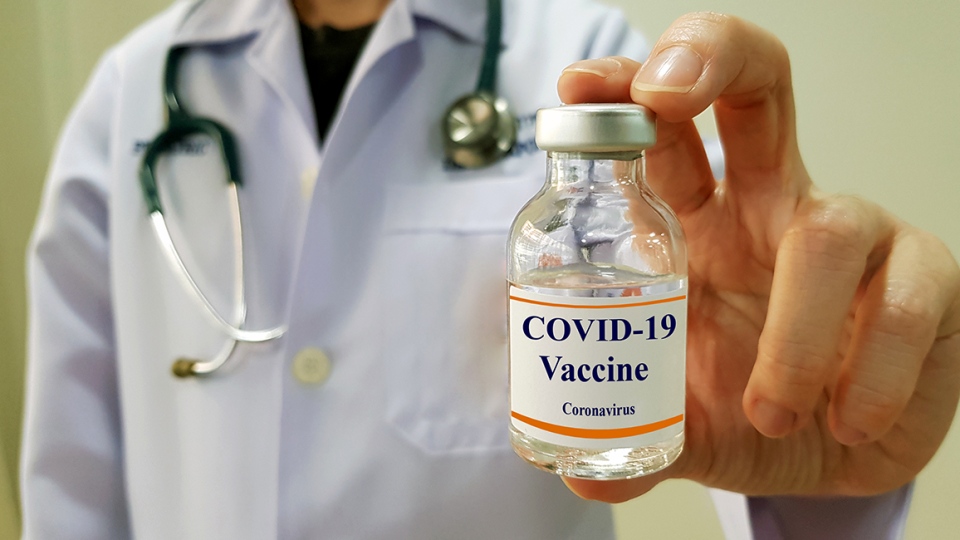
“The optimistic side of me believes that once this starts to roll out, once people see the efficacy, that more and more Albertans are going to get vaccinated,” said Timothy Caulfield, a professor of health law and science policy at the University of Alberta.

Relax, Dammit! by Timothy Caulfield
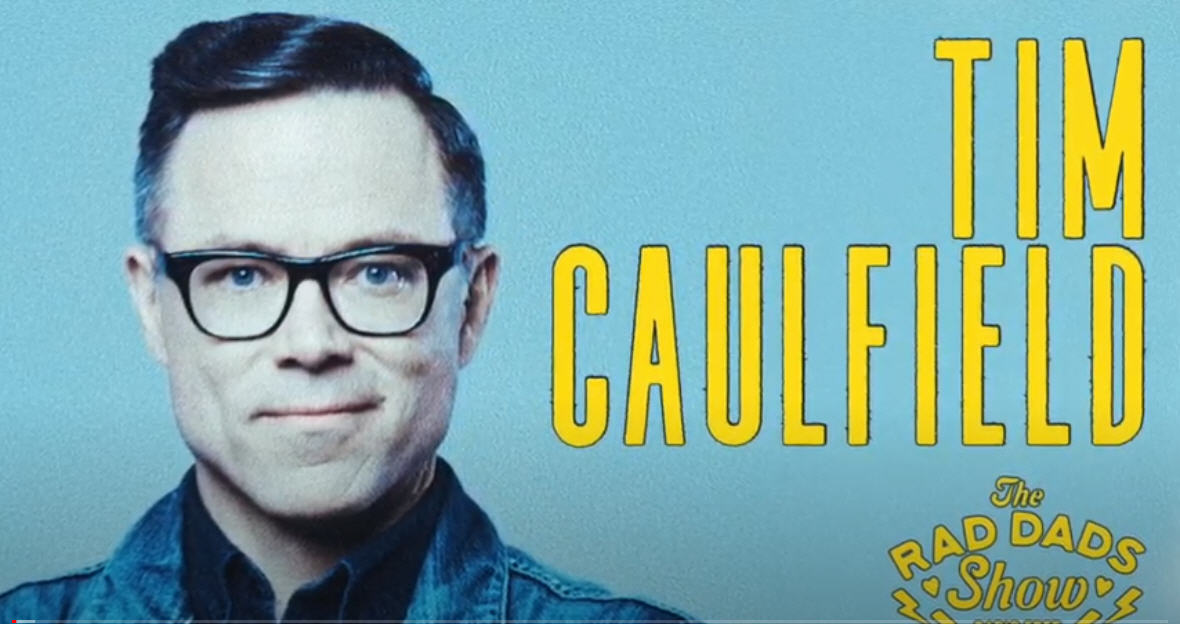
Tim Caulfield is a Health Law expert, pseudoscience debunker, award-winning author, TV show host, and all around rad dad. Tim joins us just as he is releasing his newest book, "Relax, Dammit!" to chat about fatherhood, failed attempts at starting a family band, going to punk shows with your kids, and of course the facts and fictions about daily decision-making as a parent.

The Fact and Fiction Behind Your Daily Decisions by Timothy Caulfield.

Is global trust in science in free-fall? Timothy Caulfield has looked into this question. He’s the Canada Research Chair in Health Law and Policy at the University of Alberta.

It's age of misinformation, fearmongering & twisted facts. Does this reality impact your daily decisions? Yep.

The Faculty of Law stands in unqualified solidarity with our colleague Professor Ogbogu.
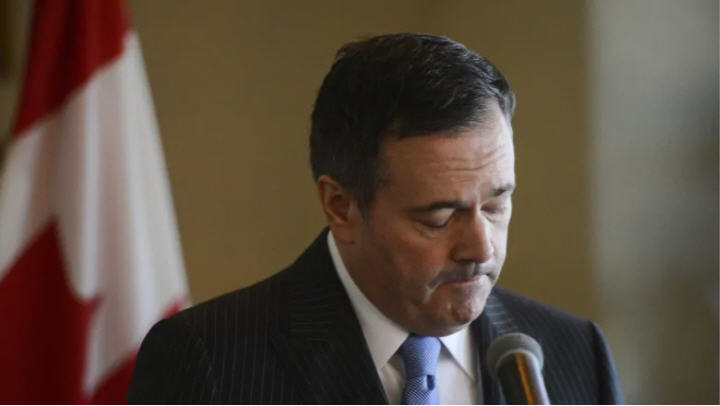
Timothy Caulfield, an expert in health law at the University of Alberta, says the province needs a co-ordinated and transparent approach when making policy around the coronavirus.
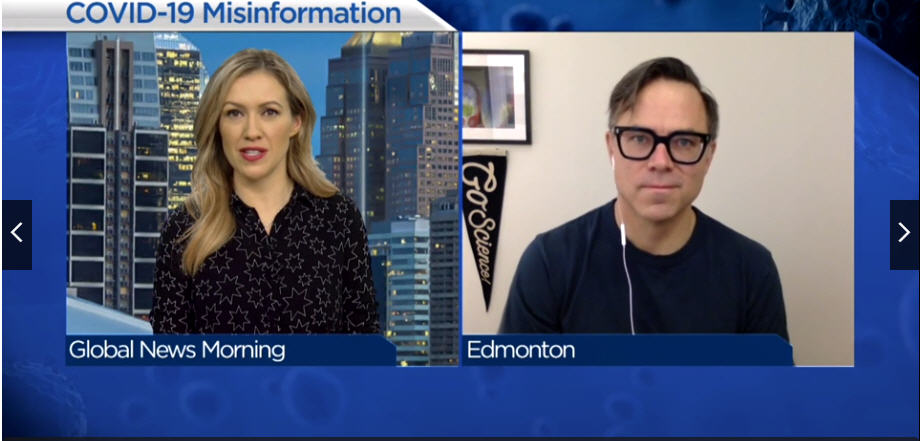
Canada Research Chair in Health Law and Policy Timothy Caulfield joins Global News Morning Calgary via Skype to discuss COVID-19 misinformation in Alberta.

University of Alberta's Tim Caulfield says the province needs a transparent approach to pandemic policy.

Natasha Fatah talks with Timothy Caulfield, Health Law Professor, University of Alberta

Recipients will address Class of 2020 at today’s virtual convocation ceremonies. Timothy Caulfield

Timothy Caulfield received Honorary Degree from University of Calgary

By Timothy Caulfield, Tania Bubela, Jonathan Kimmelman and Vardit Ravitsky

Join RCIScience for a special evening with Professor Timothy Caulfield, winner of this year’s Fleming Medal for Excellence in Science Communication! You might recognize Professor Caulfield from his popular TV series A User’s Guide to Cheating Death, his numerous talks and appearances on television, radio and podcasts, or his many books, including RCIScience Fall Reads pick The Science of Celebrity...or Is Gwyneth Paltrow Wrong About Everything?

Timothy Caulfield: Goop Buster
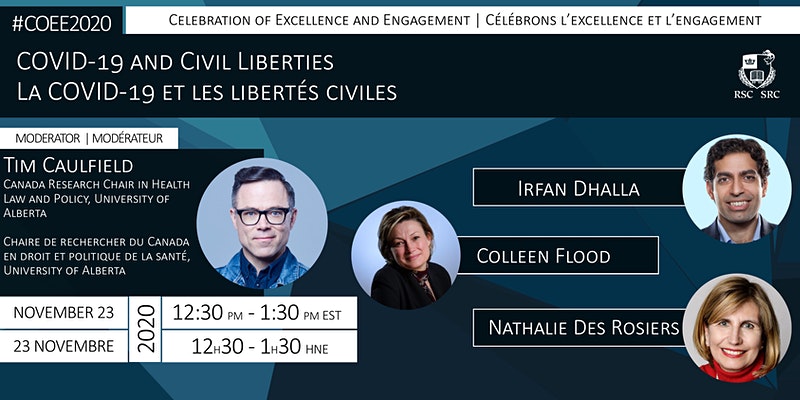
Around the world, COVID-19 mitigation strategies have impacted civil liberties. How have these been manifested, and what lessons are we learning? Professor Tim Caulfield's research focuses on health and science policy on a range of topics including stem cell research, genetics, public health, vaccination and public representations of science and health issues. November 23 Purchase tickets here

Health law professor Timothy Caulfield says there is insufficient data on the effects of a COVID-19 vaccine, something that would need to be bolstered before beginning to consider whether a vaccine should be made mandatory

Professor of health law Timothy Caulfield is known for debunking pseudoscience and has been working to thwart misinformation about COVID-19. He joins CBC Edmonton host Nancy Carlson to take your questions about misinformation - how it starts, why it spreads, and what you can do about it.

November 20, 2020 8:30am Rise of Science Misinformation - Impacts on the lives of Canadians

In our current environment the rampant spread of bad science, conspiracy theories, fake cures, and lies have led to confusion, distraction, and even physical harm. Join, U of A Professor, Timothy Caulfield as he helps you understand how all this misinformation has spread so quickly and offers tools you can use to spot it and help put a stop to it. November 26 7-8pm register here
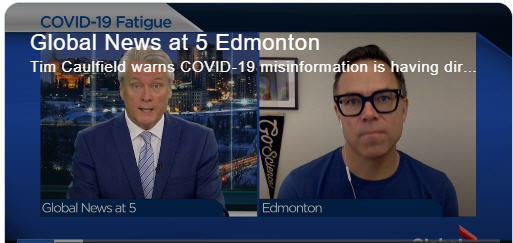
Despite a grim week in Alberta with rising COVID-19 active cases and death toll, University of Alberta law professor and Canada research chair in health law and policy Timothy Caulfield says recent research show the adverse impact misinformation is having on many people.

Matthew Higgins talks to Professor Ubaka Ogbogu on the COVID-19 vaccine roll out.

Register here November 25 1:20 PM: Infodemic: Is Misinformation Killing Us? Cow urine, bleach, and cocaine have all been recommended as COVID 19 cures—all nonsense. Misinformation is absolutely everywhere. The coronavirus isn’t just a pandemic, it is an infodemic. It’s caused physical harm and financial loss; added confusion and distraction to an already chaotic environment; and made it even more difficult to implement the needed health policy initiatives. How does this misinformation spread? Why do people believe it? What can we do as individuals and a community to fight back? Introduction by Grain Millers. Presented by Professor Timothy Caulfield, Professor of Health Law and Science Policy at University of Alberta

WEEKNIGHTS NOV. 13 - DEC, 1, 2020 | 10PM ET / 7 PT SAT. & SUN., NOV. 21 - DEC. 27, 2020 | MIDNIGHT ET / 9PM PT The anti-aging industry is worth almost $10 billion a year. People want to live forever, and they want to look good while doing it. But how much of it actually works? And is any of it harmful? It’s becoming increasingly difficult to separate the fact from fiction as magazines, television, and countless internet articles tout new therapies, diets and health trends as the secret behind a healthier, happier, and longer life. “A User’s Guide to Cheating Death” is a documentary series that casts light on increasingly controversial procedures, diets and revived ancient therapies that are being sought by people desperate to dramatically alter their bodies or radically improve their health, and the booming industries that are more than happy to accept their business.

Join RCIScience for a special evening with Professor Timothy Caulfield, winner of this year’s Fleming Medal for Excellence in Science Communication! Tue, November 24, 2020 5:00 PM – 6:30 PM MST

Timothy Caulfield will be presenting @ 1:03 pm – How Best to Battle the Infodemic
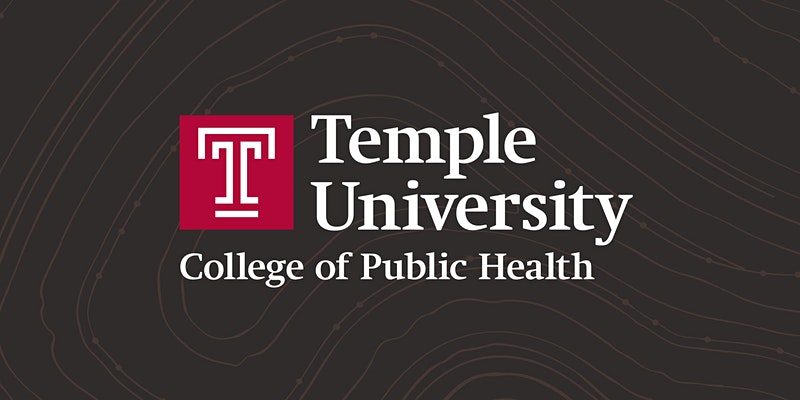
Timothy Caulfield will talk about misinformation and how to debunk it.

Always exciting to see the final product. Long journey. Huge thanks to the many, many involved (interviewees, colleagues, family, editors, agents, science, my relaxed cats, etc!) On sale Dec 1! https://amazon.ca/Relax-Dammit-Users-Guide-Anxiety/dp/0735236321

Canadians shouldn’t be smug. We’re not as polarized but we’re becoming more so, says University of Alberta professor of health law and policy Timothy Caulfield.

A conversation between Dr. Timothy Caulfield and Kelli Buckreus about what research participation can look like and why it's so important to get involved in health research. Stay tuned for more videos in the "Understanding Health Research" series by subscribing to our channel!

“Claiming that a paper is ‘unorthodox’ is not a license to misrepresent science in support of an unproven theory,” said Timothy Caulfield, Canada Research Chair in Health Law and Policy at the University of Alberta. “Publishing something that gets stuff wrong and misrepresents science can be a waste of resources and can confuse the academic literature. And, of course, it can be used to legitimize pseudoscience.”

Timothy Caulfield is the keynote speaker for the event, presenting: Battling the Infodemic: Misinformation in the Era of COVID-19
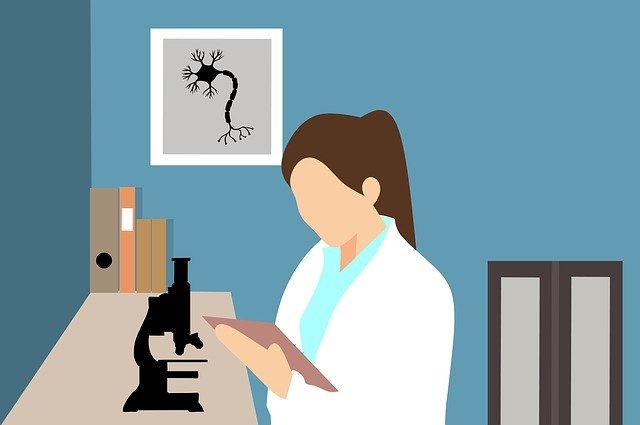
La formation vise notamment à apprendre à différencier les statistiques sensationnalistes et les véritables données scientifiques. Timothy Caulfield, titulaire d’une chaire de recherche du Canada en droit et en politique de la santé et vedette du documentaire de Netflix intitulé A User’s Guide to Cheating Death, sera l’un des conférenciers invités dans le cadre du cours.

RCIScience is delighted to recognize Professor Timothy Caulfield with the 2020 Fleming Medal for Excellence in Science Communication.

With the US election less than a week away, every decided vote counts. But it appear there's one voter on the fence. Rapper 50 Cent UN-endorsed Donald Trump - less than a week after throwing his support behind the President. But does his change of heart matter? Timothy Caulfield is a law professor with the University of Alberta and he shared his thoughts on the show with Gill Deacon.

Associate Professor Ubaka Ogbogu, a health law scholar at the University of Alberta Faculties of Law and Pharmacy and Pharmaceutical Sciences, has co-authored a new expert panel report on the issues surrounding somatic gene therapies in Canada.

Livestream of Timothy's new book. February 2 at 5 pm

February 2, 2021 talk 5pm

Timothy Caulfield, Canada Research Chair in health law and policy, notes that it’s not a binary choice between the Barrington perspective and full lockdown, and that governments are striving to balance public health with economic recovery.

COVID science is being both done and circulated at a furious pace. While it is inspiring to see the research community responding so vigorously to the pandemic crisis, all this activity has also created a churning sea of bad data, conflicting results, and exaggerated headlines. With representations of science becoming increasingly polarized, twisted and hyped, there is growing concern that the relevant science is being represented to the public in a manner that may cause confusion, inappropriate expectations, and the erosion of public trust. Here we explore some of the key issues associated with the representations of science in the context of the COVID-19 pandemic. Many of these issues are not new. But the COVID-19 pandemic has placed a spotlight on the biomedical research process and amplified the adverse ramifications of poor public communication. We need to do better. As such, we conclude with ten recommendations aimed at key actors involved in the communication of COVID-19 science, including government, funders, universities, publishers, media and the research communities.

"There are many clinics throughout the world, including in the United States, that continue to market unproven stem cell therapies," said Timothy Caulfield, a professor of law and public health at the University of Alberta in Canada. "They leverage the excitement that has surrounded this area to push products that aren't supported by good science. Indeed, there still aren't many stem cell therapies that are clearly ready for broad clinical application."

At the time of the HPARB appeal, Timothy Caulfield, Canada Research Chair in Health Law and Policy at the University of Alberta, told the Globe and Mail that the HPARB and CPSO decisions cast doubt on the idea that health profession regulatory bodies were adequately protecting patients. “If they can’t act in this kind of situation,” he asked, “what is their role?”
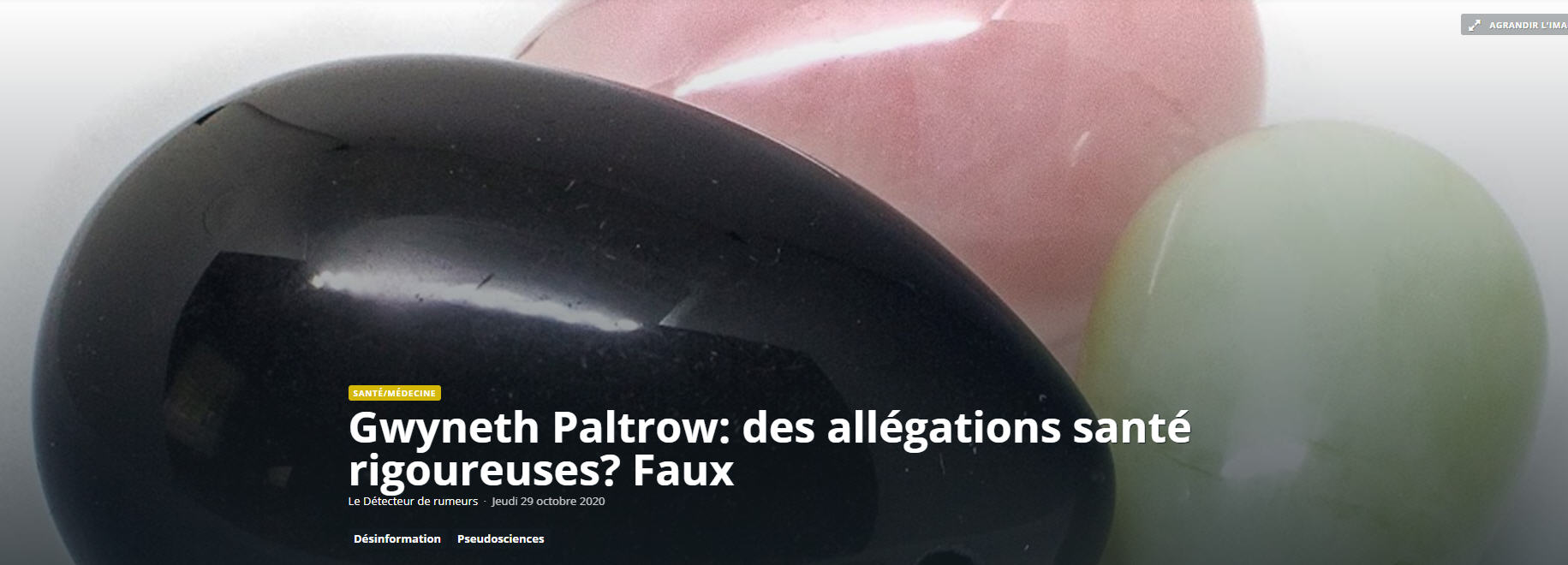
Le directeur de recherche du Health Law and Science Policy Group de l’Université de l’Alberta, Timothy Caulfield, est l’auteur d’un livre sur l’impact négatif qu’ont sur la santé publique des traitements douteux proposés par les célébrités, intitulé Is Gwyneth Paltrow Wrong About Everything ?, paru en 2015. Il y raconte avoir essayé une des cures de détox proposées. Le produit lui a permis de perdre quelques kilos, mais sa flore intestinale n’a pas changé.
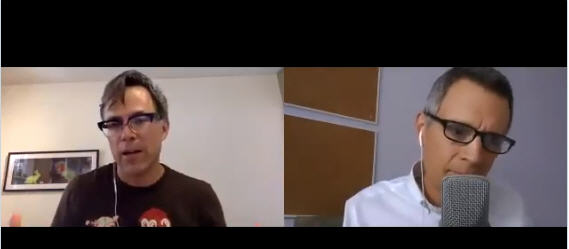
Professor & author of ‘Is #GwynethPaltrow Wrong About Everything?’ Timothy Caulfield joins Mark Sutcliffe to talk about everything from punk rock & debunking celebrity pseudoscience, to healthy lifestyle hacks & fighting #fakenews.

A conversation between Prof. Timothy Caulfield and Heidi Bates about why science and health recommendations change over time.

One of the many ways the media captures our attention and steers us away from hard facts is with testimonials. Compelling stories about individual peoples’ experiences can pass for evidence, overwhelming our scientific and critical thinking. What we should really be looking at, says Prof. Caulfield, are good, randomized clinical trials. “Observational studies mix correlation with causation all the time,” says Prof. Caulfield. “In health, a lot of the research that get headlines are observational studies. They can be useful and give you a sense of what is going on, but an observational study isn’t really strong data.”

PCMA host's "Infodemic" session with Timothy Caulfield

Timothy Caulfield delivers Keynote "KEYNOTE: Fighting for Science in the Age of Misinformation "

Timothy Caulfield is featured in the University of Alberta's free online course — how to tell the difference between sound scientific studies and pseudoscience.

Thursday October 22, 2020 | 5pm PST | Via Zoom

It’s not like Timothy Caulfield didn’t already have plenty of material to use in making the case that science ― real science ― is under attack. The Canadian health law and science professor, bestselling author, and unlikely Netflix star ticked off a list of mind-boggling examples during his Oct. 14 opening main-stage session at this year’s virtual Family Medicine Experience.

Timothy Caulfield, the Canada Research Chair in Health Law and Policy at the University of Alberta, said adherence to social distancing and mask-wearing recommendations is becoming harder due to general complacency, COVID fatigue, and general misinformation.
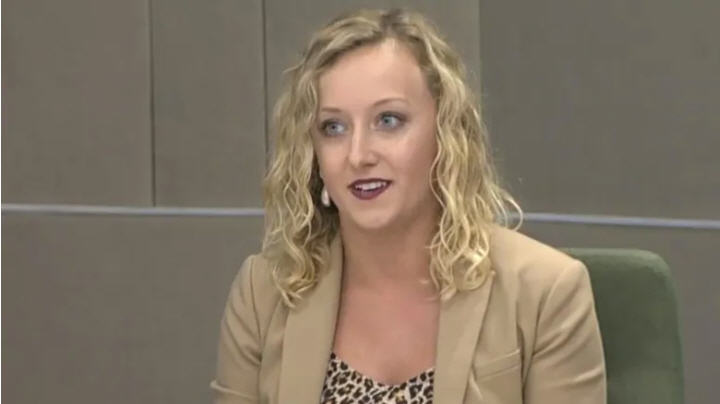
"It's a pretty hardcore conspiracy theory," said Timothy Caulfield, a Canada Research Chair in health law and policy at the University of Alberta. "It's extremely disappointing to have government officials, elected officials, helping spread this disinformation."

As planned, our keynote speaker will be Timothy Caulfield! Mr. Caulfield is a Professor of Health Law & Science Policy, is the author of “Is Gwyneth Paltrow Wrong About Everything?” and is the host and co-producer of the award-winning documentary TV show, “A User’s Guide to Cheating Death”. We are looking forward to hearing his insights into our field and his take on scientific literacy in the media and general public.

Timothy Caulfield says skepticism is bound to rise when medical directives shift to reflect new evidence.

KEYNOTE - TIMOTHY CAULFIELD

Invited to be a lifetime fellow at Committee For Skeptical Inquiry

15:30 - 16:25 Timothy Caulfield

Timothy Caulfield, Canada research chair in health law and policy, and a professor at the University of Alberta, stressed that the Great Barrington Declaration is a "relatively fringe perspective" and not a "dominant theme in the academic literature."

Timothy Caulfield, Canada Research Chair in Health Law and Policy and star of Netflix’s “A User's Guide to Cheating Death” on pseudoscience

Family doctors are key in battle against the infodemic! Timothy Caulfield provide evidence-based scicomm strategies.
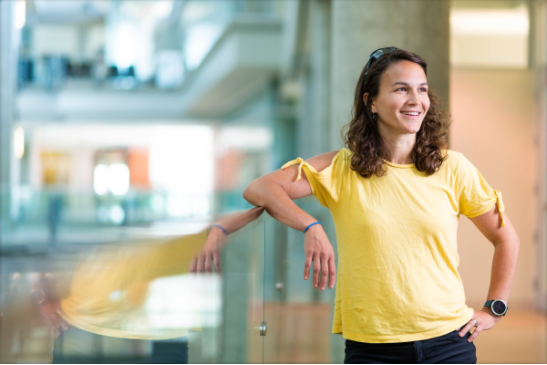
New course teaches learners how to think critically about science—and how to tell the difference between sound scientific studies and pseudoscience. Timothy Caulfield is featured.

Caulfield said public health officials and politicians need to be more transparent about the uncertainty they're facing and the science informing health policies, because it signals to the public that the guidelines could change in the future.
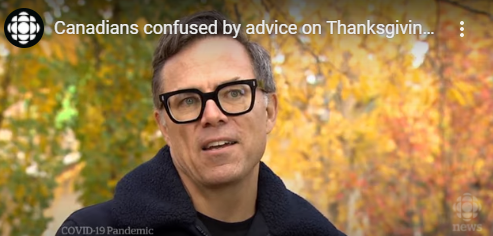
"Let's error on the side of caution" says Timothy Caulfield.

Given Mr. Trump’s notoriously fraught relationship with the truth, it may be hard to believe that he could have a significant impact on public perceptions of a scientific topic such as COVID-19. In fact, Trump has been identified as the single most influential and harmful source of COVID misinformation.
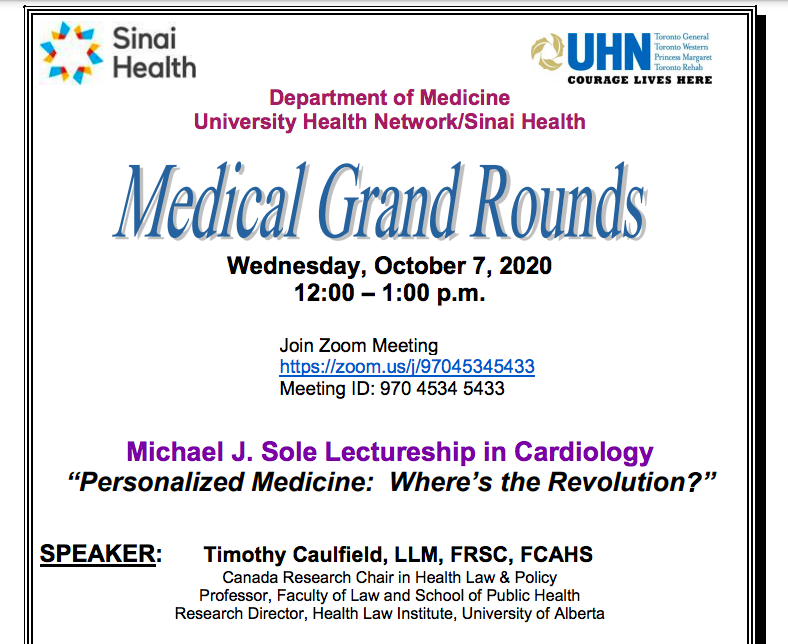
Is personalized (or "precision") medicine leading to a healthcare revolution? Are there downsides to this Big Science push?

How does misinformation spread? Why do people believe it? What can we do as individuals and a community to fight back?

“It is an international crisis. This is a huge part of the pandemic. It’s been called the infodemic,” says Timothy Caulfield, University of Alberta professor and the Canada Research Chair in health law and policy. “Misinformation has led to deaths, hospitalization, financial loss. It's had an impact on health and science policy and it's just added to our chaotic information environment.” According to the professor, research shows people are less likely to spread misinformation – like the myth that drinking bleach will boost the immune system – if they slow down to think things through. That’s what Sean Caulfield’s contribution to Dyscorpia 2.1 encourages.

The Royal Canadian Institute for Science has named the U of A's Timothy Caulfield the winner of the Fleming Medal for Excellence in Science Communication.

Lessons learned and the road ahead.

Caulfield: a conference with #Wakefield & #Mikovits is "patently absurd." Let's not legitimize harmful bunk!
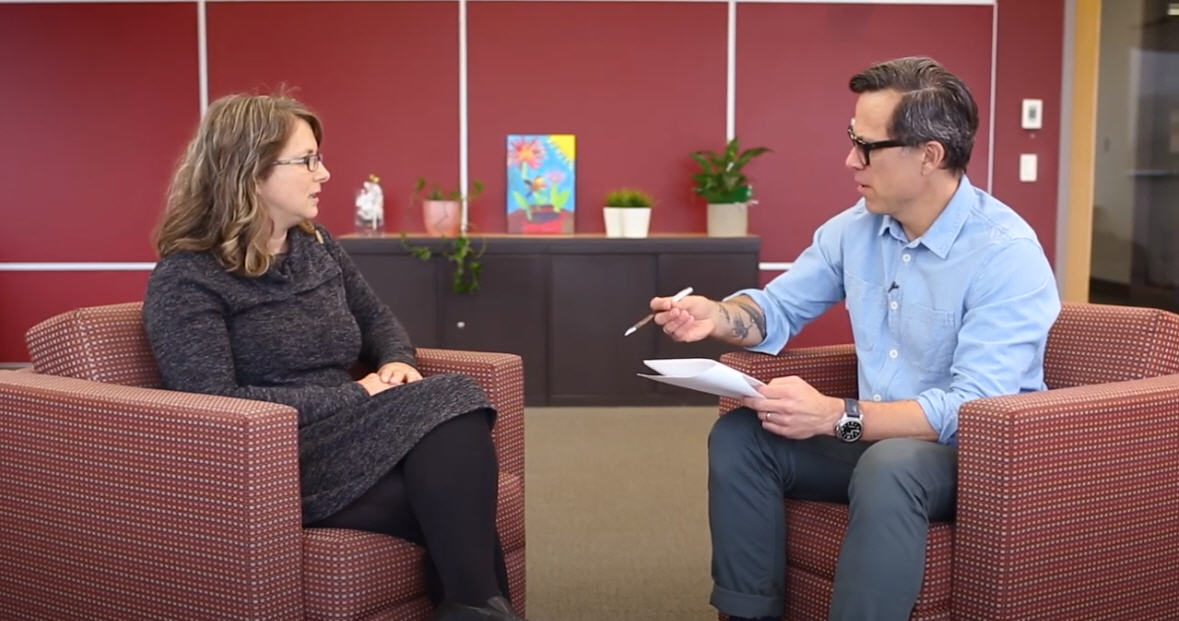
Critical thinking key! Battle the #infodemic

The 2020 Fleming Medal for outstanding communication of science goes to Professor Timothy Caulfield for his tireless work addressing questionable health advice spread through popular culture and for inspiring other Canadian scientists to do the same. This work is critical, especially at this time where following bad health information can mean the difference between life and death.

On October 22nd at 5pm PST, Timothy Caulfield, professor of Health Law & Science Policy at the University of Alberta, and author of Is Gwyneth Paltrow Wrong About Everything?, will explore questions and more as this year’s Lipson Lecture speaker.
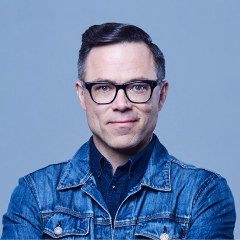
Health law professor recognized for outstanding contributions to science communication
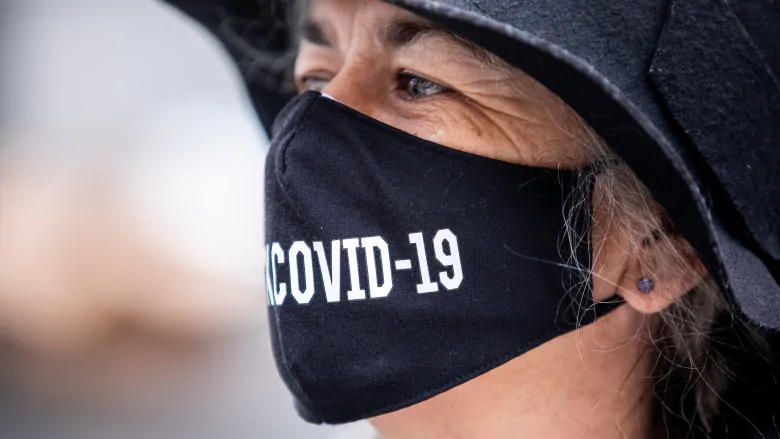
Edmonton-based health policy expert Timothy Caulfield agreed that people should strive to wear a mask around anyone from outside someone's own household.

Tune in around the 1hr mark for Professor Caulfield.

Caulfield notes that these hardliners have little tolerance for other points of view: “It’s like, ‘If you agree these things are a problem, then you agree with the entire package of our perspective. And if you disagree, then you’re the enemy.’ They’re very good at doing that.”

Timothy Caulfield, a law professor at the University of Alberta, said these incidents do seem to be getting more commonplace as frustration is seeping into the pandemic.

Timothy Caulfield discusses the challenges and opportunities for strengthening immunization promotion and building vaccine confidence in an era of fake news.

"In Whom Do We Trust?", the 2020 Trottier Symposium, will be held on October 19th and 26th on YouTube. Please register at mcgill.ca/oss for the links.
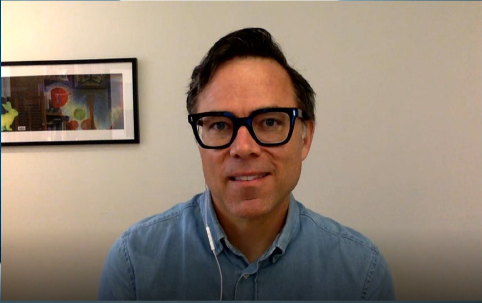
Racial slurs and threats of boycotts from those refusing to wear a mask is adding to stress of businesses and frontline workers as the pandemic goes on. @JackiePerez_ speaks with @CaulfieldTim on why the anti-mask movement is getting more aggressive.

De nombreuses personnes se tournent vers des médecines anciennes ou alternatives pour retrouver leur bien-être. Qu'en dit la science?

Referenced Article: 2. Murdoch, B., Carr, S., & Caulfield, T. (2016). Selling falsehoods? A cross-sectional study of Canadian naturopathy, homeopathy, chiropractic and acupuncture clinic website claims relating to allergy and asthma. BMJ Open, 6(12). http://dx.doi.org/10.1136/bmjopen-2016-014028

“Kennedy Jr is one of the main anti-vaxx voices out there,” Timothy Caulfield, professor of health law and science policy at the University of Alberta, told Tortoise. “He comes with some credibility with his name and the work he’s done in the environmental space. He’s more likely to get a seat at the table and be viewed as a credible voice.”

“Research tells us that correcting misinformation can work, especially if you provide accurate scientific facts and also highlight the rhetorical devices that are used to spread the misinformation,” says Timothy Caulfield.

To learn more about misinformation and its effect, Prairie Manufacturer’s editor, Jeff Baker, spoke with Timothy Caulfield, a Canada Research Chair in Health Law and Policy, a Professor in the Faculty of Law and the School of Public Health, and Research Director of the Health Law Institute at the University of Alberta.

Mondays July 13 - Oct. 5, 2020 | 9pm ET / 6 PT

“People may not really get a sense of the harms they are inflicting,” said Caulfield. “That can make one little indulgence seem like not a big deal.”
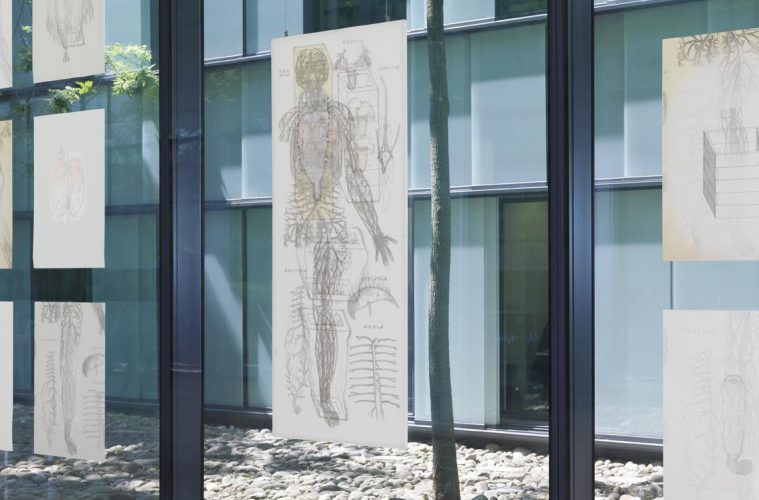
Over the last ten years, brothers Sean Caulfield (artist) and Timothy Caulfield (law professor) have collaborated on a number of interdisciplinary projects—including Imagining Science and Perceptions of Promise1—that have integrated creative and academic methods in order to examine ethical and philosophical issues in the health sciences.

Experts are warning against the dangers of misinformation surrounding so-called “immunity boosters” as we get closer to traditional flu season. Caulfield was recently part a study looking into online claims connecting immunity boosting and protection from the coronavirus.

Critical thinking isn’t about doubting everything: it’s about learning how to find out what is true. Because only truth can Break the Fake.

A pseudoscience mythbuster studies how bad information gets into the wrong hands—and what to do about it.

Timothy Caulfield discusses the challenges and opportunities for strengthening immunization promotion and building vaccine confidence in an era of fake news.

Timothy Caulfield examine les défis et les opportunités de renforcement de la promotion de l’immunisation et de rétablissement de la confiance envers les vaccins dans l’ère des faux reportages.
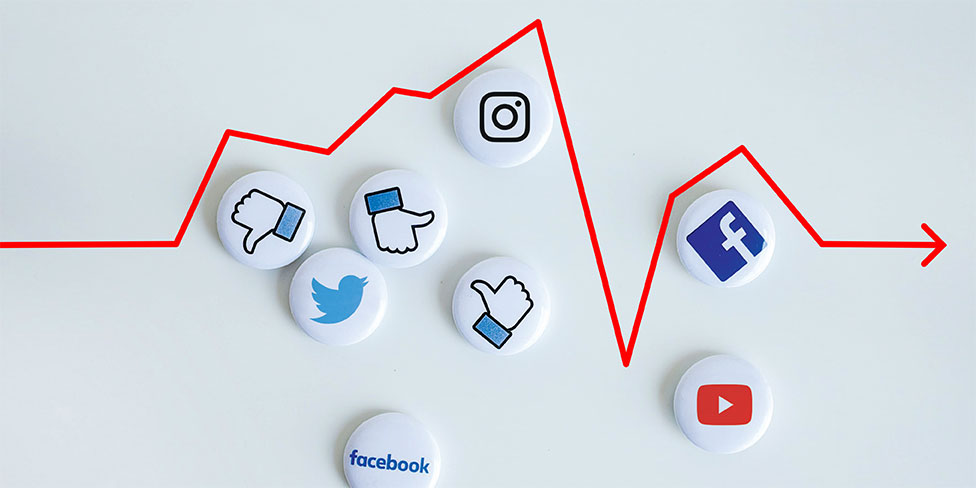
As COVID-19 began to spread around the globe, so too did a toxic brew of rumours, misinformation and conspiracy theories. Caulfield’s research group plans to identify the misinformation that is circulating and then design and implement evidence-based solutions to combat the harmful discourse. The group also intends to develop recommendations for the media, the medical community, biomedical researchers and the public about how they can deal with the issue and be part of the solution.

Timothy Caulfield is a health law professor famous for taking on pseudo-science and health quacks in the public eye. His brother Sean Caulfield is a prolific print artist whose works are reminiscent of old anatomical illustrations except that they aren't real. Together, they have teamed up on a project to fight misinformation in the age of COVID.

Two Edmonton brothers who are also prominent academics are combining science and art to battle misinformation amid the COVID-19 pandemic. Sean and Timothy Caulfield’s latest project in the fight against fake news invites people to take a pause and think, before sharing.

U of A professors, Timothy and Sean Caulfield, encouraging people to think before sharing fake news

U of A printmaker Sean Caulfield teams up with his brother, pseudoscience debunker Timothy Caulfield, to tackle COVID-19 infodemic.

A blanket of misinformation has enveloped every corner of this pandemic. Endorsements of pseudoscientific cures have resulted in public confusion, death and financial loss. Conspiratorial origin stories – from the idea that the coronavirus is a bioweapon to the belief that it is caused by 5G technology – have enabled an ideological polarization of public discourse and helped to erode public trust in public health authorities seeking to promote needed prevention strategies.

The problems associated with how COVID-19 science is being done and represented are not new. But the urgency of the situation – and the high-profile nature of research – has made the issues more apparent and critical. So let’s use this moment as an opportunity to step up and do something about it. Science is a human endeavour. And it needs our help.

Can You Trust Dr. Google? In case you missed our #COVID19 webinar with @CaulfieldTim on "Surviving the COVID-19 #Infodemic", you can now watch the full recording here.

What a fun “COVID and More” with our good friend Timothy Caulfield! Research Director of the University of Alberta's Health Law Institute, Canada Research Chair in Health Law and Policy, and author of “The Science of Celebrity” and soon-to-be-published, "Relax Dammit: A User's Guide to the Age of Anxiety", we chatted about how to combat misinformation, the use of social media in coronavirus conspiracy theories, "boosting" the immune system, anti-vaxxers and anti-maskers, and the eroding of trust in science.

Individuals can do their part by practicing information distancing as well as social distancing. "If you can just nudge people to pause before they share on social media, you can actually decrease the spread of misinformation," says Caulfield.

Two tip sheets from HealthNewsReview.org on reporting about supplements and vitamins have been added to the AHCJ Medical Studies tip sheets section to offer suggestions to journalists on what to consider when writing about supplements. One is by Kathryn Stone, includes commentary from long-time health skepticism advocate Timothy Caulfield.

Two tip sheets from HealthNewsReview.org on reporting about supplements and vitamins have been added to the AHCJ Medical Studies tip sheets section to offer suggestions to journalists on what to consider when writing about supplements. One is Branson’s piece on scaling back coverage, and the other, by Kathryn Stone, includes commentary from long-time health skepticism advocate Timothy Caulfield.

This wk on "COVID and More" we welcome guest @CaulfieldTim ! We'll be discussing #COVID myths & review strategies on how best to fight misinformation (#checkthenshare!). LIVE at 12pm EST

Let's all work together to stop the spread of misinformation! Studies show that nudging people to think about accuracy before they share on social media can make a meaningful difference!

Released May 8, 2020 great listen ... on misinformation and #COVID19 and the responsibility of nutrition professionals to share #factsnotfears to counter #quackery and misinformation. https://m.soundcloud.com/umnsph/a-misinformation-pandemic @CaulfieldTim featured #rdchat #builduprdns

Host Colin Ellis welcomes health law researcher Timothy Caulfield to talk about the popularity of food and health documentaries and why people should approach them with a dose of scientific skepticism. Caulfield is the author of "The Science of Celebrity ... Or Is Gwyneth Paltrow Wrong About Everything?" Credit for clip from The Game Changers: ReFuel Productions/youtube.com Credit for clip from What the Health: A.U.M Film & Media/youtube.com

Watch: “Vulnerable - The law, policy an ethics of #COVID19” on #Vimeo https://vimeo.com/433716719?ref=tw-share via @vanessa_macd @ColleenFlood2 @janephilpott @sridhartweet, @uOttawa et al!

Portrayals of violent crime in pop culture and media are skewing people's perception of how likely it is to happen to them, says U of A misinformation debunker.

Can't wait! "Science Writers and Communicators of Canada, 2020 Virtual Conference." Tomorrow! My talk: "Battling the #Infodemic!" Register: https://sciencewriters.ca/event-3865608 #COVID19 cc @SWC_Can @picardonhealth @KCroweToronto

YOU PROBABLY CAN'T WHIP UP A CURE ON YOUR LAPTOP. But there is something you can do. Stop the spread of misinformation.

Art’s role in inspiring thoughtful conversations about the coronavirus pandemic.

Voici le quatrième d’une série de textes d’opinion sur les effets sociaux à long terme de la pandémie, rédigé par des membres du Comité sur les impacts de la COVID-19 de la Fondation Pierre Elliott Trudeau

Voici le quatrième d’une série de textes d’opinion sur les effets sociaux à long terme de la pandémie, rédigé par des membres du Comité sur les impacts de la COVID-19 de la Fondation Pierre Elliott Trudeau

"Popular culture can have an impact on fear of crime and attitudes toward criminal justice policy. We need more accurate depiction of the criminal justice system and a broader diversity of voices telling those stories."

Webinar panel members include Dr. Eric Benchimal, Dr. Gilaad Kaplan, and Timothy Caulfield.

Deep Dive – additional resources for those who want to know more about being critical consumers of information, developed by MediaSmarts, Timothy Caulfield, and the University of Alberta’s Health and Law Institute

Host Colin Ellis welcomes health law researcher Timothy Caulfield to talk about the popularity of food and health documentaries and why people should approach them with a dose of scientific skepticism.

Timothy Caulfield is referenced.

Sunday House Call, #744, June 21, 2020: The Debunking Protocols. No, not another conspiracy theory but an evidenced-based treatise on how to respectfully counter misinformation by @CaulfieldTim.

We talk with public health researcher Timothy Caulfield about how and why social media has become a vector for the spread of health-related misinformation — along with what we can do to the fight the ongoing COVID-related “infodemic.”

We need to take active steps to fight the spread of misinformation about COVID-19. Timothy Caulfield's new comment, a sum of evidence-based #scicomm strategies.

ARTISTS: Jason Abma, Kyle Beal, Jerad Bech, Lindsey Bond, Sean Caulfield, Timothy Caulfield, Kasie Campbell, Susan Colberg, Brad Fehr, Jamie-Lee Girodat, Heather Huston, Iva Janiga, Jean-René Leblanc, Madeline Mackay, Katarina Marinic, Kim McCollum, Holly de Moissac, Yves Netzhammer, Ariana Ozga-Reinecke, Patti Pente, Emily Spooner, Phoebe Todd-Parrish, Adrianne Smith, Kymberly Wu and Christina S. Zhu.

Tune in around the 15:32 mark for Professor Caulfield.

Evidence-based tactics can help combat misinformation. Timothy Caulfield provides expert comment.

Watch this special video celebrating the FHS Class of 2020, with congratulatory messages from graduate students, faculty and staff, including a greeting from 2019 SFU Honorary Degree recipient Timothy Caulfield.

Can you trust Dr. Google? Misinformation hurt #PublicHealth efforts to control #COVID19 and put peoples’ lives in danger. Join @CaulfieldTim on June 23 to learn about the work under way to curtail the spread of #misinformation.

Don’t shame, ridicule, or marginalize; don’t target hard-core believers; aim for the general public instead.

The COVID-19 pandemic has been accompanied by an equally dangerous “infodemic” — an onslaught of misinformation which threatens our ability to find trustworthy sources and reliable guidance. It's something that Timothy Caulfield fights against as a UAlberta professor of law, research director of its Health Law Institute, author and documentary TV host. Listen as Tim helps us unravel the many conspiracy theories surrounding the pandemic, and separate fact from fiction once and for all.
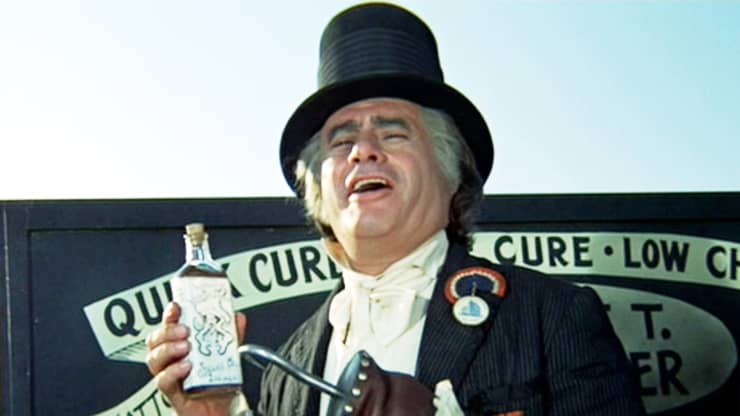
Timothy Caulfield, a professor of law at the University of Alberta, studies health misinformation and in particular the role that celebrities and influencers play in spreading it. One of his top tips is to be skeptical of any really outlandish claims.

Timothy Caulfield is a health law and science policy expert. He joins Edmonton News at 6 host Nancy Carlson to take your questions about misinformation during the COVID-19 pandemic.

Caulfield notes that policy-decisions are changing, but that doesn’t mean that public health shouldn’t be trusted.

Special to the Globe and Mail by Timothy Caulfield.

During the pandemic, we also find ourselves in what the World Health Organization calls, an infodemic — an explosion of misinformation when it comes to magical COVID-19 cures, immune boosters, and unproven therapies. Having spent more than a decade studying the impact and spread of pseudoscience, Professor Timothy Caulfield and his team have received funding to track misinformation and conspiracy theories surrounding the pandemic.

Prof. Timothy Caulfield’s COVID-19 research looks at misinformation about the virus and strategies to debunk those distortions.

Professor Tim Caulfield is the Canada Research Chair in Health Law and Policy, and the host of ‘Timothy Caulfield’s guide to cheating death’ on Netflix - a series that debunks health trends/ fads. He talks to Bill Carroll about the conspiracy theories surrounding COVID-19.

Tune in around the 29:20 mark for Professor Caulfield.

Des centaines de millions de personnes dans le monde pourraient refuser de recevoir un vaccin contre la COVID-19, notamment dans les pays riches, ce qui freinerait son effet protecteur. Tim Caulfield, professeur de droit et de santé publique à l'Université de l'Alberta et auteur du livre The Vaccination Picture, dit être inquiet de voir que des gens ont déjà pris la décision de tourner le dos à un éventuel vaccin contre la COVID-19.

"One thing I'm worried about is that we are moving to a phase where there is more polarization," Caulfield said, adding Canadians should better vet the information they spread on social media.

From bogus cures to fake home testing kits, American consumers are losing tens of millions of dollars to Covid-19-related frauds. As the pandemic continues to impact the country, people are more vulnerable than ever to misinformation. How can we protect ourselves from getting scammed? To answer this question, we brought on Timothy Caulfield, a professor of health law & science policy and TV host.

Science, Celebrities, and Public Engagement, Timothy Caulfield.

Although snakeoil, the peddlers of scientific misinformation, and conspiracy theorists have been aplenty prior to the pandemic, it seems to have entered hyperdrive now. Many who promote evidenced-based principles are working overtime to explain and debunk this deluge of misinformation that in some cases threatens people's lives. Emergency rooms are reporting cases of bleach poisoning and we know where that came from. Timothy Caulfield

Listen to our podcast with @CaulfieldTim for challenges and opportunities for strengthening immunization promotion! ET1: Building Vaccine Confidence in the Era of Fake News

Understanding health research. A conversation with Timothy Caulfield, A User's Guide to Cheating Death Netflix, and Sarah Forgie, Physician and Infectious Disease Researcher.

..."This illustrates how the power of a celebrity providing a personal anecdote can overwhelm what the science says," Caulfield says.

"In a world where anti-vaccination advocates and climate-change denialists persist, talking sense might seem hopeless, especially when social-media algorithms and deliberate bad actors amplify pseudoscience messages," University of Alberta health law and policy researcher Timothy Caulfield wrote in Nature. "There is no easy answer to solving this, but science-informed messages are not easily found. We need more researchers making an effort."

Virus cures based on pseudo-science aren't just being peddled in the U.S. Caulfield urges scientists, universities, and health care institutions to speak out and stop tolerating health pseudo-science by their silence.

The scientific community must take up cudgels in the battle against bunk, argues health law and policy expert Timothy Caulfield.

Caulfield said in an interview with the Star that scientists, universities and health-care institutions have to speak out, and "stop tolerating and legitimizing health pseudo-science" not just by their silence but by allowing unproven therapies within their own settings.

The scientific community must take up cudgels in the battle against bunk. Timothy Caulfield

“It’s frustrating in that they are creating controversy where, hopefully, we don’t need it right now but also the act of what they’re doing, the gathering together in a large group, is not great,” said Timothy Caulfield, professor of health law and policy at the University of Alberta.

"I get it. It's frustrating and these are very complex policy decisions, but we're not there yet," Caulfield said.

Richard Crouse talks with Timothy Caulfield on social isolation, the negativity bias (why do negative headlines win?), and so much more!

Regulation of new COVID-19 tests, drugs and vaccines is a federal responsibility for good reasons, say Alberta health law experts, Ubaka Ogbogu Lorian Hardcastle.

In a salute to the tireless inquisitors, data crunchers, and universal explorers who advance science to societies benefit and safety each day - Spark is turning a spotlight on the people behind the work.

Over the past decade, celebrity wellness brands have helped to frame how we talk and think about health. But now that we are in the grip of a deadly pandemic, their shameless marketing of healing crystals, supplements and cleanses (aka unhealthy crash diets) comes across as especially ludicrous and exploitative.

Celebrity health advice was mostly bunk before this pandemic emerged. It is bunk now. And it will be bunk after the crisis passes.

Ubaka Ogbogu is an associate professor in the Faculties of Law and Pharmacy and Pharmaceutical Sciences at the University of Alberta, and a Pierre Elliott Trudeau Foundation Fellow. Lorian Hardcastle is an assistant professor in the Faculty of Law and Cumming School of Medicine at the University of Calgary.

In this episode, we talk with writer, tv host, and University of Alberta professor of health law and science policy Timothy Caulfield about misinformation in science, its roots, impacts, and his latest research project to develop tools to combat its spread.

"We really are living through a moment that should remind us what the world would be like without vaccines," Caulfield says.

By Ryan Armstrong. Let me preface this article with my position on patients who are mislead by health professionals: these people are victims. I do not believe this makes all patients immune from criticism when they defend abhorrent practices, but it is worth keeping in mind that - between the patient and the caregiver - only one of these two has a professional obligation to disseminate reliable, science-based information and provide informed consent. With that in mind, this post is a rebuttal to a chiropractic patient's perspective published by a group that advocates for various forms of pseudoscience.

"We know that pop culture and social media has an impact on all of us and all of our beliefs, so I think it's an important topic."

Markham interviews Prof. Tim Caufield - Faculty of Law and School of Public Health; and Research Director, Health Law Institute, University of Alberta - about recent comments by Alberta Premier Jason Kenney:

Caulfield tells of how hand washing came about. He then dives into the misinformation on COVID prevention.

Timothy Caulfield may be the most well-known face of scientific myth-busting. He is the host of Netflix's The User's Guide to Cheating Death and the author of multiple bestsellers on science and misinformation, including Is Gwyneth Paltrow Wrong About Everything? and The Vaccination Picture. He's also a law professor at the University of Alberta, the Research Director of its Health Law Institute, and a Canada Research Chair in Health Law and Policy.

There is so much misinformation about COVID-19 and what we can do about it. To cut through the noise, Upstream Plan B podcast host Ralph Benmergui talks to University of Alberta professor of law Timothy Caulfield, who is making a study of misinformation and where to find the truth.

Caulfield among other professionals urging to follow Health Canada processes.

Canada research chair Timothy Caulfield tasked with researching infodemic, root cause of COVID-19 misinformation

An Alberta professor has made it his mission to tackle COVID-19 myths and get people to consume and share information responsibly.

University of Alberta Faculty of Law professor Timothy Caulfield has been named to the Royal Society of Canada's Task Force on COVID-19 in order to support Canada's response to and recovery from COVID-19.

More things that don't work: blowing a hair dryer up your nose, putting essential oils on your butt hole, holding your breath for 10 seconds, or gargling warm water. To fight this infodemic, Tim Caulfield, a professor of health law & science policy at the University of Alberta in Canada, recently received a $380,000 grant to track all the misinformation and conspiracy theories around COVID-19.

"I like the fact that they're going after the range, because we're seeing misinformation and inappropriate marketing absolutely everywhere," University of Alberta professor or health law and policy and pseudoscience critic Tim Caulfield said Tuesday.

Timothy Caulfield (Canada Research Chair in Health Law and Policy at the University of Alberta) joined the Arlene Bynon show to discuss separating the science from the scams of COVID19.

As someone who has spent decades debunking myths and bad science, whether related to climate change, stem cells or vaccinations, Timothy Caulfield has almost heard it all.

"I think mewing is a good example of the power of a story," says Timothy Caulfield, Canada Research Chair in Health Law and Policy. "This is one of those areas where there really isn't a lot of evidence, good clinical evidence, to support it. It's based almost entirely on that intuitive appeal and anecdotes and testimonials."

Timothy Caulfield, the Canada research chair in health law and policy, said misinformation typically surrounds different areas of health but the COVID-19 pandemic has highlighted the issue.

"It just creates this incredibly chaotic information environment at exactly the wrong time," said Caulfied, who is also the Canada Research Chair in Health Law and Policy.

Timothy Caulfield will lead research to assess how false cures and conspiracy theories spread online, and recommend ways to contain potentially harmful bunk.

Caulfield said spinal manipulation won't boost immune function.

Thanks to COVID-19, most of us are isolated, glued to the news and worried about how every little choice we make could spread the virus or get us sick. And while the threat of COVID-19 is very real, does that mean that we have to live in constant fear? Today on Front Burner, we talk to public health expert Timothy Caulfield, professor at the University of Alberta and author of the upcoming book, Relax, Dammit! A User's Guide to the Age of Anxiety.

Ubaka Ogbogu is an assistant professor in the faculties of law and pharmacy & pharmaceutical sciences at the University of Alberta.

As health policy expert Timothy Caulfield argues in a blistering opinion piece, there should be no tolerance for pseudoscientific cures that drain resources and might kill you.

"WhatsApp is so instantaneous, and speed is part of its DNA, that I think it invites you to respond quickly and pass it on quickly," Prof. Caulfield said.

"It's incredibly frustrating. Beware of herbal remedies and immune boosters": University of Alberta professor Tim Caulfield - an expert on debunking celebrity and lifestyle trends - is warning Canadians to be aware of false information and people selling magical cures for COVID-19. He joined Gord Steinke for tips on telling fact from fiction.

"A bonspiel is not an essential activity," Caulfield wrote in an email. "I know our health-care providers are under a lot of pressure and scrutiny right now, but hard not to wonder why this event took place."

"Ideally we want to create a culture that embraces and encourages exercise in a manner that promotes an intrinsic motivation - people doing it because it is part of their life," says Tim Caulfield, a professor of health law and science policy at the University of Alberta.

Since being declared a global pandemic, there is evidence that demand for alternative medicine has increased. Some alternative medicine has been shown to be effective, but many of the options being marketed today have not. As Timothy Caulfield professor of health law at the University of Alberta writes: trust in science is crucial right now.

Timothy Caulfield notes this breakdown in trust is happening at a terrible time. But it shouldn't be a surprise. Fermenting distrust has become the go-to strategy for selling health products, generating clicks and getting elected.

Fortune compiled a Twitter list of trusted public health officials, epidemiologists, virus experts, family doctors, and others for you to follow. Among the experts is Timothy Caulfield!

A User's Guide to Cheating Death host Tim Caulfield is no stranger to hate mail.

Timothy Caulfield, a health law and science policy professor critical of so-called alternative medicine therapies and anti-vaccine advocates, says the novel coronavirus has created a "perfect storm" for the spread of misinformation.

Alternative medicine practitioners are leveraging fear of COVID-19 to sell unproven products and procedures, says U of A health policy expert Timothy Caulfield.

Alternative medicine practitioners are leveraging the fear around coronavirus to sell products and procedures that are scientifically unproven. Timothy Caulfield

Timothy Caulfield, "Take it seriously but don't freak out"

Ces résultats montrent l'intérêt croissant pour le maintien d'une certaine main-mise sur les informations personnelles, explique Timothy Caulfield

"These results demonstrate the growing interest in maintaining a degree of control over personal information," says Timothy Caulfield at the University of Alberta, Canada. "The public has been told for decades that this research is essential and valuable and potentially profitable. They may be thinking, 'Okay, I believe you. Pay me.'"

"You're seeing stuff about homeopathic solutions that are supposed to help. No. Supplements that are supposed to help. No. Chiropractic adjustments that are supposed to help. No." Timothy Caulfield.

Best prevention for the novel coronavirus is washing your hands. University of Alberta professor Timothy Caulfield said it's infuriating to watch the spread of misinformation around a public health issue like coronavirus.

"They are leveraging the fear and confusion around coronavirus to sell a product that almost certainly does not work," Caulfield said.

University of Alberta health researcher Blake Murdoch, who co-authored the paper with Health Law Institute research director Timothy Caulfield, said a doctor's duty to find the best treatment for their patient means that they can't advocate for a switch to a biosimilar based solely on cost.

U of A experts, including Timothy Caulfield, dispel myths about weight loss and provide realistic advice to lead a healthier, happier life.

Alberta is yet to have a confirmed case of coronavirus. Canada has only had a few dozen. But the dreaded disease is already hitting in the form of anxiety, doubt and endless questions. Health Law and Policy expert Timothy Caulfield is interviewed.

Health policy expert Timothy Caulfield calls the campaign a 'classic tobacco industry technique'

We're going to take a look at the billion dollar business that is 'diets' - do any of them work? Health expert and author Tim Caulfield joins us.

In January, Caulfield was a keynote speaker at FarmTech at Edmonton, Alta., where he sat down with RealAgriculture to discuss the rise of misinformation, in everything from goop to coronavirus.

What do you get when you combine magic beans and the direct to consumer sales pipeline of the internet? A lot of money in the pockets of the likes of Gwyneth Paltrow and Dr. Oz. Science misinformation is a wolf in sheep's clothing and camouflages as "natural" goods being sold for the sake of ~wellness~. In this episode, we chat with Timothy Caulfield, a Canadian professor of law at the University of Alberta and Canada Research Chair in Health Law and Policy, about the motives behind science misinformation and what we can do to fight it.

In Relax, Dammit!, health policy expert Timothy Caulfield takes us through a regular day-from the moment we wake up to when we go to sleep-and shows the underlying science behind many of the small decisions we make. What he reveals is that we make decisions that are based, to a lesser or greater extent, on misinformation. Many of the things we believe to be healthier, safer, or just better, simply aren't. There is often a science-informed, and less stressful, way forward, which means we can all afford to relax more.

Alberta's switch to biosimilar drugs may activate a legal issue for doctors, say #UAlbertaLaw Professor @CaulfieldTim, Canada Research Chair in Health Law and Policy, and Blake Murdoch, @HealthLawInst research associate.

"We asked the experts to debunk six popular fads and misconceptions-from essential oils to exercising for weight loss." Timothy Caulfield is among experts debunking the myths.
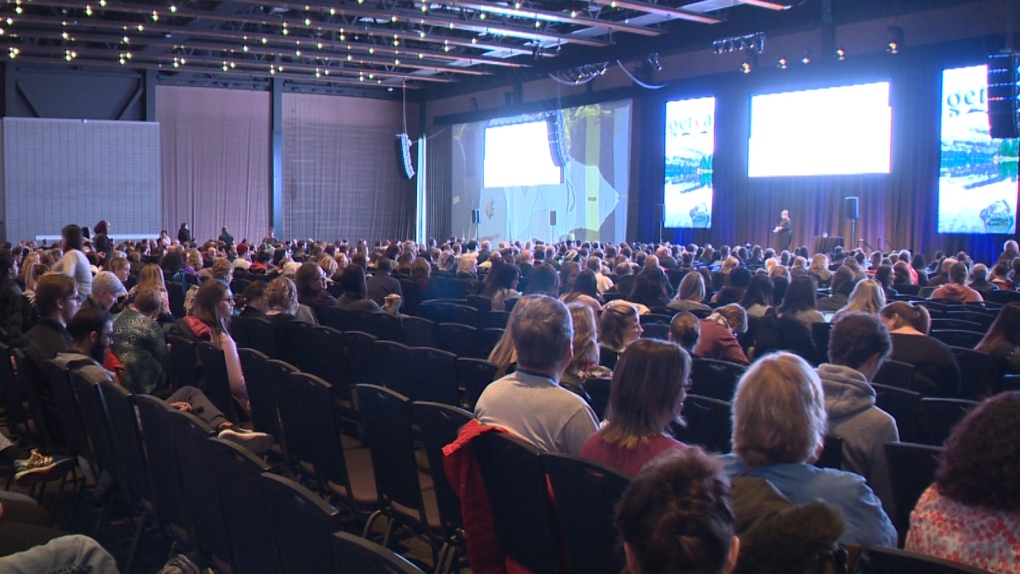
Over the two days, teachers will have access to workshops, seminars and speakers including Timothy Caulfield, Member of Parliament Mike Lake and Amazing Race Canada winners Dr. James Makokis and Anthony Johnson.
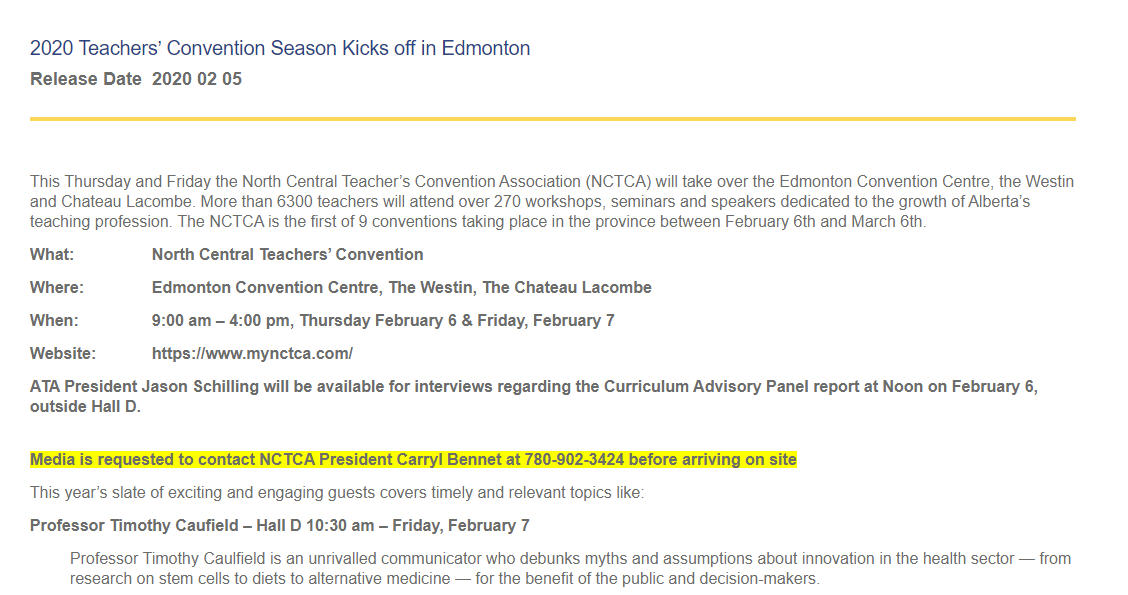
Professor Timothy Caufield – Hall D 10:30 am – Friday, February 7

'It’s total propaganda based on people’s emotions,' expert says

There is little research proving its benefits. Timothy Caulfield is highlighted.

'The Goop Lab', the platform's new program, is an instruction manual on the fallacies and gimmicks with which false remedies are defended. Timothy Caulfield is praised.

Salut Netflix, aujourd'hui j'arrête mon abonnement parce que je ne veux pas soutenir une entreprise qui fait la promotion de pseudo-sciences dangereuses. Si vous annulez The Goop Lab, je me réabonne immédiatement." Ce message*, et d'autres du même type*, ont été publiés sur Twitter début janvier, après l'annonce de la diffusion de la série documentaire The Goop Lab sur la plateforme de streaming de la firme américaine

Timothy Caulfield is invited to talk about the unproven claims and unhealthy practices being shared on Paltrow's Netflix show.

Timothy has become a famed debunker of health and wellness myths and assumptions — from anti-vaxxers to crash diets and jade eggs.

Timothy Caulfield, author of the book "Is Gwyneth Paltrow Wrong about Everything?," labels the series "an infomercial for pseudoscience." Jen Gunter, an obstetrician-gynecologist who is often quoted in takedowns of Goop's claims, says the show promotes far more bad information than good and argues that exposure to health inaccuracies even once can have a negative impact on a person's decisions in the future.

Their goal is to create noise, to create uncertainty, says one public health expert. Timothy Caulfield

Gwyneth Paltrow's new show The Goop Lab focuses on approaches to wellness that are "out there", "unregulated" and "dangerous". Timothy Caulfield

Health-trend debunker Timothy Caulfield offers a four-point prescription to help science and critical thinking "rise above the noise of nonsense."

While pseudoscience and quackery have been around a long time, the 2010s were truly the decade of bunk. The reach and influence of misinformation has intensified to the point that it feels near impossible to find the truth in the churning sea of falsehoods, exaggerated claims and fear mongering.

Celebrity wellness hype contributes to our "culture of untruth" by both inviting an erosion of critical thinking and promoting what is popular rather than what is true. Timothy Caulfield

The Human Genome Project sparked an obsession with personalized info-and potentially shifted the responsibility for health away from broader society, argues health policy expert Timothy Caulfield.

Timothy Caulfield, "That is their mandate. Not protecting their members, but protecting the public," Mr. Caulfield said. "If they can't act in this kind of situation, what is their role?"

The Human Genome Project sparked an obsession with personalized info, and potentially shifted the responsibility for health away from broader society.

Timothy Caulfield holds a Canada Research Chair in Health Law and Policy at the University of Alberta and is the host of 'A User's Guide to Cheating Death' on Netflix.

Paul Benedetti, Wayne MacPhail and Timothy Caulfield

Timothy Caulfield notes that we can't change our pH level through the food that we eat. Our bodies have evolved to handle this. There is no evidence the alkaline food have any health benefits. It is all just wellness woo noise.

Timothy Caulfield explains the wellness woo noise for these water trends as there is no evidence to any health benefit.

"This situation highlights the degree to which many chiropractors remain rooted in supernatural beliefs. It also highlights how self-regulation is failing," says Timothy Caulfield, Canada Research Chair in Health Law and Policy at the University of Alberta. "Increasingly, I think that governments across Canada need to rethink how alternative medicine is regulated. The system seems to be broken."

Timothy Caulfield is asked for a professional view, which is backed by science.

"There's just no way a DNA test will tell you anything that's meaningful about complex traits," said Timothy Caulfield, a bioethicist and health policy expert at the University of Alberta who specializes in genetics. "And these parents are changing their kids' lives."

Caulfield and Jarry both took aim at the claim that homeopathic remedies do no harm just because they're safe to consume. They say people might be convinced to try homeopathy instead of a proven treatment, wasting their money on what is essentially a sugar pill. Caulfield also believes the homeopathy lobby contributes to an erosion of critical thought that can encourage people to disbelieve scientific research.

"It's incredibly frustrating to see any kind of action to legitimize homeopathy and it's a real problem to have someone with their status associate with that," says the University of Alberta's Professor and Canada Research Chair in Law and Health Policy, Timothy Caulfield.

Timothy Caulfield, a bioethicist and health law scholar at the University of Alberta, cautions that it's too soon to start celebrating. "Research is very hard to control once it's left your laboratory," he says. He gives Neale and his collaborators credit for trying to be careful. the trouble is, it's no longer their story to tell. "Pop culture owns this science now and it is going to keep getting spun to sell products or an ideology."

(CNN) - You can call someone the n-word and give her graphic instructions on how to kill herself, and you won't get kicked off Facebook. Or you can tell a mother you hope her son gets raped, and you won't get kicked off the world's most popular social media platform. Or you can tell a mother whose 5-year-old daughter has died that "if your kids keep dying it's god trying to tell u u don't deserve them." You can write to that mother: "F**k you c**t. Are you dead yet c**t? Fingers crossed. Spit on c**ts like you. You c**t dog. Die c**t. You piece of sh*t c**t dog. You are ignorant dumb dog. Die c**t." Still, you can stay on Facebook. These are the findings of a six-month CNN investigation into bullying and harassment faced by parents, doctors and others who advocate for vaccination on Facebook. A Facebook spokesperson said the platform is conducting its own investigation as a result of CNN's findings.

Timothy Caulfield provides comment.

Timothy Caulfield among an international group of academics taking the rare step of urging the study's funder to release the data for independent review. "What are you hiding? Whoever owns the data should be willing to release it." "Doesn't seem like an unreasonable request" notes another professional.

Timothy Caulfield is a Canada Research Chair in Health Law and Policy at the University of Alberta and host of A User's Guide to Cheating Death Special to the Globe and Mail

Regulator not taking any action on use of spinal manipulative therapy in kids under 10. "You could see why an organization that is trying to support the practice of its members would come to this result, but it's disappointing because I don't think the body of evidence supports that conclusion," Caulfield told CBC.

Timothy Caulfield, a health law and policy expert at the University of Alberta, says the bigger issue is how Health Canada regulates natural health products.

By Timothy Caulfield, Canada Research Chair in Health Law and Policy at the University of Alberta.

With half the population seeking health information online, can the internet really replace a GP visit?

For Caulfield and others, the idea of turning primary care over to naturopathic medicine is unnerving. Last year, a New Brunswick judge issued an injunction prohibiting naturopaths from advertising themselves as a "doctor" or "family physician." Training programs require an undergraduate degree, plus prerequisite sciences, followed by a four-year program that includes basic and clinical sciences. Still, "Naturopaths are not medical practitioners and naturopaths are not allowed to use words to suggest they are," Court of Queen's Bench Justice Hugh McLellan said in a ruling covered by CBC.

Crohn's and Colitis Canada released their position on biosimilar drugs and in particular on non-medical switch policy together with a cross-Canada survey of healthcare providers, patients and caregivers on September 5, 2019. Released today is a legal/ethics review that assesses challenges in a Canadian legal, bioethical and policy context to further support the Crohn's and Colitis Canada position. World renowned leader in health law, ethics and science policy Professor Timothy Caulfield, an author of the paper says "The move from biologics to biosimilars can create real ethical and legal challenges for healthcare providers. Physicians have a legal and ethical obligation to put the interests of the patient first."

Timothy Caulfield discusses the challenges and opportunities for strengthening immunization promotion and building vaccine confidence in an era of fake news.

Timothy Caulfield is interviewed.

"We really should stop tolerating the spread of pseudoscience," said Timothy Caulfield, the Canada research chair in health law and policy at the University of Alberta.

Celebrities endorse a slew of diets, supplements, exercise routines, and other health fads. Here's how to dodge their influence. Timothy Caulfield spoke to Nutrition Action's Caitlin Dow in June.

"Irrational and irresponsible behaviour put a child at risk. But this court decision is not an endorsement for pseudo-scientific beliefs or conspiracy theories. (David Stephan) is still wrong - horribly wrong - about all of that," said Timothy Caulfield. "It was a criminal trial, so the standard is high. I don't think this case lowers the bar. Parents can still be found criminally responsible for failing to provide the necessaries of life."

Ryan Jespersen and Timothy Caulfield discuss the outcome of the trial.

Government, physicians and advertising regulators need to team up to protect the public from marketing of unproven treatments, argues U of A health-trend skeptic Timothy Caulfield.

"These companies use science-y language to give their product legitimacy and intuitive appeal," said Timothy Caulfield, a professor of law at the University of Alberta in Canada, and research director of its Health Law Institute. "But the evidence is far from convincing. As far as I can tell there isn't any robust data to support the claims made by these companies."

The first-time event slotted for Dec. 9-10 at the Community Centre is looking to attract community leaders, innovators and change agents from across the entire province to attend the summit, which has a theme of From Isolation to Connection. The event will feature a number of speakers, including Dr. Timothy Caulfield, known for his Netflix series "A User's Guide to Cheating Death." Caulfield is also the Canada Research Chair in Health Law and Policy, he's a professor at the University of Alberta Faculty of Law and School of Public Health and holds the position of Research Director of the Health Law Institute.

'It's an incredibly promising field and we are going to see clinical benefits,' says public health expert Timothy Caulfield at the University of Alberta in Canada. 'But there aren't really many therapies that are ready for the clinic.' Caulfield has a long-time interest in stem cell clinics and says the situation is not getting any better. Their proliferation is happening in well-regulated, wealthy countries. Sometimes, these treatments endanger patients.

Timothy Caulfield is featured.

Timothy Caulfield, Canada Research Chair in health law and policy at the University of Alberta, said despite some inroads, there is much more social-media companies can do to stamp out false information about vaccines.

Author Timothy Caulfield suggests in his book, Is Gwyneth Paltrow Wrong About Everything?, that the cult of celebrity is strongest in those countries with the lowest social mobility. His theory holds true in the U.S. and U.K., both of which have rigid class structures and pervasive celebrity cultures. However, Canada enjoys comparatively high social mobility.

The Canadian health law and policy professor Timothy Caulfield, author of the book Is Gwyneth Paltrow Wrong About Everything?, said the settlement sent "a powerful message" about the type of information found on sites like Goop, calling it "a little victory for science."

Timothy Caulfield is featured and speaks on the oil and research.

More clinical trials needed into cannabidiol's alleged health benefits: researcher (Timothy Caulfield)

Timothy Caulfield's discussions drive up relevant critical thinking skills people need to make about their health.

Athletes want to believe in a Holy Grail, but the truth is that sports medicine is a very narrow field. Timothy Caulfield, author of the book Is Gwyneth Paltrow Wrong About Everything?, says that the basics of recovery science are fairly straightforward - any new discoveries that increase performance, recovery, or longevity are minor advancements, within the few stray percentage points that scientists haven't already figured out.

The audience at the Canadian Beef Industry Conference this past week, was challenged to help the public cut through the noise of misinformation when it comes to making decisions about food and health. Keynote speaker and University of Alberta Professor of Health Law and Science Policy, Timothy Caulfield, spoke at the Conference, Wednesday, August 14.

University of Alberta health law and policy professor Timothy Caulfield delivered a keynote presentation on Wednesday morning, highlighting how pop culture and media contribute to how "fear and the misrepresentation (and perception) of risk are having a huge impact on our decisions, particularly in the context of food."

Timothy Caulfield provides comment.

Timothy Caulfield, research director at the health law institute at the University of Alberta, is not sure that people realize what they are signing up for when they answer the lengthy questionnaires about their health and heritage. "People need to look carefully at privacy statements because often these firms are partnering with the pharmaceutical industry and people should be aware that is happening," he told the BBC.

Caulfield believes the celebrity preoccupation with enemas may lie in a certain intuitive appeal ("who likes to think about gunk residing in their intestines?"), and also because you are certain to "feel something" after irrigating your bowel. "You may even have a significant bowel movement," he says. But that doesn't mean it's "working" (whatever that means). The idea that enemas could be responsible for glowing skin is 100 percent bunk according to Caulfield and any qualified medical professional you talk to. As for Perry's claims that they eliminate toxins-toxins are not a thing. And the body already has an all-natural, reliable and free way of clearing out the colon. It's called doing a number two.

"This kind of celebrity noise can distract people from the science-informed, and more sustainable basics: lots of fruits and veggies, whole grains and healthy proteins." notes Timothy Caulfield.

Timothy Caulfield, Canada Research Chair in health law and policy at the University of Alberta, acknowledged there had been questions after the initial notice about whether PRP should be grouped with stem cell therapies.

#3! in 15 Netflix Health Documentaries, A User's Guide to Cheating Death, Timothy Caulfield.

#2! for Best Netflix health documentaries, A User's Guide to Cheating Death, Timothy Caulfield.

The idea that metricizing our life is the responsible thing to do is increasingly framed as a wellness truism. But don't let the flashy marketing fool you. By Timothy Caulfield.

Timothy Caulfield provides comment.

Stronger regulations, enforcement needed to counter rapid growth of clinics offering experimental treatments, argues U of A health trend skeptic Timothy Caulfield.

"We know that there are an increasing number of clinics across North America that are selling these unproven therapies," said Timothy Caulfield, Canada Research Chair in health law and policy at the University of Alberta. "I think it's really important to emphasize this stuff is unproven."

A recent article in the Canadian Journal of Bioethics, lead authored by Timothy Caulfield, a Canadian law professor and bioethicist who has taken particular aim at the rise of pseudoscience in health and wellness, discussed concerns about the spread of bad nutrition and health information in both traditional and social media. Unsurprisingly, people are increasingly seeking scientific information - including health and nutrition information - on social media, and increasingly willing to share personal health information online.

"The marketing of unproven stem cell therapies has been a problem for a very long time and it's becoming a bigger problem here in Canada," Professor Timothy Caulfield, research director at the University of Alberta's Health Law Institute, told CTV News.

Timothy Caulfield Special to the Globe and Mail

Social media-savvy health professionals may never outnumber vocal disseminators of misinformation online but could amplify important health messages to wider audiences.

A growing number of experts have called for regulatory action against clinics offering cell-based therapies in recent years. Timothy Caulfield provides expert comment.

In one paper, University of Alberta professor Timothy Caulfield described a "hype pipeline" created by "a complex array of social forces" that include "the pressure to publish, the increasingly intense commercialization agenda, the messaging emanating from research institutions, the news media and, even, the public itself."

Timothy Caulfield speaks at the European Society of Human Reproduction and Embryology annual meeting in Vienna.

To celebrate the 20th anniversary of the McGill Office for Science and Society, a university-backed office dedicated to separating sense from nonsense, Jonathan moderated a panel discussion entitled "Talking Science in the Age of Fake News". The panelists were Prof. Joe Schwarcz, the director of the Office; Timothy Caulfield, host of a User's Guide to Cheating Death on Netflix; Carly Weeks, health reporter for The Globe & Mail newspaper; and Ryan Armstrong, director of Bad Science Watch.

Video testimonials and infomercials can be particularly persuasive. They tell a story. The problem is that the power of the personal narrative "often overwhelms the data," said Timothy Caulfield, professor of health law and policy at the University of Alberta and a co-author of the new study.

Video testimonials and infomercials can be particularly persuasive. They tell a story. The problem is that the power of the personal narrative "often overwhelms the data," said Timothy Caulfield, professor of health law and policy at the University of Alberta and a co-author of the new study.

"People need to be skeptical of these products," says Timothy Caulfield, a professor at the University of Alberta and research director of its Health Law Institute. "You just don't know what you could be getting."

Are we surprised? No we are not. #Sigh. - Timothy Caulfield (@CaulfieldTim)

Timothy Caulfield debunks a recent study that suggests youth are developing "horns" in their skulls as a result of cellphone use.

Timothy Caulfield, a professor of health law and science policy at the University of Alberta and host of the Netflix show A User's Guide to Cheating Death, thinks that Chiang's initiative could prove helpful. "It's true that 'more science' on its own rarely changes minds," Caulfield says. But "there has been too much tolerance of pseudoscience from many in the health care community. An initiative like this can help to build momentum that may nudge more in the direction of a science-informed approach."

'Because the trillion-dollar wellness industry profits off virtue-signalling, we assume that wellness companies must align with these values,' explains Timothy Caulfield, author of Is Gwyneth Paltrow Wrong About Everything? 'We tend to think if it's healthy and kind and good for us, it must also be healthy and kind and good for the world, too. Wellness is often sold as communing with nature, whether it's barefoot walks on the beach or forest bathing, and yet a lot of the food, products and services that are marketed to us with the words "natural", "clean" and "wholesome" are often pretty devastating to the environment and for the people involved in making them.'

We all want a good story to tell about where we come from. Why do we seek the answers in the lives of our ancestors - even in the DNA they passed on to us? Timothy Caulfield provides expert comment around 13:08.

Timothy Caulfield, a professor of law and public health at the University of Alberta, said while an opt-out system removes what appears to be the biggest barrier - getting people to consent - it's just one piece of a "long chain that needs to work well for rates to improve." Caulfield has argued that presumed consent does not necessarily mean higher donation rates, pointing to Luxembourg, Sweden and Bulgaria, which have donation rates lower than Canada's, though they have opt-out systems.

Timothy Caulfield, who examines health, wellness and beauty trends in the Netflix show A User's Guide to Cheating Death, says essential oils smell pleasant, there's an intuitive appeal to their "concentrated flower power," and personal anecdotes about their supposed effectiveness abound. But when it comes to the science backing their purported health benefits, "the available evidence that does exist is either tremendously thin, shows no effect, has methodological flaws," says Caulfield.

"To be honest, it isn't even a scientifically plausible idea," Caulfield, Canada Research Chair in health law and policy, said in an email from Lisbon, where, coincidentally, he was speaking on the power of celebrity narratives.

Skeptics such as the University of Alberta's Timothy Caulfield say there is no good evidence from human trials to support the idea that injecting stem cells has a global, anti-aging effect.

And then there's the rising tide of victims, unsuspecting subjects of risky experimentation and customers paying for unproven or outright quack treatments. Professor Timothy Caulfield, research director at the Health Law Institute, University of Alberta, calls this "scienceploitation": "Now you see stem cell, genetic, and increasingly, microbiome research being exploited to sell a host of ridiculous products."

"The law - and clinical ethics -demands that [chiropractors] be honest with their patients." Timothy Caulfield.

"I call it science-ploitation, what they're doing is using this exciting area of science, stem cell research, regenerative medicine research in order to sell an idea that doesn't really have good evidence behind it," explains Caulfield.

"This research is fascinating and it's important," said Timothy Caulfield. Nonetheless, "if history tells us anything, it tells us that it's unlikely that this is going to revolutionize nutrition."

Timothy Caulfield among others are interviewed.

"They are using this exciting area of science, stem cell research, regenerative medicine research, in order to sell an idea that doesn't really have good evidence behind it," says Timothy Caulfied.

According to Timothy Caulfield, an Edmonton-based health science expert, some of the products marketed by Goop have no scientific basis, they lack any data to show efficacy, and have been criticized by some in the medical establishment as misleading.

Timothy Caulfield talks with Mel about the pop-up shop opening of her brand, Goop, in Toronto.

"There is growing recognition and more evidence that the spreading of health misinformation can do real harm." notes Timothy Caulfield.

Timothy Caulfield discusses the challenges and opportunities for strengthening immunization promotion and building vaccine confidence in an era of fake news.

"Whenever biology is attached to a rough human classification system (ancestry, ethnicity, etc), the public, researchers and the media almost always gravitate back to the concept of race." Caulfield further notes: "The more we suggest that biological differences between groups matter - and that is exactly what these companies are suggesting - the more the archaic concept of race is perceived, at least by some, as being legitimate." So if you are tempted by the thought of a DNA-based holiday, you might want to start by unpacking the assumptions your itinerary is built on.

Anti-vaxx movement comes on @ 9:48. Timothy Caulfield comes on @ 21:49

"I think it's become even more important since 2016, because the problem of misinformation has intensified," said Timothy Caulfield, Research Director of the University of Alberta'a Health Law Institute.

Timothy Caulfield comments.

Interviews Timothy Caulfield on the Stephan retrial.

By Timothy Caulfield, University of Alberta Special to Global News

Educating teens about immunity and the value of vaccines should be a public health priority, argues health law expert Timothy Caulfield.

Male wellness is often preoccupied with "this idea of overcoming obstacles," Timothy Caulfield said. "There's this masculine language about extreme approaches to living, extreme approaches to maximizing your potential."

Chris and Jonathan interview Timothy Caulfield, former guest of the show, health policy expert, and one of the major pro-science voices quoted in the Canadian media. They discuss solutions to vaccine hesitancy; "dancing" on Twitter; the rise of "bro science"; what recently made Tim very happy (hint: it involves the government); and Tim's new TV show.

Timothy Caulfield wonders why CNN doesn't apply the same ethos to health care as it does to political news.

Author: Timothy Caulfield, Canada Research Chair in Health Law and Policy; Professor, Faculty of Law and School of Public Health; and Research Director, Health Law Institute, University of Alberta

"Just being exposed to a conspiracy theory, even if you're not a conspiracy theorist yourself, can have an influence on vaccination hesitancy," Timothy Caulfield, Canada Research Chair in health law and policy and author of The Vaccination Picture, previously told Global News.

When it comes to health claims, the line between fact and fiction can appear blurry. We're here to help. A lot of the information in the media or on the Internet isn't "out-there alternative stuff," says Timothy Caulfield, '87 BSc(Spec), '90 LLB. "A lot of it appears to be rooted in science. It's challenging because it seems so legitimate." Caulfield is a champion of science. He holds a Canada Research Chair in Health Law and Policy and is a popular author and speaker on pseudoscience and health fads. He hosts the Netflix documentary series A User's Guide to Cheating Death. We created a quiz based on his tips to avoid being duped by pseudoscience.

By Timothy Caulfield, Canada Research Chair in Health Law and Policy; Professor, Faculty of Law and School of Public Health; and Research Director, Health Law Institute, University of Alberta

Then there's rampant online misinformation. Timothy Caulfield, professor in the Faculty of Law and the School of Public Health at the University of Alberta, refers to the "mere exposure effect" of social media: "Just being exposed to nonsense … creates a perception of credibility."

These diets, many of which have been around for decades, are being promoted with the newfangled Silicon Valley lexicon of "enhancing," "disrupting," "optimizing," and "upgrading." They sound "sciencey," but they aren't really science, says Timothy Caulfield, a Canada Research Chair in health law and author of several books on pseudoscience. Biohackers are, for the most part, not actual nutrition experts, are not subjecting their data to peer review, and are working with a sample size of one and a highly biased experimenter.

Why are we so attracted to fake news and false studies? Why do we listen to health advice from celebrities? Timothy Caulfield uses science-informed analysis to debunk myths about vaccination, celebrity culture, trendy diets and more in his best-selling books.

As a consequence of this cycle of hype "our perception of genetics is light-years ahead of what is currently achievable," Caulfield tells viewers in a recent episode of his Netflix series A Users Guide to Cheating Death.

Timothy Caulfield, host of "A User's Guide To Cheating Death" on Netflix and author of "Is Gwyneth Paltrow Wrong About Everything?"

Puis il y a le fléau de la désinformation en ligne. Timothy Caulfield, titulaire professeur à la Faculté de droit et à l'École de la santé publique de l'Université de l'Alberta, parle de l'effet de la simple exposition aux réseaux sociaux : « Le simple fait d'être exposé à des absurdités… finit par les rendre crédibles. »

Newswise - New Orleans, LA, USA-May 20, 2019-ISPOR, the professional society for health economics and outcomes research (HEOR), opened its ISPOR 2019 annual conference this morning with a keynote and first plenary, "The Dawn of Disruption in the Health Sector: Will Innovative Technologies Require Innovative Thinking?" Timothy Caulfield was amoung the many talented speakers.

At the first full day of sessions at ISPOR 2019, held May 18-22 in New Orleans, Louisiana, Daniel Kraft, MD, implored his audience of healthcare stakeholders to consider the different ways that technology disruption can improve care away from what he called "sick care." Amoung the many talented specialists speaking was Timothy Caulfield.

Measles was all but eradicated in Canada in 1998, thanks to a successful vaccination program that created what doctors call 'herd immunity'. Ironically, 1998 was also the year that a doctor in England published an article linking vaccines to autism. The article was a fraud, but the damage, it turned out, was done. Timothy Caulfield, is Canada Research Chair in Health Law and Policy and a Professor of Law and Public Health at the University of Alberta

'Celebrities just give oxygen to these ideas and allow these ideas to spread further and faster,' says Timothy Caulfield.

Timothy Caulfield finds the research surrounding nutrition-related genetic testing underwhelming. "For me, the data isn't definitive enough to justify the kind of marketing and pop culture noise we are seeing. Not even close," he says.

As we begin to see an increase in measles cases, prevention against the virus is key. Canada Research chair Timothy Caulfield talks about the measles vaccination.

Featured Interview Timothy Caulfield on fighting for science in the age of fake news.

This annual award named in James Kreppner's honour supports one high-quality research project that explores legal and policy questions relevant to the products and services provided by Canadian Blood Services. The award's research priorities include the legal and regulatory aspects of (a) donation, collection, storage, and use of blood, blood products, and hematopoietic stem cells; and (b) organ and tissue donation and transplantation.

Following this retrospective, Timothy Caulfield, Dr. Schwarcz, Globe and Mail national health reporter Carly Weeks, and Ryan Armstrong, Executive Director of the non-profit organization Bad Science Watch, will present 10-minute "flash talks" on the challenges of science communication today, and participate in a panel discussion - "Talking Science in the Age of Fake News" - moderated by McGill OSS science communicator, Jonathan Jarry.

The study "Promotion of Testing for Celiac Disease and the Gluten-Free Diet Among Complementary and Alternative Medicine Practitioners" published in the AJG with Timothy Caulfield is the source for this article. SOURCE: bit.ly/2UV2YpY American Journal of Gastroenterology, online April 24, 2019.

She's the postergirl for pseudoscience, he's the presidential candidate who's big of brain but short on policy. Timothy Caulfield; it may seem petty to complain about a fundraiser, he tells me, but "we are at a point in history when advocating for truth and rationality is a central issue".

Timothy Caulfield says the recent experience highlights the uphill battle public health officials face in trying to stop vaccine misinformation. "It demonstrates how mobilized this community is and the degree to which this community will go to get their misinformation across," he said.

"Gwyneth Paltrow has built a successful brand by spreading health misinformation and embracing pseudoscience," Timothy Caulfield, chair of health law and policy at the University of Alberta and author of Is Gwyneth Paltrow Wrong About Everything?, told The Daily Beast. "Facts obviously don't mean much to her. The last thing we need is another politician who tolerates this kind of approach. We need leaders who will champion science, evidence, and critical thinking!"

Story on the "UofA's Health Law Institute's PLOS One" study on crowdfunding. Go Team!

Timothy Caulfield notes the public knowledge around the dangers of spreading misinformation is growing. "Sometimes it does feel hopeless. But I do think there are some glimmers of hope," he says, noting that this year the World Health Organization declared misinformation about vaccines to be one of the top threats to global health. "The social networks at least recognize their role. Their steps are just baby steps, but the fact they're recognizing it is good. People know the spread of misinformation is a huge social problem."

Timothy Caulfield on popculture, wellness, and misinformation.

The University of Alberta's Timothy Caulfield has warned that the more we humanize animals, the more it raises profoundly sticky moral questions, including the remote but not impossible risk animals could somehow develop human consciousness.

Alessandro Marcon, Zubin Master, Vardit Ravitsky, and Timothy Caulfield.

Timothy Caulfield talks about wellness activities and their scientific credibility.

Timothy Caulfield on the opt-out system and the evidence regarding the potential impact of this new law is far from clear.

Timothy Caulfield on CBD science and evidence.

Timothy Caulfield and a User's Guide to Cheating Death are referenced.

Uvidenskabelige helseråd fra kendisser er populære som aldrig før, fordi vi stoler mindre på videnskaben, fortæller canadisk stjerneforsker og tv-vært, Timothy Caulfield.

Heard immunity protection is explained. Timothy Caulfield notes the small group of anti-vaxxers.

13 minute interview; The Ryan Jespersen show featuring Timothy Caulfield on vaccines.

Timothy Caulfield notes the unclear evidence on CBD.

Anti-vaxxers are affecting the vaccination hesitants, notes Timothy Caulfield.

Public-health organizations have long promoted the safety and efficacy of vaccines. But the spread of false information online is making many officials realize that they need to counter anti-vaccine messages with focused, science-based campaigns that can reach people who may be vaccine hesitant, said Timothy Caulfield, Canada research chair in health law and policy at the University of Alberta.

Under the 'mature minor' doctrine, a minor is deemed capable of giving consent if he or she has the maturity and intelligence to decide about their own health care . As Timothy Caulfield recently told the Canadian Medical Association Journal, "As a thought experiment, you could imagine a teen saying, 'You knew I wasn't vaccinated. You knew I was competent to make that decision. How come you didn't tell me about it?"

Those who are already faintly skeptical are more susceptible to the fear-mongering and rhetoric of hard-line anti-vaxxers, Caulfield said. The influence of like-minded community members can also sculpt views. But, there could also be a precipitating incident, such as a child getting sick shortly after being vaccinated. Parents "draw a connection between the vaccine and the incident, even though there's no actual scientific connection," Caulfield said. Fear also plays a role. A young parent today hasn't experienced polio or perhaps even seen its effects, so there is less motivation to protect oneself and one's children.

Blake Murdoch, Michael Rudnicki, and Timothy Caulfield.

Timothy Caulfield is the feature profile.

Timothy Caulfield, Canada research chair in health law and policy at the University of Alberta, says Health Canada needs to stop licensing unproven homeopathic remedies and that naturopaths should take homeopathy off their roster of therapies.

By Timothy Caulfield, Canada Research Chair in Health Law and Policy at the University of Alberta, author of "Is Gwyneth Paltrow Wrong About Everything?: How the Famous Sell Us Elixirs of Health, Beauty & Happiness" (Beacon, 2015) and host of "A User's Guide to Cheating Death" on Netflix.

Timothy Caulfield joined Constantinescu on Alberta at Noon on Friday. He says social media can make anti-vaxxers seem like a bigger group than they really are. "You know the ones that embrace the conspiracy theories about Big Pharma and government cover ups. In reality, that cohort is relatively small," Caulfield said.

Timothy Caulfield said these kinds of postings and comments don't help the public. "This is tremendously frustrating - but, unfortunately, not terribly surprising. There is a history of anti-vaxx rhetoric among the chiropractic community. Despite recent efforts to push the profession toward a more science-based approach, this harmful noise persists."

Timothy Caulfield souligne que des messages comme celui de Mme Price peuvent poser problème, car ils peuvent convaincre certains parents à demeurer hésitants avant de faire vacciner leurs enfants.

Timothy Caulfield souligne que des messages comme celui de Mme Price peuvent poser problème, car ils peuvent convaincre certains parents à demeurer hésitants avant de faire vacciner leurs enfants.

Timothy Caulfield, a Canada research chair in health law and policy at the University of Alberta, said posts like Price's are problematic because they can increase hesitancy about vaccines.

Timothy Caulfield, professor, holds the Canada Research Chair in Health Law and Policy at the University of Alberta. He is one of Canada's best-known public intellectuals and a passionate advocate for evidence-based health policy.

Law professor Timothy Caulfield's Netflix show and best-selling books target health fads and those who promote them

Last week, Facebook announced it would lower its search rankings of groups and pages that promote anti-vaccination content, in an effort to slow the spread of misinformation. We explore how social media is being leveraged to sow doubt about the safety of vaccinations, and hear how it's creating a hesitancy to vaccinate that threatens us all. Timothy Caulfield is interviewed.

University of Alberta professor Timothy Caulfield says medical professionals should take time to listen to people's individual concerns about vaccinating, because not everyone is worried about the same thing.

What do celebrities have to do with pseudoscience? Ask Timothy Caulfield. He explained how celebrities have fueled the amazing rise in pseudoscience in an article by Wendy Glauser entitled "How celebrities have fueled the amazing rise in pseudoscience," and appearing in the New Scientist. Just because someone is a terrific actor, singer, or whatever reality stars do, doesn't mean that he or she knows anything about science and health. Good job Anne.

"Social media, including Facebook, also helps to polarize the discourse. In many ways, social-media platforms are polarization machines. The loud voices win," writes Timothy Caulfield.

In the case of vaccines, teenagers can consent at an earlier age, arguably, than for complex medical interventions such as a surgery, says Timothy Caulfield, a Canada Research Chair in Health Law and Policy at the University of Alberta. "The risks are relatively low, and the benefits are easy to understand, so I think a teenager can be quite young and still completely competent to consent on their own to vaccines."

"They use fear and misinformation to push a science-free agenda. A critical assessment will lead people toward, not away, from vaccination," said Timothy Caulfield, Canada research chair in health law and policy, and author of The Vaccination Picture.

"The profile of the 'antivax' movement, I think, is connected to this rise in populism and this growing distrust of experts … and our institutions," Caulfield said. "That gives space to these kinds of views and allows them to flourish."

Still, the data overall reflects some of the tension between those who believe vaccines are valuable "and those who have some degree of uncertainty," said Timothy Caulfield, a professor of health law and policy at the University of Alberta.

"You're seeing this stuff being marketed almost ahead of the science," said Timothy Caulfield, a University of Alberta professor who is studying the marketing of unproven microbiome treatments. He said the gut-health hype has already started.

Caulfield, a University of Alberta law and public health professor, discusses "beauty bias," a proven phenomenon that attractive people experience greater success in most areas of life, and something celebrities are increasingly cashing in on. He talks about how his personal sports hero, Tom Brady, is now selling bogus sports recovery pajamas and muscle pliability lotion, said to improve muscle power. It's vaguely scientific-sounding, Caulfield says-and it's entirely unproven. "I call it science-sploitation," Caulfield says. "He's a great example of a celebrity who's pushing nonsense."

"This is a terrific development," Timothy Caulfield, research director at the Health Law Institute at the University of Alberta, tells SELF. "Supplements are a multibillion-dollar industry that is not well regulated. Studies have shown that quality control is lacking and that some supplements can be harmful, including causing adverse reactions."

"The research shows these million-dollar football players might be increasing their chances of injury and probably decreasing their performance capabilities, and yet there they are doing static stretches," said Caulfield, a University of Alberta health law professor and the host of A User's Guide to Cheating Death.

Some [evidence-based health experts including dietitians and doctors] promoted Timothy Caulfield's Netflix series, 'A User's Guide to Cheating Death', which takes a more evidence based look at health and wellness. Others raised the age-old question, "How do we battle this bad science?"

Timothy Caulfield, "Goop has a Netflix deal - this is a dangerous win for pseudoscience"..."unlikely that the series will depart from the scientific illiteracy embedded in the Goop brand. And that is deeply worrying."

"In this era of misinformation, it is tremendously frustrating to see an entity like Goop get yet another platform to spread science-free nonsense," Timothy Caulfield, a health researcher and author of Is Gwyneth Paltrow Wrong About Everything?, told Vox.

Timothy Caulfield is referenced.

Timothy Caulfield, Canada Research Chair in health law and policy at the University of Alberta and critic of pseudo-science, said these types of conferences are problematic because they give legitimacy to people who are promoting views that can endanger public health.

"It is very frustrating whenever these pseudoscientific voices get a bigger platform," said Timothy Caulfield, a professor of health law and science policy at the University of Alberta, author of Is Gwyneth Paltrow Wrong About Everything? and the host of a Netflix show, A User's Guide to Cheating Death.

"A User's Guide to Cheating Death" wins 'Non-Fiction: Science & Technology' award.

Crowdfunding platforms have a role to play in countering the misinformation spread by campaigns that raise money for unproven homeopathic treatments. Timothy Caulfield, Jeremy Snyder.

Health law and policy expert Timothy Caulfield, an outspoken critic of pseudoscience, studied the phenomenon along with Jeremy Snyder, a bioethicist at Simon Fraser University. They concluded that the practice is harmful both for the individuals who are seeking the treatment as well as for those who are donating.

As misleading medical claims spread faster than truth, governments need to step up to protect the public, argues health-trend skeptic Timothy Caulfield.

Professor Caulfield's studies are noted.

A research letter published in BMC Allergy, Asthma & Clinical Immunology by Timothy Caulfield, LLM, LLB, and Christen Rachul, PhD, from the University of Alberta found that 42-45% of the websites for naturopathic clinics in Alberta and British Columbia, Canada, offered "allergy testing" and 47%-60% offered "allergy treatments." The question is how many of these claims and treatments are actually based on scientific evidence.

Snyder and co-author Timothy Caulfield found that cancer patients launched GoFundMe campaigns for one of three reasons: 38% used unproven treatments in addition to legitimate ones, 29% were either afraid of hospital treatments or did not trust them, and 31% weren't able to undergo a traditional treatment.

Timothy Caulfield is the host and co-producer of A User's Guide to Cheating Death.

The notion that detox diets and cleanses can purge our bodies of pollutants, pesticides and other toxic sludge is 'scientifically absurd,' experts say.

Christmas presents local celebrities remember, Timothy Caulfield is one of them.

Future medical historians may one day view this as a remarkable year.

How is influenza vaccination portrayed? An article by Blake Murdoch and Timothy Caulfield.

When asked whether an abundance of encouraging anecdotal reports should count for something, Caulfield is unequivocal.

Caulfield notes the use of the technology to reshape human DNA is "premature".

There is no solid science to support the idea that we need to detox our bodies in the way the purveyors of detoxification suggest. By Timothy Caulfield, Canada Research Chair in Health Law and Policy at the University of Alberta.

Timothy Caulfield discusses the challenges and opportunities for strengthening immunization promotion and building vaccine confidence in an era of fake news.

Timothy Caulfield cautions that all the information may not be welcoming or positive.

Timothy Caulfield talks about the cryotherapy hype and the possible placebo affect.

"There's a growing body of evidence that shows social media spreads misinformation, and unfortunately misinformation gets more traction than truth," says Timothy Caulfield.

Canadian college of physicians and surgeons have an obligation to stop their members from offering unapproved and unproven stem cell therapies - Blake Murdoch. (scroll half way down the page)

Caulfield recently called for the creation of an independent body tasked with regulating the claims of alternative health professionals after complaints were filed about homeopathic assertions of a total cure of autism.

Column by Timothy Caulfield.

Timothy Caulfield is interviewed by CTV News and touches on his show, 'A User's Guide to Cheating Death'.

Adaptogenic dusts, oils, and pills have a veneer of science, but there's not much evidence to back them up. Professor Caulfield provides expert comment.

For more than a decade, Ontario's regulator has been steered by 'vitalists' who promote unscientific treatments for virtually any disease. Now a growing faction is urging change. Professor Caulfield's study is mentioned.

Wellness companies also do a good job at making pseudoscience sound believable. By using terms that sound scientific, Caulfield said, companies are able to position products and ideas in a way that make people think they will be bettering themselves if they buy into them.

The speaker this year was Timothy Caulfield, a lawyer and professor at University of Alberta and the star of Netflix's "A User's Guide to Cheating Death."

Le chercheur Timothy Caulfield a écrit un livre sur les vedettes, comme Gwyneth Paltrow, qui se lancent dans l'industrie du bien-être

"It is a science-y sounding idea that has intuitive appeal. Alkaline water is also part of the multitrillion-dollar wellness industry, much of which is built on the marketing of science-free products and practices. There seems [to be] an unquenchable thirst for new and unique strategies for maximizing health and avoiding disease." says Timothy Caulfield.

'A User's Guide to Cheating Death' and Timothy Caulfield are focused on The Social.

"Gwyneth has recommended allowing bees to sting your face as a kind of therapy and people have actually died using that therapy, so it's potentially physically harmful," said Tim Caulfield, Canada Research Chair in Health Law and Policy at the University of Alberta

Timothy Caulfield is among experts interviewed in this podcast on where you get your health and wellness information.

"Given the prevalence of childhood food allergies and the amount of time kids spend at school where they may be exposed to allergens, we set out to better understand Canadian laws and policies that apply to managing food allergies in the school setting," said Timothy Caulfield, research director of the U of A's Health Law Institute, who led the study.

Timothy Caulfield, a specialist in health care law at the University of Alberta in Canada, warns that the DNA tests might even be reinforcing racial interpretations of society.

TV series featuring U of A professor Timothy Caulfield returns for second season to bust myths about sleep, germs, relationships and more.

A new docu-series "A User's Guide to Cheating Death" is streaming on Netflix and with each episode, Timothy Caulfield challenges the science behind major health fads drawing upon his years as a health policy professor at the University of Alberta. Tim spoke with Russell Bowers about the show.

Pseudo-science "erodes our critical thinking, and that might be the most serious damage in the long run," says Timothy Caulfield.

Claims vs science: New Canadian series explores miracle diets, anti-ageing cures, and other wellness fads

Timothy Caulfield explores our attraction to alternative health practices in 'A User's Guide to Cheating Death.'

The FDA is currently fighting two stem cell clinics in court, and one expert thinks Health Canada should be similarly aggressive. Timothy Caulfield provides comment.

Timothy Caulfield explores health fads in the new Netflix show "A User's Guide to Cheating Death."

The Canadian professor Timothy Caulfield, a man who spends his time debunking beauty cons, once told me: "We are always looking for an easy fix and I think these ingestibles have intuitive appeal. If we age because our collagen is breaking down, well, perhaps eating collagen will help! But, alas, our bodies don't work that way."

It's an important opportunity, especially in this era of misinformation and twisting facts. This is a chance to set to record straight. Because trying to get the science right matters.

Canadian professor Timothy Caulfield is challenging major health fads in his new docuseries "A User's Guide to Cheating Death," which debuts this Friday on Netflix.

Streaming September 28

Goop may be coming to Canada, but pseudoscience medicine is already here. Professor Caulfield's book is featured.

Professor Timothy Caulfield is quoted, "It's one of those areas right now that I thought was tremendously hyped and that people are leveraging the legitimate science that's going on in this area in order to sell what I think are largely unproven products."

Gwyneth Paltrow's lifestyle brand, Goop, has settled a lawsuit with several California district attorneys over the promotion of products with questionable health benefits. Professor Caulfield is interviewed for his expert comments.

Unsurprisingly, medically trained doctors weren't too happy with the idea of people squirting caffeinated drinks up their bum. Timothy Caulfield, a professor of health law & science policy, who wrote about Goop's science claims tweeted: "No, no, no! #GwynethPaltrow pushing an at-home coffee enema kit? Dangerous, dumb and, um, disgusting."

You won't get the full picture, and not all of the claims are steeped in science. Professor Timothy Caulfield provides expert comment.

After 14 years and $3 billion, has California's bet on stem cells paid off? Professor Caulfield provides expert comment.

Experts reveal how simple and effective a strength-training workout can be-and dispel some common myths. "The fact of the matter is, resistance training doesn't have to be fancy, you don't need fancy equipment and you don't need to do it in any fancy order," said Timothy Caulfield, "The research basically says you need to get in there, challenge the big muscle groups and get out."

"Those jade eggs? Not a great idea," University of Alberta law professor Timothy Caulfield, author of Is Gwyneth Paltrow Wrong About Everything?: When Celebrity Culture and Science Clash, tweeted Tuesday.

Health law and science policy expert Professor Timothy Caulfield even wrote a book about celebrities peddling junk science, titled "Is Gwyneth Paltrow Wrong About Everything?" (Answer: when it comes to your health, probably.)

Researchers are finding more and more that online misinformation fuels the spread of diseases such as tooth decay, Ebola, and measles. Professor Timothy Caulfield is referenced for his health video series about extreme remedies around the world.

Professor Timothy Caulfield concludes, "Genomic privacy is a core concern for the public and researchers. It's a problem that must be addressed if we are going to achieve major improvements in healthcare. It's essential that people feel entirely secure about their data."

Goop chief content officer Elise Loehnen announced Wednesday that the empire is bringing its series of 'In Goop Health' conferences to Canada for the first time this fall. "They're in our backyard now", said Timothy Caulfield. Professor Caulfield provides further expert comment.

"The CBD craze is a classic example of how media and marketing hype can build around a new idea,". Professor Caulfield provides further expert comments.

When it comes to news about stem cells, where there is hope, a hoax is often not far behind, says author and researcher Professor Timothy Caulfield.
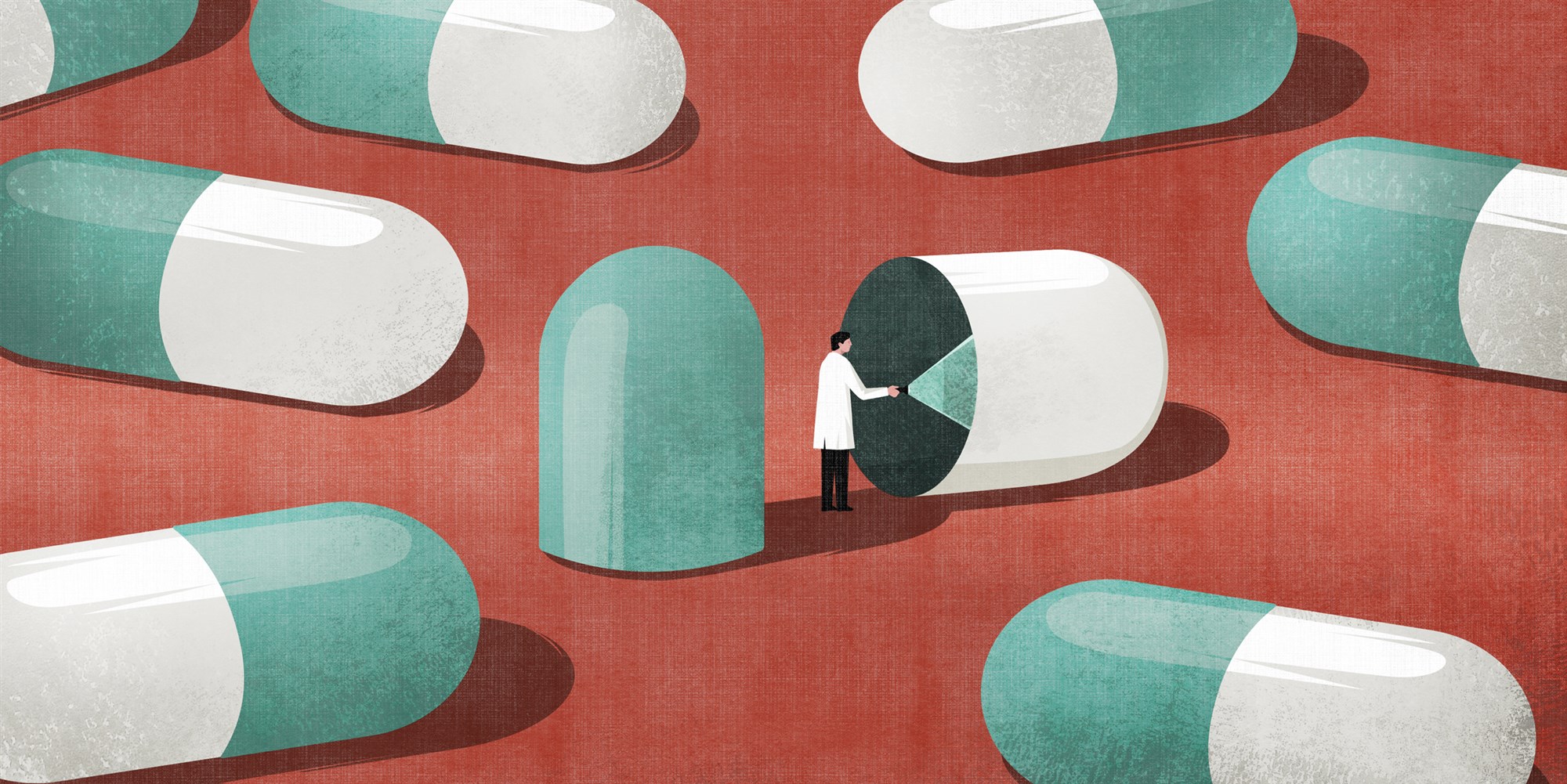
Unless you have a clinically identified deficiency, the research tells us there is little reason to consume supplements.

Mixing science and art can make the truth more interesting than lies, says health law expert and pseudoscience debunker Timothy Caulfield.

SCI + POP is a new social media project that circulates images to communicate research findings and provides commentary on science and health policy. Author - Timothy Caulfield.

SCI + POP is a new social media project that circulates images to communicate research findings and provides commentary on science and health policy. Written by Professor Timothy Caulfield.

A professor at the University of Alberta who is known for his book Is Gwyneth Paltrow Wrong About Everything? is taking his science-based approach to health crazes to Netflix.

Criada pela atriz em 2008, a companhia Goop vende desde pedras que "aumentam a energia sexual das mulheres" até "pó comestível que traz sucesso"

In the show, Caulfield wanted to explore all the crazy and sometimes extreme remedies individuals try for the health and beauty and see what science actually says about those practices.

Immigration officials are using DNA testing and ancestry websites to try to establish the nationality of migrants, the Canada Border Services Agency said on Friday. Privacy expert Timothy Caulfield breaks down the potential danger of using DNA testing.

Goop has been called out for bullshit over and over. But the brand seems to be stronger than ever. Professor Caulfield's book and comments are highlighted.

"She equates not using science, and not using facts, with being open minded," said health researcher and author of Is Gwyneth Paltrow Wrong About Everything? Timothy Caulfield, "which is exactly wrong."

Susan Gerbic interviews Professor Caulfield who will be speaking at CSICon on October 20.

People introduce scientific terms gives these ideas a veneer of legitimacy they do not deserve. People are leveraging scientific terminology to support their bunkem.' - Timothy Caulfield."

Gossip that an alternative medicine loving supermodel is dating a fraudulent advocate of anti-vaccination nonsense matters. Article written by Professor Caulfield.

Professor Timothy Caulfield comments on unproven stem cell therapy (en français).

"The increase in risk is generally marginal, especially when you think of your overall risks in life," said Caulfield. Professor Timothy Caulfield provides further comments.

Professor Caulfield's tweet calls out the BC Cancer Foundation. Read more to find out their response...

Professor Timothy Caulfield provides expert comment.

Professor Timothy Caulfield's book "Is Gwyneth Paltrow Wrong About Everything?" is featured.

Professor Timothy Caulfield comments on reasonable regulatory decisions.

Professor Caulfield: "that there's no doubt that high doses of alcohol is not a good idea. But the problem is that life causes cancer, and where do you draw the line?"

Timothy Caulfield "On voit des informations non véridiques être transmises par des célébrités, via les réseaux sociaux, mais aussi par des individus qui procurent de soi-disant services de santé basés sur des théories non démontrées. Malheureusement, les fausses nouvelles sont partout en ce moment!"

Professor Timothy Caulfield wants to see more qualified medical professionals and government officials speaking out on social media and engaging with the public to understand why they're distrustful of proven treatments.

"The spreading of pseudoscience erodes critical thinking. Research tells us that the mere exposure to pseudoscience or 'fake news' makes it more believable. If the alternate science view is not part of the equation it makes that phenomenon so much more powerful. Critical thinking invites you to ignore the nonsense and follow the scientific story." - Timothy Caulfield

Professor Caulfield comments on the collection of our cells.

Professor Timothy Caulfield warns how your information can be unknowingly accessed.

Professor Timothy Caulfield comments on the twisted science and inaccurate ideas about the significance of biological difference.

"What they're really selling is false hope," said Timothy Caulfield, a health law professor at the University of Alberta. "It's science-ploitation. They're taking a legitimate and developing field of science and using it to prey on patients who are desperate for a cure."

Professor Caulfield cautions on the use of genetic information.

Canadian experts warn you may be giving up more than you thought when mailing off a DNA testing kit

Professor Caulfield comments the lack of scientific evidence to support homeopathy.

University of Alberta Professor Timothy Caulfield expressed serious concerns about Zimmermann's claims.

Professor Timothy Caulfield is referenced for his extensive writing on policy and ethical issues in medicine and the science-based approach.

Professor Timothy Caulfield comments on study using brain scan technology to inform financial decisions.

Professor Timothy Caulfield has been a longtime skeptic of alternative medicine, says he understands why naturopathic medicine appeals to some consumers: NDs are attentive, and treatment plans are personalized. The problem, Caulfield says, is that many of their treatments aren't evidence-based. Professor Caulfield explains further.

Professor Timothy Caulfield urges caution on the use of imaging for financial planning purposes.

In a new essay, Alberta health policy expert Timothy Caulfield argued wildly popular DNA ancestry tests risk 'reifying' race.

She was a licensed naturopath in two states, and is now is now one of the fields biggest critics. Professor Caulfield provides expert comment.

Article written by Professor Timothy Caulfield.

Professor Caulfield comments on the wellness industry.

Parents are more and more hesitant to vaccinate their children and it's difficult to change their perception. His new book, The Vaccination Picture, Professor Caulfield hopes will help.

Professor Caulfield, however, notes the evidence base is not very strong.

Written by Professor Timothy Caulfield, he provides expert comment on the direct-to-consumer genetic testing.

Professor Caulfield comments on the scienceploitation of this kind of market.

Professor Timothy Caulfield provides expert comment.

Professor Caulfield provides comment.

College registrar says 'it is important to know what people are saying'. Professor Caulfield provides expert comment.

From apple-cell face creams to blood cleansing, public is often misinformed about treatment: Timothy Caulfield

Brady's strict salt preference is one of his practices that "register as full out kook," Timothy Caulfield, Canada Research Chair in Health Law and Policy at the University of Alberta, wrote for the Canadian publication Policy Options.

Le taux de vaccination en Alberta est parmi les plus bas du pays. Si la province comme Ottawa tentent de corriger le tir en expliquant l'importance de l'immunisation, certains Albertains défendent tout de même leur droit de s'y opposer.

Doppelgangers - they're everywhere. For example, have you seen Timothy Caulfield around campus?

Timothy Caulfield provides expert comment.

Talk with Timothy Caulfield about his two national bestsellers: "The Cure for Everything: Untangling the Twisted Messages about Health, Fitness and Happiness" and "Is Gwyneth Paltrow Wrong About Everything? When Celebrity Culture and Science Clash." Tim talks about what the evidence really tells us is good for our health, and deconstructs the misinformation, myths, and bogus claims coming from the pseudoscientists and some celebrities. Tim is also the host of the popular Canadian documentary TV series: "A User's Guide to Cheating Death."

Professor Timothy Caulfield urges science, evidence-based community to be vigilant.

"Celebrity opinions used to be seen as harmless entertainment, but that's changing in the era of fake news," says Timothy Caulfield, professor and research director at Health Law Institute of the University of Alberta.

A University of Alberta professor said he felt "intense frustration" after hearing a man convicted in the death of his toddler was scheduled to speak at Health and Wellness Expos taking place across the country, including a stop in Edmonton. Timothy Caulfield provides comment.

Expert comment from Timothy Caulfield is played.

Professor Caulfield is highlighted for his work on debunking.

Genomics is cheaper and more available then ever, but its usefulness for parents has yet to be proven. Professor Caulfield provides expert comment.

Professor Caulfield provides expert comment on Homeopathy.

Professor Caulfield talks about Pseudoscience and diet.

Technology has its good side - and its bad side. But like anything, moderation is key. Here is how to find balance in this digital age. Professor Caulfield is highlighted.

Professor Caulfield provides expert comment.

Professor Caulfield debunks celebrity "Quackery".

Professor Caulfield provides expert comment.

"Even just trying to be more active isn't enough on its own. You can't just do CrossFit anymore - the whole world has to know you do CrossFit, says Timothy Caulfield."

Professor Caulfield provides expert comment.

Art and science are often viewed in opposition to one another, but in the Caulfield family, these pursuits co-mingle in extraordinarily creative and collaborative ways

Art and science are often viewed in opposition to one another, but in the Caulfield family, these pursuits co-mingle in extraordinarily creative and collaborative ways.

Health law expert Timothy Caulfield and Metabolomics Innovation Centre director David Wishart saw their respective initiatives receive more than $21 million from Genome Canada and its funding partners.

Video interview of Professor Caulfield on controversial health topic and his new book: 'The Vaccination Picture'.

Professor Caulfield on public policy.

Professor Caulfield's book 'The Vaccination Picture' is highlighted.

Professor Caulfield provides comment.

'They are paying a lot of money for what's basically dirty water,' says Timothy Caulfield.

By Timothy Caulfield

"Raw water" = 100% bonkers health trend!

Professor Caulfields notes how celebrities using "sciency language" can create the illusion of scientific authority.

The author of Is Gwyneth Paltrow Wrong About Everything? says more and more Canadians are hesitant about vaccination, and it's hard to convince them otherwise. But he has a few ideas.

Article written by Professor Caulfield.

Professor Caulfield comments on the emergence of stem cell therapies.

Professor Caulfield comments on the risks of DIY biohacking.

Despite the best efforts of journalists and doctors, debunkers are not winning the wellness war. By Timothy Caulfield.

Anti-vax myths and their impact - cause vaccination hesitancy - Professor Timothy Caulfield notes.

By Timothy Caulfield.

Article - on discussions and the relevant science in a measured manner - by Timothy Caulfield.

Writer and de-bunker-extraordinaire Timothy Caulfield dropped by The Goods to talk about health and wellness trends. There are so many crazy, and maybe not-so-crazy trends popping up everyday, and Timothy even bravely tested some of them on himself so you don't have to!

"The goal of the series is to explore the popular and controversial procedures which, we are told, will improve our health, reverse aging, and stave off death. Tim Caulfield serves as our guide, narrator, and guinea pig."

The oft-aggressive debunker undergoes something of a transformation during filming.

'We don't want misleading information and we don't want the spreading of bunk'. Professor Caulfield comments on Gwyneth and Goop.

'She keeps pushing this idea that Goop is about autonomy and anyone who questions the science is somehow infringing on women's autonomy'

Timothy Caulfield targeted Goop's famous founder with his last book, "Is Gwyneth Paltrow Wrong About Everything?". Years later, the Alberta-based health policy expert still believes the actress-turned-wellness entrepreneur is wrong, about so many things. But he's heartened by the prospect of increased scrutiny over Paltrow's lifestyle brand and website, Goop, now in the crosshairs of the U.S. watchdog group Truth in Advertising.

An outspoken critic of some popular health trends investigates ancient therapies and anti-aging products to separate science fact from fiction on a new TV series.

Professor Timothy Caulfield is guest host for CBC Quirks & Quarks from August 26 to September 2, 2017. Listen to the full audio episode here.

Professor Timothy Caulfield provides expert comment on what "influencers" recommend about health

Evidence on when and how to use PRP becoming more murky, sports medicine physicians say. Professor Caulfield provides expert comment.

Professor Timothy Caulfield provides expert comment.

Every time Paltrow's lifestyle site, Goop, recommends an out-there health choice, this Canadian doctor tries to debunk the pseudo-science. This hasn't made her any friends at Goop. Professor Caulfield's book and op-ed are referenced.

Goop has been called out for b%!!$#!% over and over. But the brand seems to be stronger than ever. Professor Caulfield's book is mentioned.

War on GOOP breaks out into the open. Professor Timothy Caulfield provides expert comment.

Every time Paltrow's lifestyle site, Goop, recommends an out-there health choice, this Canadian doctor tries to debunk the pseudo-science. This hasn't made her any friends at Goop. Professor Caulfield's book and op-ed are referenced.

Goop's pseudoscience is discussed. Professor Caulfield is referenced.

Professor Caulfield calls for "tighter regulation" of unproven stem-cell treatments.

Professor Caulfield provides expert comment.

Professor Caulfield provides expert comment.

Professor Caulfield provides expert comment.

Article written by Professor Caulfield on Goop's attack to Dr. Gunther's science-informed criticisms.

Professor Caulfield provides expert comment.

Professor Caulfield provides expert comment.

Professor Timothy Caulfield is interviewed. (Video)

Professor Timothy Caulfield discusses how to debunk fake health news, including trends, unsubstantiated claims and wellness brands touted by celebrities.

Professor Timothy Caulfield has a warning about the dangers of unregulated stem cell treatments.

University of Alberta health-law professor Timothy Caulfield joins global call for tighter regulations.

Some types of stem cell transplant have been approved by regulators to treat certain types of cancer and to grow skin grafts for burn patients. "These therapies are advertised directly to patients with the promise of a cure, but there is often little or no evidence to show they will help or that they will not cause harm, the 15 experts wrote in the journal Science Translational Medicine."

Professor Caulfield provides expert comment.

Professor Caulfield comments.

A highlight of "The Vaccination Picture"

"Studies tell us that the general public is already confused about how to live a healthy lifestyle. Science-free advice only confuses things more," says Caulfield.

An Edmonton woman says natural remedies cost her about $6,000 in health care in 2014. Timothy Caulfield provides expert comment.

When fighting celebrity quackery is your job, Professor Timothy Caulfield engages the public to focus on the science, not the celebrity endorsement.

Timothy Caulfield, who holds a Canada Research Chair in Health Law and Policy at the University of Alberta, said "scam journals" continue to be a serious problem universities cannot afford to ignore.

Awards were presented at the Digital Publishing Awards soirée on June 1 in Toronto. Best Blog or Online-Only Column Gold award went to Timothy Caulfield for The Cure with Policy Options.

Annie, fed up with her nagging asthma and allergies, seeks treatment from a naturopath based on a friend's recommendation. Is that a wise decision? Will the naturopath be able to help?

What can art bring to emotionally charged debates around vaccination? This is just one question raised by a Canadian-led exhibition on now in Geneva .

Continued hype on direct-to-consumer genetic testing - company gives parents opportunity to uncover kids' "hidden" talents; the limitation - these tests simply don't have an impact on health behaviour.

Professor Timothy Caulfield provides comment.

Professor Timothy Caulfield is among experts in their fields commenting on the radio interview.

Timothy Caulfield's expert suggestions on media meddling is noted.

Professor Timothy Caulfield comments on IV therapy and the popularity of vitamins.

Timothy Caulfield provided expert comment on media and science.

Professor Timothy Caulfield comments on the Government of Alberta's decision against mandatory vaccinations.

New study will explore whether Instagram users are building communities of support around women who breastfeed.

How the Alberta government allowed a private foundation to offer an unproven 'experimental' health program to its citizens. Timothy Caulfield provides comment.

The NBC reality singing competition has been selling glittering visions of fame for 11 seasons, but has rarely delivered on them. Timothy Caulfield is captioned from his book 'Is Gwyneth Paltrow Wrong About Everything?'

News of medical advances often come with phrases like 'cutting edge research' sprinkled liberally into the story. But, whatever the promise of these 'cutting edge' treatments, Timothy Caulfield says enthusiastically reports lead to real harms.

What is bee pollen? What are people saying it does? Does bee pollen actually have any health benefits? Professor Caulfield provides expert comment.

Expert comment provided by Timothy Caulfield.

Expert comment by Timothy Caulfield.

Fact, Fiction and Fake News. Interview with Timothy Caulfield.

"Celebrity culture can be dangerous, make no mistake," Professor Timothy Caulfield provides comment.

Professor Timothy Caulfield provides expert comment.

Professor Timothy Caulfield provides comment.

While most of us are stalking our favorite celebrities to read about the crazy new diet they're trying or the detox they swear by, Timothy Caulfield has made a living out of debunking them.

Professor Timothy Caulfield provides comment.

Pincher Creek has among the highest childhood immunization rates in Alberta while neighbouring Fort Macleod has among the lowest, out of 132 local health areas in the province. (Robson Fletcher/CBC). Professor Caulfield provides expert comment.

Why do people listen to celebrity health advices? A researcher finds that this is actually disadvantageous to one's health. Professor Timothy Caulfield provides expert comment.

We have more good science and information than ever - and more people believing in 'ridiculous bunk', professor Caulfield provides expert comment.

Timothy Caulfield provides comment.

Timothy Caulfield provides comment.

Professor Timothy Caulfield provides expert comment.

Tom Brady and vagina eggs - column by Timothy Caulfield.

Professor Timothy Caulfield provides comment.

Professor Timothy Caulfield provides comment.

More young scientists see social media platforms as an important way to engage the public and clear up misinformation. Professor Caulfield provides expert comment.

Professor Timothy Caulfield provides expert comment on Brady's intense hyper-strict diet.

The reasons doctors ignore the advice they might give patients and come to work sick are complex, says Caulfield. High workloads, job insecurity, and a sense of duty to care for patients all contribute to medical-industry presenteeism, and a lack of planning to cover the workload of doctors who need to take a day off mean patients may not get care if their doctor doesn't come to work. The research published in JAMA Paediatrics identified those same reasons.

Professor Timothy Caulfield provides expert comment.

'Thank you for accepting my apology,' Chopra tells Caulfield at end of social-media spat

The more human-like we make living organisms the more valuable for research purposes they become, says Timothy Caulfield, Canada Research Chair in health law and policy. "But of course the more we humanize an animal, the more we raise questions about animal ethics," he said.

Even if debunking doesn't have an immediate impact, getting the science on the record is important in the long run, Caulfield added, as is teaching critical thinking skills. We have to find ways to help people call Goopshit when they see it. And the jade rocks are most certainly a lesson in Goopshit.

Timothy Caulfield, a professor of health law and science policy at the University of Alberta has said Chopra is the "embodiment of pseudoscience."

"This speaks to the power of her brand and, perhaps, the meaninglessness of 'fact' in this realm too," said Tim Caulfield, health law policy researcher and author of "Is Gwyneth Paltrow Wrong About Everything?" (He then summarized things well by adding "ugh.")

Timothy Caulfield, a Canada Research Chair in Health Law and Policy and professor at the University of Alberta, spoke to the Calgary Eyeopener on Tuesday to weigh in on the judge's ruling.

Timothy Caulfield, an expert in health law and policy at the University of Alberta, said nutrition science often comes with uncertainties and shouldn't be discarded just because it doesn't provide slam-dunk evidence. He said health experts give advice on the best available research, but there needs to be greater understanding about its limitations.

Doppelgänger sites set up to collect fees from researchers desperate to publish.

Professor Caulfield provides expert comment on the impact celebrities can have.

Neides' claims slammed for having no scientific backing. Professor Caulfield provides comment.

Column by Timothy Caulfield

Inside the troubling and dangerous rise of alternative medicine for kids, professor Caulfield provides expert comment.

Professor Caulfield provides expert comment.

Anti-vaxxers. Green coffee. Homeopaths. Cleanses. The health world has been dealing with active ignorance and misinformation for a long time-and it's now seeped into our political climate. Professor Caulfield provides comment.

Professor Caulfield provides expert comment.

Professor Caulfield provides expert comment.

Professor Caulfield provides expert comment.

Professor Caulfield provides expert comment.

Professor Caulfield provides expert comment.

Professor Caulfield provides expert comment.

Professor Caulfield provides expert comment.

Professor Caulfield provides expert comment.

Professor Caulfield provides expert comment.

The Honourable Madam Justice Ellen Picard named Officer of the Order of Canada

Professor Caulfield provides expert comment.

Professor Caulfield provides expert comment.

Survey aimed at identifying the frequency and qualitative characteristics of marketing claims made by Canadian chiropractors, naturopaths, homeopaths and acupuncturists relating to the diagnosis and treatment of allergy and asthma. Click on 'This survey' to to view: Selling falsehoods? A cross-sectional study of Canadian naturopathy, homeopathy, chiropractic and acupuncture clinic website claims relating to allergy and asthma. Murdoch, Carr, Caulfield.

Professor Caulfield provides expert comment on the 'Jolie effect'.

No matter how well-intentioned, celebrity health messages can go awry. Professor Caulfield provides expert comment.

UAlberta Law bids farewell to the Health Law Institute's Maeghan Toews.

Professor Timothy Caulfield has rightly called for Health Canada to follow the FTC's lead in requiring proper labeling to "ensure the Canadian public gets scientifically accurate information about the health care products and services they are buying."

Professor Caulfield provides expert comment.

Professor Caulfield provides expert comment.

"It has kind of a science-y background that may make it seem like it has more legitimacy as a diet for all of us than it really does," said Timothy Caulfield.

Professor Caulfield provides expert comment.

University of Alberta professor Timothy Caulfield says there is no scientific evidence to show efficacious treatments are being withheld from people who would benefit from them.

OMICS International, one of the world's biggest publishers of fake and substandard science studies for cash, is trying to expand into Ottawa. Professor Caulfield provides expert comment.

Professor Caulfield provides expert comment.

'Really what they're trying to do is leverage perceptions of health and create a "health halo" around the product.' Professor Caulfield provides comment.

More than 30 U.S. states have right-to-try laws. Now, the movement appears to be picking up steam in Canada. 'I'm going to die anyway,' said one proponent. Find out what Professor Caulfield says.

Professor Caulfield provides expert comment.

About 1 in 5 registered organ donors in Ontario had their wishes overridden by family members, research shows. Professor Caulfield and Research Associate Maeghan Toews provide expert comment.

Professor Timothy Caulfield says there's 'confused messaging' about natural remedies.

Professor Caulfield provides comment.

Professor Caulfield provides comment.

Professor Caulfield provides comment.

A massive disagreement that has erupted between two prominent Canadian academics, Dr. Mark Loeb and Professor Tim Caulfield, has put the spotlight on the ethicality of investing research into bunk science.

Author: Timothy Caulfield.

Deepak Chopra, a famous public speaker and author, is scheduled to speak about well-being at an Edmonton autism conference in January. Alternative medicine critics are petitioning to remove him from the lineup of speakers.

The Federal Trade Commission has demanded that producers of homeopathic treatments say on the label that they do not work. Health policy expert Timothy Caulfield recently said: "To believe homeopathy works … is to believe in magic."

Prof. Caulfield warns that Canadians are increasingly being exposed to ads that inaccurately portray stem cell research.

Professor Caulfield provides expert comment.

Professor Caulfield suggests taking celebrity endorsements with a grain of salt.

Professor Timothy Caulfield makes the list of Twitter's 85 Accounts Worth Following, #27 on Academics and Doctors and Lawyers and Lawyer/Doctor Academics!

But for the people buying them, this will make them even more attractive. Professor Caulfield provides expert comment.

From waist trainers to hair vitamins, fat-burning tummy tea wraps, and even pharmaceuticals, the Kardashian family has a long list of products they claim to love on social media. But are they letting people into their lives with these seemingly authentic testimonials, or are they just cashing in? Professor Caulfield provides expert comment - click on link to watch video.

Kardashians the most prominent example of troubling new marketing trend. Professor Caulfield comments.

Can DNA and blood tests reveal which foods are optimal for an individual's health? Professor Caulfield provides expert comment.

Professor Caulfield is the guest speaker for this year's Centre for Clinical Epidemiology & Evaluation (C2E2) Annual Lecture.

"He's like the great de-educator. He legitimizes these ideas that have no scientific basis at all and makes them sound scientific. He really is a fountain of meaningless jargon,".

"From a scientific perspective, [personalized nutrition] is problematic,". Professor Caulfield provides expert comment.

'He's like the great de-educator. He legitimizes these ideas that have no scientific basis at all'

Written by Professor Timothy Caulfield.

Professor Caulfield provides expert comment.

Advocates say plain packaging is extreme but necessary; Big Tobacco calls it infringement on consumers' rights. Professor Caulfield provides expert comment.

Professor Timothy Caulfield provides expert comment.

Professor Timothy Caulfield provides expert comment.

Professor Timothy Caulfield provides expert comment.

Professor Timothy Caulfield provides expert comment.

Professor Timothy Caulfield provides expert comment.

Professor Ubaka Ogbogu provides expert comment.

Professor Timothy Caulfield provides expert comment.

Professor Timothy Caulfield provides expert comment.

Professor Timothy Caulfield provides expert comment.

Professor Timothy Caulfield provides expert comment.

Professor Timothy Caulfield provides expert comment.

Professor Timothy Caulfield provides expert comment.

Professor Timothy Caulfield provides expert comment.

Professor Caulfield provides expert comment.

Professor Caulfield provides expert comment.

Professor Caulfield provides expert comment.

Professor Caulfield provides expert comment.

Professor Caulfield provides expert comment.

Professor Caulfield provides expert comment.

Professor Caulfield provides expert comment.

Professor Timothy Caulfield provides expert comment

Professor Timothy Caulfield provides expert comment.

Professor Timothy Caulfield provides expert comment.

The proliferation of clinics nationwide offering stem cell therapies unnerves many researchers, who fear that unrealistic public expectations could undermine their own credibility. Professor Timothy Caulfield comments on the influence of celebrities who promote such treatments.

Professor Timothy Caulfield on Olympic pseudoscience.

Professor Timothy Caulfield provides expert comment.

Professor Timothy Caulfield's work is referenced.

A Q&A with Professor Timothy Caulfield.

Professor Timothy Caulfield is quoted.

Professor Timothy Caulfield recently compiled a list of athletic performance aids that, though popular, have little or no evidence to back up their use.

Professor Timothy Caulfield comments on cupping, the traditional eastern medicine technique, soaring in recent days.

Professor Timothy Caulfield provides expert comment.

Article by Professor Timothy Caulfield.

Article by Professor Timothy Caulfield.

Professor Timothy Caulfield comments about a new paper published in PLOS Medicine that found that most clinical research findings are false and even true findings are not very helpful. Caulfield calls the study "fascinating" and "provocative."

The scientific community can't ignore celebrity culture. (Article co-authored by Professor Timothy Caulfield.)

Article co-authored by Professor Timothy Caulfield.

Professor Timothy Caulfield comments.

A mix of wellness, luxury, and exclusivity will soon be available to New Yorkers at the inaugural location of High Court in lower Manhattan. Described by its co-founders, sisters Colleen and Hailey Brooks, as "the third personal space, after home and office," it will be the place where "intelligent leisure" reigns. Professor Timothy Caulfield comments on the "framing of wellness as a luxury item."

Professor Timothy Caulfield is quoted.

Professor Timothy Caulfield comments on the new controversial film, 'Vaxxed'.

Professor Timothy Caulfield is quoted.

Professor Timothy Caulfield is quoted.

Professor Timothy Caulfield worries Stephan case could turn them into anti-vaccination "martyrs". Coverage also runs in the Medicine Hat News, Huffington Post, and the National Post.

Professor Timothy Caulfield's new book is referenced.

Elizabeth Parrish is CEO of BioViva, a Seattle-based biotech company working to develop treatments to slow the ageing process. In April, the company revealed that Parrish herself had undergone "the first gene therapy successful against human ageing". The treatment, it claimed, had reversed the biological age of her immune cells by 20 years. Professor Timothy Caulfield is concerned that Parrish's work lacks scientific rigour and is at risk of being picked up by unscrupulous practitioners aware of the selling power of anti-ageing treatments.

Professor Timothy Caulfield debunks the alkaline diet fad as evidence free. Appears in other Torstar newspapers, including the Waterloo Record and Guelph Mercury.

Human blood is naturally slightly alkaline, with a pH of around 7.4, and the human body's systems work to maintain a very small range.

Celebrities have become a primary source of health information, Professor Timothy Caulfield comments.

Professor Timothy Caulfield comments.

Professor Timothy Caulfield provides expert comment.

Interest in IV therapy is accelerating, but there's no scientific basis for claims it improves health. Professor Timothy Caulfield provides expert comment.

Public health officials are voicing concern over the showing of a controversial film at an Edmonton theatre. Professor Timothy Caulfield comments.

A study by Kalina Kamenova and Professor Tim Caulfield is referenced, that found major daily news papers in Canada, the U.S. and the U.K. have given overly-optimistic projections of how soon stem cells would be available.

Professor Timothy Caulfield's work is referenced.

Study finds 570 outposts marketing cures for spinal cord injuries, cardiac problems, and more. The FDA is trying to catch up. ISSCR guidelines, co-authored by Professor Timothy Caulfield, are referenced.

Professor Timothy Caulfield comments.

Study finds a wild west of unregulated operations; there are 351 businesses in the United States, operating at least 570 stem-cell clinics all told. Professor Timothy Caulfield provides expert comment.

Professor Timothy Caulfield comments on a new development in stem cell treatments for MS.

Professor Timothy Caulfield on a simple blood test that could determine entire genome of unborn child.

Professor Timothy Caulfield is quoted.

Professor Timothy Caulfield provides expert comment on the confusion surrounding a new report that says coffee poses an 'unclassifiable' health risk.

Law reform in Canada may help curb organ transplant tourism, says Professor Timothy Caulfield.

Professor Timothy Caulfield provides expert comment in this story about stem cell research.

The scientific process and the invisible hand of hype. Professor Timothy Caulfield comments.

Magical thinking shouldn't be taught at a university, says Professor Timothy Caulfield.

Caulfield comments on the flip-flopping nature of observational nutritional studies.

Professor Caulfield and other experts have been concerned for awhile about just how susceptible to exaggeration and hype the subject of stem cells is.

Professor Timothy Caulfield and Amy Zarzeczny on patients traveling abroad to obtain organs through commercial transactions.

The Health Law Institute's Christen Rachul is the first Carleton student to graduate with a PhD in Applied Linguistics & Discourse Studies.

Professor Timothy Caulfield calls out the school's faculty of medicine for scheduling a workshop called "Spoon Bending and the Power of the Mind."

Professor Erin Nelson says private health-care provider, Copeland clinic, is operating in a grey area of the law, and that public should be concerned.

Assistant Professor Ubaka Ogbogu says the absence of legislation for assisted dying will simply mean no one can be prosecuted as of June 6 for doing exactly what the Supreme Court ruled can be done. Also appears in the Brandon Sun, Thompson Citizen, Yorkton This Week and more.

Professor Timothy Caulfield says a reality TV star's use of Instagram to endorse health products contravenes the Canadian ban on direct-to-consumer ads for prescription drugs.

Professor Timothy Caulfield is interviewed.

An article by Professor Timothy Caulfield and Assistant Professor Ubaka Ogbogu is referenced.

Professor Timothy Caulfield is interviewed.

"Lots of research has shown that the funding sources matter to results," notes Tim Caulfield, a professor of health law and science policy at the University of Alberta who has written extensively about direct-to-consumer genetic testing. "Conflicts of interest - operating largely unconsciously - can impact data collection, interpretation, and reporting."

"Increasingly it's portrayed as though these treatments are ready for the clinic," said Tim Caulfield, research director of the Health Law Institute at the University of Alberta, who helped write the guidelines.

New guidelines co-authored by the Health Law Institute are featured.

Professor Tim Caulfield contributes myth-busting expertise to new stem cell ethics guidelines.

The International Society for Stem Cell Research released new guidelines on the ethical conduct of stem cell research Thursday, and for the first time, they included a section on toning down the hype. The new advice was written by a team of health ethics researchers, including the University of Alberta's Tim Caulfield, who specializes in health law.

Article by Professor Timothy Caulfield.

The Health Law Institute contributes to guidelines for the clinical translation of stem cell research.

The new ISSCR guidelines, co-authored by members of the Health Law Institute, is featured in Stem Cell Reports.

In a rare public rebuke, researchers, including those from the Health Law Institute, urge caution when talking about theoretical cures that may never become real.

New ISSCR guidelines, co-authored by the Health Law Institute, are featured in Science Magazine.

The new ISSCR guidelines, co-authored by members of the Health Law Institute, is covered by Nature magazine.

Op-ed by Professor Timothy Caulfield.

Professor Timothy Caulfield provides expert comment.

Professor Timothy Caulfield is interviewed.

Professor Timothy Caulfield is interviewed (at 49:20).

Professor Timothy Caulfield is interviewed.

Professor Tim Caulfield comments on the lack of regulation of alternative remedies and treatments in Canada, as well as the role complementary medicine plays in treating children, and when parents have the right to refuse conventional medicine.

Professor Timothy Caulfield is interviewed.

Professor Timothy Caulfield is quoted.

Article by Professor Timothy Caulfield.

Professor Timothy Caulfield is interviewed.

Professor Timothy Caulfield's recent book is referenced.

Professor Timothy Caulfield provides expert comment.

Professor Timothy Caulfield provides expert comment.

Professor Timothy Caulfield provides expert comment.

Professor Timothy Caulfield is interviewed.

Professor Timothy Caulfield is interviewed.

Professor Timothy Caulfield comments on a new study suggesting that one's awareness of a genetic predisposition to a disease isn't sufficient to motivate a change in behavior.

Salon speaks to Professor Timothy Caulfield about what we know about time changes, sleeping well, and Gwyneth Paltrow.

Professor Timothy Caulfield, extensive researcher of celebrity trends, is interviewed about the most unusual and extreme trends he has seen, including cryotherapy and waist cinchers - a.k.a girdles.

Professor Timothy Caulfield comments in a story about the criminal trial of a Canadian couple whose 19-month-old baby died of meningitis after being treated with only home remedies.

Shelley spoke at the University of Alberta on February 22, an event organized by the University of Alberta's Law Faculty Visiting Speakers Committee

A summary of Dr. Welch's well-attended talk on February 3rd, 2016 at the University of Alberta as part of the Health Law Institute's Lecture Series 2016.

Professor Timothy Caulfield writes about "pseudoscience correctness", and the persistence of useless and misleading products and treatments that have no basis in science, such as reiki, homeopathy, and detoxing.

Professor Timothy Caulfield is interviewed about gene editing, including "germ line" editing that would have the ability to permanently alter human genetic evolution.

Professor Timothy Caulfield, debunking celebrity diet trends: Why you can't tone 'just' your abs.

Professor Timothy Caufield chats about human gene editing and whether or not it can actually happen.

Professor Timothy Caulfield is interviewed about Oprah's recent endorsement of bread.

Now that a British researcher can legally use the new Crispr gene editing technique on human embryos, what does it mean for Canada and the world? Professor Timothy Caulfield weighs in on the debate.

Professor Timothy Caulfield provides expert comment on hidden study that debunks ColdFX.

Professor Timothy Caulfield is interviewed on his extensive research into celebrity diet trends, and on going gluten-free.

Onalytica names Professor Timothy Caulfield among the top 100 influencers in the discussion around obesity.

Professor Timothy Caulfield's guide to telling junk from real science.

A handful of ELLE Canada team members are taking part in a month-long detox. Professor Timothy Caulfield is asked whether cleanses work.

Professor Timothy Caulfield provides expert comment on how over-the-top potions remain popular even with no evidence-based medicine behind them.

Preview of Professor Timothy Caulfield's presentation at the Arden Theatre on Saturday, Jan. 16.

Professor Timothy Caulfield's book, "Is Gwyneth Paltrow Wrong About Everything?" is named among the ten top notable books of 2015.

Professor Tim Caulfield is mentioned as a "must-follow" on Twitter.

Professor Timothy Caulfield is interviewed.

Professor Timothy Caulfield provides expert comment.

Professor Timothy Caulfield provides expert comment.

Professor Timothy Caulfield is quoted regarding Canada's new science minister.

Professor Timothy Caulfield on the power of media hype over science in influencing patients.

Professor Timothy Caulfield discusses public confusion over health news stories and how people understand risk.

Professor Timothy Caulfield comments on breast cancer bra myth, pseudo-science, celebrity influence.

Professor Timothy Caulfield writes on celebrity influence, the divide between our perceptions and science, and on how our choices often relate more to tribal affiliation than reason.

Professor Timothy Caulfield co-authors an article discussing the limited and over-generalized studies done on the efficacy of preventative removal of wisdom teeth.

Professor Timothy Caulfield blogs on the four most annoying straw man arguments in favour of complementary and alternative medicine (CAM).

Professor Timothy Caulfield provides expert comment on Opera Winfrey's acquisition of 10% of Weight Watchers' shares, the effect of celebrity endorsement, and the effectiveness of dieting.

Professor Timothy Caulfield co-authors an article separating fact from fiction.

Professor Timothy Caulfield provides expert comment on the legal and ethical issues around cryonics. Canadian Press story appears in newspapers across Canada, including the Vancouver Sun, Calgary Herald, Montreal Gazette, Ottawa Citizen, and Alaska Highway News.

Professor Timothy Caulfield comments on the unclear science of "vaping", its trends in popular culture, and on how our system should proceed in light of evidence that is less than definitive.

Neurologists at Ohio State University are calling on doctors to educate their patients about scientifically unproven stem cell treatments that they say more Americans with incurable diseases are finding online and traveling overseas or across the country for. An opinion given by Professor Timothy A. Caulfield is referenced in the article.

Professor Timothy Caulfield says it might be fun and intriguing but the information is often less predictive of future health problems than risk factors such as smoking, obesity, inactivity, blood pressure or even postal code of residence.

Professor Timothy Caulfield comments in an article about Kim Kardashian's social media posts about a Canadian pharmaceutical company's morning sickness treatment that has raised questions about drug promotions online. Coverage also runs in Newsweek.

Professor Timothy Caulfield is quoted in an article on Kim Kardashian's paid social media endorsement of morning sickness medication.

Professor Timothy Caulfield is interviewed on NPR's On the Media this weekend.

Professor Timothy Caulfield comments on the FDA's response to a Canadian drug company over its part in an unusual intersection of celebrity culture, social media and pharmaceutical marketing. An Instagram post by Kim Kardashian extolling the benefits of the firm's morning-sickness drug was false or misleading and "misbranded" the pills, said the U.S. Food and Drug Administration in a warning letter disclosed Tuesday. Story also appears in Calgary Herald and Ottawa Citizen.

Professor Timothy Caulfield is quoted in a story on the power of celebrity endorsement of healthcare products.

Professor Timothy Caulfield says there is no evidence to support the practice of intravenous therapy, and that the trend likely reflects the fact that people want magical solutions. Saskatoon Star Phoenix similar story.

Timothy Caulfield on why celebrities can be bad for your health.

Article by Professor Timothy Caulfield.

Professor Timothy Caulfield comments in story on living organ donors. The story also runs in other Postmedia newspapers.

Professor Timothy Caulfield discusses his article: The Fountain of Stem Cell-Based Youth? Online Portrayals of Anti-Aging Stem Cell Technologies.

Like it or not, the influence of celebrity culture on our lives is profound, and possibly hardwired. Professor Timothy Caulfield is interviewed.

Un libro denuncia cómo las celebridades están instalando mensajes contrarios a la medicina en la sociedad.

This week, Kate Moss found herself improbably more popular than Beyoncé. And that says a lot about our secret hopes for celebrity diets. Professor Timothy Caulfield is quoted.

For $449, a company will test your DNA and send you a diet and fitness plan tailored to your genetic makeup. Is it worth it? Professor Timothy Caulfield provides expert comment.

Money magazine (Time) reviews Professor Timothy Caulfield's new book: Is Gwyneth Paltrow Wrong About Everything?

Professor Timothy Caulfield on clenses, detox diets, and celebrity influence over our health choices.

Timothy Caulfield spoke at a Carleton University forum on vaccine hesitancy on Wednesday.

Suzannah Ramsdale discusses Professor Timothy Caulfield's new book.

The research conducted by Professor Timothy Caulfield yields policy recommendations that influence Canadian science policy makers.

Professor Timothy Caulfield talks to Celia Walden about the controversial title of his latest book and questionable celebrity 'wisdom' on health.

Professor Timothy Caulfield's new book is referenced.

Professor Tim Caulfield is interviewed and comments on the latest diet craze.

Antanas Seleika is interviewed about Professor Timothy Caulfield's new book: Is Gwyneth Paltrow Wrong About Everything?

Professor Timothy Caulfield says industry involvement in research around such things as the health benefits of chocolate can skew the results.

Professor Timothy Caulfield is interviewed on the legal and ethical implications of embryonic gene manipulation.

Timothy Caulfield Speaks on Pseudoscience: FPA Professional Institute

A new study by Professor Timothy Caulfield and Dr. Kalina Kamenova is covered in the LA Times.

Timothy Caulfield responds to Jolie's announcement that she will undergo surgery to remove her ovaries and fallopian tubes in order to reduce cancer risk.

Timothy Caulfield responds to "Angelina Jolie Pitt: Diary of a Surgery" ~ was rarity of medical condition emphasized sufficiently?

Timothy Caulfield's new book referenced.

Timothy Caulfield interviewed on physicians' freedom of conscience in treating their patients.

News stories often portray unrealistic timelines while overlooking challenges and failures, new HLI study shows.

Professor Timothy Caulfield is interviewed about bad celebrity health advice.

Professor Timothy Caulfield is interviewed about his new book and how science is twisted by popular culture.

Professor Timothy Caulfield provides expert comment.

Professor Timothy Caulfield provides expert comment on supposed stem cell miracle cure.

Professor Timothy Caulfield is interviewed on the movement that is dramatically changing the way we eat.

Professor Timothy Caulfield authors blog post on the ethics of homeopathic research.

Professor Timothy Caulfield provides expert comment.

Professor Timothy Caulfield's new book is reviewed.

Professor Timothy Caulfield provides expert comment.

Timothy Caulfield is quoted in this story on the validity of cleanses.

Professor Tim Caulfield's book, Is Gwyneth Paltrow Wrong About Everything, is reviewed.

Timothy Caulfield provides expert comment on ineffective homeopathic "vaccines" and the governmental and regulatory response to their sale and promotion.

Timothy Caulfield provides expert comment.

Patients question credentials of Doug Broeska, who recruited patients for therapy in India

Sadly, the creep of pseudoscience – as manifested in the provincial legitimization of unproven alternative approaches to health – continues. Ontario naturopaths are pushing hard to become a self-regulating profession, with expanded rights to prescribe drugs and order tests. Thankfully, the Ontario Medical Association is pushing back.

It seems like every season is diet season. Slim down for the holidays! Get great abs for beikini season! New Year, new you!

Assisted suicide has been in the spotlight recently, after a dying Winnipeg woman went to Switzerland to make use of the country's assisted-suicide law.

Genetic testers have been flooded with inquiries since Tuesday, when Angelina Jolie published an op-ed in The New York Times about her preventative double mastectomy after a genetic test revealed the genetic mutation BRCA1, which sharply increases her chance of getting breast and ovarian cancer. The decision, the actor said, was difficult, but the right one to make if she wanted to drastically reduce her risk.

B.C. researchers are playing a key role in a new national organ transplant research program announced by the federal government on Monday, including developing technology designed to reduce organ rejection and the need to take immune-suppressing drugs.

Experts from the University of Alberta are at the centre of a world first - a new national transplant research program that aims to help Canadians waiting for transplants and extend the lives of those who have already received one.

EDMONTON - An Edmonton-based cardiologist has been tapped to lead a new $23-million national project aimed at solving some of the biggest issues plaguing transplant patients in Canada. Increasing the availability of transplants, improving the viability of donated organs and enhancing the long-term survival of patients are among the major goals of the Canadian National Transplant Research Program headed up by Dr. Lori West.

OTTAWA - An Ottawa researcher is heading up a team that will be part of a major national transplantation research program aimed at increasing donations.

Les greffés canadiens et ceux qui attendent toujours une greffe ont de nouvelles raisons d'espérer à la suite du lancement d'un programme de recherche national sur la transplantation, lundi. Parole d'Hélène Campbell.

OTTAWA - Organ donation activist Hélène Campbell is stepping up efforts to help people waiting for transplants. Campbell has launched the Give2Live Campaign, which aims to use online crowdfunding to raise money for families struggling to pay for housing and medical equipment as their loved ones await transplants.

Organ transplant rates in Canada will improve thanks to a new national research program based at the University of Alberta in Edmonton, says the lead scientist. "There are 4,500 Canadians waiting for transplants right now … and they face a 30 to 40 per cent risk of not ever getting a transplant," said Dr. Lori West, a clinician scientist at the University of Alberta. "Canada lags behind." West is leading the $24.9 million initiative, which will bring together dozens of medical researchers from across the country.

The Supreme Court is poised to take up the highly charged question of whether human genes can be patented. But another question could trump it: Has the field of genetics moved so far so fast that whatever the court decides, it has come too late to the issue?

We are continually told we are living in the midst of a "genetic revolution." You hear this from politicians, leading scientists and the popular media. And there are innumerable new, direct-to-consumer companies trying to sell you a genetic test. The companies promise everything from improved mate selection to weight loss to a longer and healthier life.

(Edmonton) Concerned about whether your genes could be patented? Worried about being left in the dust by genetically mutated colleagues or classmates? Losing sleep over what your genes may tell you about your susceptibility to sickness? A University of Alberta professor is championing the call for less fear-based hype and more evidence-based policy on the issue of genetics.

Forget a ban on junk food advertising. To help combat rising obesity rates among children and adolescents, a group of Canadian researchers is proposing a ban on any food and beverage advertising aimed at those under 18.

(Newsroom America) -- Researchers from the University of Alberta are leading a charge among Canada's obesity experts and calling on the federal government to ban food and beverage ads that target children.

We all know that life is unfair. Put a dozen people through identical exercise programs and some will thrive, most will make modest improvements and a few - perhaps two or three - won't see any gains at all. That's just the way it goes. Now we can quantify that unfairness, thanks to a new genetic test offered by a British company called XRGenomics.

In a world of hashtags, retweets and the challenge of trying to keep your commentary under 140 characters, it's fair to say some people just do it better.

They've both served as Canada Research Chair council members, co-edited two books together and grown up in the same house in Mystic, Connecticut, but you'd be hard pressed to find a pair of siblings with more contrasting viewpoints on science than artist/art professor Sean Caulfield and legal scholar Timothy Caulfield.

Dr. William Davis, author of the runaway best-seller, Wheat Belly, argues that far from being a "healthy whole grain", wheat is a public health hazard. He is winning millions of followers, but the scientific community remains skeptical about the benefits of a wheat-free diet for people who do not have specific conditions such as celiac disease.

Every now and then, someone in the media falsely claims that there is little or no evidence supporting the practice of homeopathy. They either cherry-pick their references - as Timothy Caulfield did in Tuesday's National Post - or lump homeopathy in with less well-established and non-standardized practices, such as "faith healing" or "energy healing," implying it has less significance than it does.

"By granting self-regulation, we're attesting, as elected representatives, to the public that we believe the practices that will be engaged in by professionals are safe and that they're effective and that they meet the highest possible standard"

(Edmonton) No time of year triggers healthy lifestyle changes quite like January, when gym membership sales spike, dieters slim down and smokers butt out. But the University of Alberta's Lisa Bélanger has some insight about what inspires people to make changes year-round-and stick to them.

In the very near future, we'll all be able to have our entire genome - all our genetic information - mapped for under $1,000. This is an astonishing scientific development. The Human Genome Project cost billions. Soon, you'll be able to get your very own genome sequenced for the price of a laptop.

Internet sites offer help for people suffering from a dizzying array of serious conditions, including: Alzheimer's, Amyotrophic lateral sclerosis, atherosclerosis, autism, brain damage, cancer, cerebellar ataxia, cerebral palsy, chronic obstructive pulmonary disease, Crohn's, diabetes, diseases of the eye, genetic disorders, Huntington's, kidney disease, lupus, muscular sclerosis, muscular dystrophy, Parkinson's, rheumatoid arthritis, spinal cord injury, spinal muscular atrophy, stroke, and Tay-Sachs disease.

November's been called the Wednesday of the year and its 30 days of grey skies, early darkness and lack of sunshine have dampened as many spirits as the Toronto Maple Leafs.

One could argue that stem cell research is currently the most promising area of biomedical research. It is no surprise that this year's Nobel Prize in Medicine went to a duo that work in the area. But much of the press coverage associated with the field falls squarely in the too-good-to-be true category. It is this sort of unsubstantiated hype that contributes to inappropriate public expectations and the legitimization of bogus therapies.

Do we really need a test to tell us whether our genes are sabotaging our efforts to get fit? A burgeoning industry is being built on the promise that genetic tests can predict how individuals are likely to respond to exercise and at which types of physical activity they may do best, an alluring concept for those who have struggled to get fit for years and never seem to see the same results as others.

When Kate Soles saw uniformed schoolgirls walking around her neighbourhood, she would cry. A week earlier, the Victoria woman had found out that she was going to have a baby boy - even as everything she had considered about parenthood involved raising a girl. Now, she would not get one.

Health law and policy expert Timothy Caulfield has spent almost 20 years analyzing scientific issues related to health policy. At the University of Alberta, he teaches biotechnology in the law faculty and is the editor for the Health Law Journal and Health Law Review. Here are interview excerpts: Q: How are health messages "twisted by researchers, the media and industry" making it hard for the average person to live a healthy lifestyle? A: Researchers are under tremendous pressure to make their work sound both sexy and immediately applicable. And there is a natural tendency to be excited about your research. The research institutions often amplify this enthusiasm. University press releases, for example, will take an animal study and speculate how it applies in humans. Some basic science study done on a mouse is portrayed as a potential cure for cancer. The media take the hype a step further by simplifying the message to make it an easily digestible news story. And once industry is involved, the marketing machines kick in. It really is a cycle of hype. The key is to not get fooled by it. True scientific breakthroughs are tremendously rare.

The Supreme Court of Canada on Thursday dismissed the appeal to keep the child known as M on life support, against her parents' wishes. (Sean Kilpatrick/Canadian Press)

The Supreme Court of Canada dismissed a motion that would have kept a comatose Edmonton girl on life support. A panel of three judges made the decision, Thursday evening. Canada's highest court received the motion for a stay in the case of Baby M, Thursday morning. The documents were then reviewed and processed before the final decision was released. Baby M will be taken off life support.

A child who was allegedly abused by her parents was taken off life support following an upheld ruling from the Supreme Court. Alberta Bureau Chief Janet Dirks reports.

The Alberta Court of Appeal upheld a ruling Wednesday to remove a child from life-support over the objections of her parents who are accused of beating and starving her.

Doctors say it is time to end life support for a two year-old girl who was found by paramedics in her Edmonton home last May, having been both neglected and abused.

CALGARY - The toddler who can be identified only as Baby M is not quite clinically brain dead, but close to it. Lying in a virtual vegetative state in an Edmonton hospital, doctors can see tiny eye movements. They've recorded a few functioning reflexes.

f you ate bacon this morning, here's hoping you did so mindfully, conservatively, stopped after one piece, and plan to reduce your sodium intake for the next six days. Take it from the experts: Life, sadly, is to be measured out in teaspoons and step-counters and one-inch dark-chocolate squares.

In the bright basement studio of Sean Caulfield's Parkallen home, there's a piece-in-progress typical of his aesthetic: It's captivating, yet strains the definition of beautiful.

Earlier this year, I was invited to speak at an international biomedical conference held in a Latin American country better known for its vacation locales than for the quality of its health care system or its scientific research. My talk addressed the marketing of unproven stem cell therapies by clinics around the world. This growing industry, often called stem cell tourism, is fuelled by Internet advertising and social media-driven word of mouth. It appeals to desperate patients who travel to providers in China, India, South and Central America, Russia, and the Caribbean to receive treatments with no chance of success.

Obesity rates in North America are a growing concern for legislators. Expanded waistlines mean rising health-care costs for maladies such as diabetes, heart disease and some cancers. One University of Alberta researcher says that if people do not take measures to get healthy, they may find that governments will throw their weight into administrative measures designed to help us trim the fat.

As many as 75,000 Canadians have multiple sclerosis. It is a heartbreaking affliction that can slowly rob individuals of the ability to do the most basic of physical acts.

CALGARY - Homeopathy, chelation therapy and vitamin injections will soon be regulated procedures in the province of Alberta, which is rapidly becoming more friendly to alternative medicines that have little or no scientific backing.